
The PricePlow Podcast is Here! Watch our introductory episode, subscribe to our YouTube channel, and get ready to rumble!
Welcome to The PricePlow Podcast!
Mike and Ben are thought leaders, content creators, and consultants in the dietary supplement industry, mainly focusing on performance and active nutrition. We interview industry experts, business operators, and researchers who push the supplement industry forward.
PricePlow is the premier educational media company in the supplement industry, covering supplement news, ingredient science, and product launches on the PricePlow Blog. This podcast is heavy on sports nutrition, but we're not limited to that niche.
Listen to the PricePlow Podcast on your favorite service (RSS)
Thanks for subscribing - don't forget to leave a review on iTunes!
PricePlow Podcast Episode Listing:
-
#205: Tom Reilly - VMI Sports, the PEZ Collab, and Two Mystery Canned Beverages
February 18, 2026:
Tom Reilly, president of VMI Sports, has a background that most brand founders don't: he spent years inside distribution before ever running a brand. GNC, UNFI, and a long stint at Lone Star Distribution (where VMI itself was born as a house brand in 2012) gave Tom a view of the supplement supply chain that's shaped everything VMI does.
In Episode #205, Mike and Ben talk with Tom about how VMI went from a side project to a decade of profitable independent growth, why distribution experience is undervalued in this industry, and what it actually takes to win in grocery retail. They also dig into VMI's product philosophy, the PEZ collaboration strategy, and the innovations in K-XR, Protolyte, and Pump & Flow that Tom says didn't get nearly enough recognition.
And yes, Tom teases two canned beverages coming in 2026. Neither is an energy drink. Neither is a protein soda. He won't say more than that. Subscribe so you're ready when the reveal drops.
-
#204: Eric Withee & Marc Bruggemann - Vegan Collagen?! How VC-H1 Can Disrupt Amazon
February 12, 2026:
What if the biggest opportunity in the collagen market isn't about better animal sources, but eliminating animal sources entirely? In Episode #204, Eric Withee from Freemen Nutra returns to discuss VC-H1, a revolutionary vegan collagen alternative derived from organic hibiscus that delivers actual collagen peptides, not just amino acid mimics. Joining the conversation is Marc Bruggemann, an Amazon e-commerce expert who reveals the massive untapped demand: 400,000+ annual searches for "vegan collagen" with virtually no legitimate products to satisfy consumers.
Beyond the ingredient science, this episode explores practical marketplace strategy: how brands can position VC-H1 in gummies, stick packs, and RTD formats to capture blue ocean opportunities before competition intensifies. With clinical research, sustainable sourcing from Laos, and price parity with traditional collagen, VC-H1 offers a rare first-mover advantage for forward-thinking brands.
-
#203: Nootropics Depot Against the World, Part 1: The FDA Raid - Paul Eftang & Matt Harrier
February 6, 2026:
What happens when pharmaceutical-grade testing standards attract federal scrutiny? In Part 1 of our Nootropics Depot series, founder Paul Eftang and Director of Business Development Matt Harrier take us through their Reddit origins calling out supplement fraud, the harrowing 2021 FDA raid with guns drawn, and two years of investigation that revealed uncomfortable truths about regulatory enforcement.
Paul started as a moderator on the nootropics subreddit after mislabeled products sent people to hospitals. When crowdfunded testing exposed widespread industry fraud, he founded a company proving quality control was possible. But their transparency and testing infrastructure made them a target during synthetic nootropics enforcement -- even as agents complimented their facilities while seizing products.
This episode shows why civil asset forfeiture incentives, enforcement inconsistencies, and regulatory ambiguity leave consumers more vulnerable than protected. A must-listen.
-
#202: Rich Gaspari on Building Gaspari Nutrition, Surviving Bankruptcy, and the Big Comeback
January 29, 2026:
Rich Gaspari needs no introduction in bodybuilding and supplements. From childhood dreams inspired by Arnold Schwarzenegger to setting conditioning standards on the Mr. Olympia stage, Rich's journey spans decades of dedication to sport and science.
In Episode #202 of the PricePlow Podcast, Rich shares his complete entrepreneurial arc, from gym ownership to building one of the industry's most respected brands. He discusses the devastating amino spiking scandal that led to bankruptcy, his principled decision to rebuild, and why Proven Egg became his comeback cornerstone. Throughout the conversation, Rich emphasizes ethics, innovation, and adapting to changing markets while maintaining quality ingredients and efficacious dosing.
-
#201: Nate Frazier & Brooks Thomas: Gym Snack's Savory Seed-Oil-Free Protein Revolution
January 22, 2026:
Brooks Thomas of Louisville Brands and Nate Frazier return to discuss Gym Snack, a revolutionary savory protein snack addressing a massive gap in the market. With 30 grams of plant-based pea protein per bag and zero seed oils, Gym Snack delivers clean nutrition in three crave-worthy flavors: Jalapeno Cheddar, Cheddar Cheese, and Everything Bagel.
Brooks and Nate dive deep into their manufacturing excellence, explaining how Louisville Brands' vegan-certified facility and rigorous SQF standards enable rapid innovation while maintaining uncompromising quality. The conversation explores protein market fatigue, the unexpected benefits for GLP-1 users, and the critical importance of authenticity in brand building.
From their strategic Pantry program rollout to upcoming retail expansion, discover how this Kentucky-based manufacturer is redefining convenient protein with products that taste incredible and deliver on their promises.
-
#200: EPISODE #200!
January 15, 2026:
Milestone achieved! Episode #200 of the PricePlow Podcast celebrates nearly seven years of supplement industry leadership as Team PricePlow gathers for a special reflection episode. Mike Roberto is joined by team members Ben Kane and Spencer Lynn, along with Cody Fernley making his PricePlow Podcast debut.
This conversation takes listeners through the podcast's journey from that bold 2018 Arnold Sports Festival hotel lobby recording to becoming the industry's premier platform for ingredient science, business strategy, and innovation. The team discusses memorable episodes with industry legends, the explosive growth of functional beverages through BevLab, breakthrough technologies like precision fermentation and AI-powered ingredient discovery, and honors the memories of Dallas McCarver, John Meadows, and Dr. Hector Lopez whose contributions remain impactful.
-
#199: Brad Meyers - Better Protein for Better-For-You Foods with Glanbia Nutritionals
January 8, 2026:
In Episode #199, we sit down with Brad Meyers, VP of Functional Proteins and Snacking at Glanbia Nutritionals, to explore the science and strategy behind creating better-for-you functional protein products. Brad shares his fascinating journey into food science and his 20+ years of experience across sweeteners, natural ingredients, and now proteins.
This conversation dives deep into the food chemistry fundamentals that make or break protein-fortified products, from understanding Maillard browning reactions to solving the infamous protein bar hardness problem. Brad reveals how Glanbia's extensive applications lab capabilities and innovative OvenPro platform are helping brands create high-protein baked goods that actually taste good.
We also discuss market evolution driven by GLP-1 medications, consumer demands for higher protein and lower sugar, and Brad's creative future product concepts including frozen protein squeeze pouches. If you're formulating functional foods or curious about the science behind your favorite protein bars, this episode is packed with actionable insights.
-
#198: Nora Khaldi - The Nuritas AI-Powered Peptide Discovery Platform
December 30, 2025:
In Episode #198, Nora Khaldi, founder and CEO of Nuritas, reveals how artificial intelligence is revolutionizing supplement ingredient discovery. With a background in mathematics and computer science, Nora identified a critical industry problem: the inability to create genuinely new ingredients to address evolving health trends. Traditional development takes decades and costs hundreds of millions, making innovation nearly impossible for nutrition companies.
Nuritas spent eight years building proprietary AI technology that integrates machine learning, proteomics, and molecular biology to identify bioactive peptides in natural sources. The conversation explores the company's entire portfolio, including PeptiStrong for muscle health, PeptiSleep for rest and recovery, PeptiYouth for beauty from within, and PeptiControl for metabolic support. She discusses clinical validation, regulatory challenges, manufacturing processes, and the future of precision peptide nutrition.
-
#197: Helaina's effera® Lactoferrin Growth Story: Laura Katz & Pamela Besada-Lombana
December 23, 2025:
Join us inside Helaina's Manhattan research facility for Episode #197 with CEO Laura Katz and Pamela Besada-Lombana, Director of Early R&D. After our initial online conversation with Laura in June (Episode #167), we traveled to New York to witness the precision fermentation work transforming effera® lactoferrin from novel ingredient to industry reality.
Pam reveals the sophisticated yeast engineering process behind effera, explaining how her team designs and optimizes microbial factories to produce human-equivalent lactoferrin more efficiently with each iteration. Laura shares groundbreaking clinical data, including the landmark alloimmunization study proving effera triggers no immune response while bovine lactoferrin does.
This episode captures the intersection of rigorous science, collaborative culture, and mission-driven innovation as Helaina revolutionizes nutrition through human bioactive proteins. Discover why empathy matters as much as expertise in building the future of precision fermentation.
-
#196: The Science of Vitamin B12: HTBA's MecobalActive Clinical Study Deep Dive
December 18, 2025:
Vitamin B12 is essential for energy production, nervous system function, and overall metabolic health, but not all B12 forms deliver equal bioavailability or stability. In Episode #196, we welcome back HTBA (HealthTech BioActives) for a deep dive into the science behind their MecobalActive methylcobalamin ingredient and the groundbreaking clinical study that validates its superior absorption compared to standard cyanocobalamin.
Joining us are Teresa Pellicer, PhD, Pharmacologist and R&D Manager in Biotechnology at HTBA, and Bernardo Gonzaga, Global Division Manager for Functional Health Solutions. This conversation builds on Episode #188, going deeper into molecular mechanisms, clinical evidence, bioavailability data, and manufacturing innovations that make MecobalActive a next-generation B12 solution for supplements, functional foods, and beverages.
-
#195: Pouches, Supplement Social Media, and The Reality of Content Creation
December 11, 2025:
Two of the supplement industry's rising content creators join the PricePlow Podcast for Episode #195, recorded live from NNB Nutrition's booth at SupplySide Global 2025. Lucas Kaelin and Konlan James (KJ from V1 Nutra) sit down with Ben and Mike for a candid discussion about the realities of building an audience in the supplement space.
The conversation takes an unexpected turn into the regulatory gray area surrounding supplement pouches before exploring the pressures of being "chronically online" and battling imposter syndrome. This episode is essential listening for anyone interested in the future of supplement content creation and the challenges facing the next generation of industry voices.
-
#194: Katie McCammack - The Beverage Builders at LaCore Nutraceuticals
December 4, 2025:
Join us for Episode #194 of the PricePlow Podcast as we tour LaCore Nutraceuticals in Van Alstyne, Texas with Manager of R&D Kaitlyn McCammack. Fresh off running the CREATEA Mighty Mango beverage for SupplySide Global 2025, Katie walks us through LaCore's impressive manufacturing capabilities spanning cans, tetras, gel packs, and personalized nutrition.
From nostalgic 1970s facilities housing massive mixing tanks to cutting-edge delivery systems, we explore what makes LaCore a hidden gem in supplement manufacturing. The conversation covers creatine for cognitive enhancement, startup-friendly production minimums, liposome technology, and why 12-ounce cans are taking over the functional beverage space. Katie shares her personal creatine protocol for her four-year-old daughter and discusses the collaborative innovation driving the industry forward.
-
#193: Test for 400+ Banned Substances with TruShield™ Certified - Lori Bestervelt & Thane Campbell
November 26, 2025:
The supplement certification landscape is evolving, and Episode #193 brings you to the forefront with Lori Bestervelt and Thane Campbell from TruShield™ Certified. With Lori's 22 years creating industry standards at NSF International (including the foundational NSF 173) and Thane's expertise from SMRTL (one of only two WADA-experienced anti-doping laboratories in the US), they're launching a certification service that tests for over 400 prohibited substances, including drug classes like glucocorticoids and HIF stabilizers that other programs overlook.
Unlike bundled certification programs requiring brands to repeat testing, TruShield™ Certified focuses exclusively on comprehensive banned substance testing. The conversation explores evolution from prohormones to SARMs to peptides, manufacturing cross-contamination challenges, and why existing certification hasn't kept pace. Early adopters like CON-CRĒT, Vireo, and Redleaf Biologics (whose ReDaxin became the first certified ingredient) demonstrate the value of WADA-level testing for athlete protection.
-
#192: NNB Nutrition's Pure, Potent, Precise Revolution: Shawn Wells & Dustin Elliott
November 23, 2025:
We're back at SupplySide Global 2025 with Shawn Wells and Dustin Elliott from NNB Nutrition for Episode #192 of the PricePlow Podcast. Since Episode #152, NNB has undergone a dramatic transformation, fully committing to precision fermentation and launching their Pure Potent Precise campaign that's reshaping how the supplement industry thinks about ingredient quality.
Filmed directly from NNB's stunning new booth, this conversation explores the company's evolution from novel ingredient supplier to industry thought leader. Shawn and Dustin detail their strategic shift toward 99%+ pure compounds, fermentation-based manufacturing, and microdosing strategies that deliver unprecedented efficacy.
The episode showcases NNB's OnSwitch concept beverage, discusses their Pürest Creatine and Pürest Collagen launches, and tackles controversial questions about commodity creatine quality and microplastic contamination in supplements.
-
#191: Calocurb: Natural GLP-1 Activator with 600% Hormone Increases - Sarah Kennedy & Dr. Edward Walker
November 19, 2025:
In Episode 191, we explore one of the most scientifically rigorous appetite control stories yet. Sarah Kennedy, CEO of Calocurb, and Dr. Edward Walker, the scientist behind Amarasate®, share how a $20 million New Zealand government grant led to screening 1,000+ plant compounds and ultimately identifying a hop extract that increases GLP-1 and CCK by 600%.
Dr. Walker takes us through the research journey that began in 2009, including spending two years collecting intestinal biopsies to prove bitter taste receptors exist throughout the gut. The clinical data shows Amarasate® reduces hunger by 30%, cravings by 40%, and caloric intake by 18% within one hour.
Calocurb launched in 2018, years before Wegovy made GLP-1 mainstream, and is now positioned as a natural alternative, dose-reduction adjunct, and post-cycle therapy to prevent the rebound weight gain that occurs when stopping GLP-1 injectables.
-
#190: ONE Innovation Labs Brings True Liposomal Innovation to Market with Industry Partnerships
November 12, 2025:
On Episode #190 of the PricePlow Podcast, Mike and Ben host a special round-robin from SupplySide Global 2025 at the ONE Innovation Labs booth. Pedro Perez and Anthony Armas welcome industry partners showcasing how pharmaceutical-grade liposomal technology transforms supplement formulation.
Katie Emerson and Karen Todd from Kyowa Hakko discuss LiposoMax® Setria® Glutathione. Dan Force from Prinova reveals their creatine distribution partnership. Zain Saiyed from Lonza and Dr. Benjamin Weeks from Adelphi University explain DUOCAP® capsule-within-capsule technology. Nathan McWherter from Sports Research shares their successful Costco launch with Liposomal PureWay-C®.
This episode demonstrates how genuine innovation creates value throughout the supply chain, from ingredient suppliers to distributors to brands, all collaborating to bring differentiated products to market backed by real science.
-
#189: The Future of Functional Beverages: CREATEA Panel at SupplySide Global 2025
November 7, 2025:
On Episode #189 of the PricePlow Podcast, we present a special panel from SupplySide Global 2025 featuring the innovators behind CREATEA, the collaborative concept beverage proving what's possible in functional drink formulation.
Ben moderates this discussion with Steve Fink (PLT Health Solutions), Brent Petersen (Glanbia Nutritionals), Shawn Wells (NNB Nutrition), Katie McCammack (LaCore Nutraceuticals), and Michael Lelah (NutriScience Innovations). The panel explores breakthrough technologies including CreaBev's stable creatine, Zynamite S's cognitive enhancement, SweetVantage's natural sweeteners, and InnovaBean's sustainable caffeine.
Unlike last year's XPO NRG, CREATEA focuses on commercial viability and natural ingredients, creating a formula that brands could take directly to market. Discover how industry collaboration drives innovation when competition takes a backseat.
-
#188: HTBA's MecobalActive B12 For Foods, Beverage, and Supplements
November 5, 2025:
Edwin Gonzalez from Health Tech Bio Actives joins the PricePlow Podcast alongside Michael Alfaro from Master Foods Lab to discuss MecobalActive, HTBA's ultra-pure methylcobalamin ingredient that's redefining vitamin B12 supplementation. New clinical research demonstrates just three days of MecobalActive significantly improved physical power output and cognitive reaction time in healthy athletes without B12 deficiency.
Edwin explores HTBA's nearly 50-year European heritage, their position as the only EU manufacturer of all active B12 forms, and the proprietary green chemistry process yielding exceptional purity and five-year shelf life. Michael reveals the technical challenges of incorporating this performance ingredient into functional foods, showcasing the collaboration driving supplement industry innovation.
-
#187: UK vs US Supplement Standards: Strom Sports & PLT Health Strategize
October 28, 2025:
Episode #187 brings international perspective to the PricePlow Podcast as Richard Foster (Strom Sports UK) and Dean Harris (Strom Sports US) join Steve Fink at PLT Health Solutions headquarters. This marks the podcast's first deep dive into UK supplement markets and transatlantic formulation differences.
Richard shares 19 years building Strom from a UK shop into a global brand focused on performance athletes, while Dean discusses bringing hardcore formulations to American consumers. The conversation explores why UK health product standards often exceed US requirements despite America's more permissive stimulant regulations, how branded ingredients like ApresFlex and CellFlo6 deliver superior results versus generic alternatives, and why the supplement industry is entering its golden age of science-backed innovation.
-
#186: Marc Lobliner - Why goBHB Will Be Bigger Than Creatine
October 22, 2025:
Marc Lobliner returns to the PricePlow Podcast with major news: he's now President of Ketone Labs, and he's making a bold prediction—goBHB will become bigger than creatine.
Marc discusses real-world applications he's implementing, including concussion protocols for his own kids in high-contact sports. He explains the critical differences between D-BHB and L-BHB isomers, why healthier individuals experience more pronounced effects, and how goBHB is being formulated into everything from evening pre-workouts to sleep aids to energy drinks.
The conversation covers product development timelines, legal challenges in the supplement industry, and Marc's vision for making goBHB as ubiquitous as creatine. With his trademark humor and unfiltered honesty, Marc makes the case that this is truly a transformative ingredient for the entire industry.
-
#185: Making Better For You Snacks Better with Glanbia Nutritionals: Jonathan Baner & James Stone
October 15, 2025:
On Episode #185, Mike and Ben welcome Jonathan Baner (Senior R&D Director) and James Stone (VP of Global Marketing & Insights) from Glanbia Nutritionals to explore the science behind better-for-you snacking. Discover how twin screw extrusion technology transforms fine protein powders into crispy snacks with 65-85% protein content while maintaining the textures consumers love.
The conversation covers the mechanics of protein extrusion, the challenges of plant versus dairy proteins, consumer snacking behavior profiles, and market dynamics including whey protein isolate supply constraints. Learn how GLP-1 adoption is driving protein demand, why protein cereal is eaten as snacks 70% of the time, and how the industry is navigating clean label formulations and the seed oil debate. Essential listening for anyone in functional foods and sports nutrition.
-
#184: NutriScience's Ed Dosz on ButyraGen: Bypassing Microbiome Limits for Digestive Support
October 8, 2025:
Ed Dosz from NutriScience Innovations returns to discuss ButyraGen, a revolutionary ingredient that generates butyrate directly in the small intestine through enzymatic breakdown of tributyrin. Unlike traditional prebiotics that depend on gut bacteria to ferment fiber into butyrate, ButyraGen works independently of microbiome status, delivering consistent benefits regardless of age, diet, or digestive health.
Ed walks through two published clinical studies demonstrating ButyraGen's effectiveness in reducing belly pain and improving digestive quality of life, with particularly strong benefits for women and postmenopausal individuals. The conversation explores butyrate's critical role as the primary fuel for colon cells, its influence on the gut-brain axis, and exciting applications in metabolic health and GLP-1 support. Discover why direct butyrate generation represents the next evolution in digestive wellness.
-
#183: MuscleTech's Quality Control Excellence and Innovation Pipeline with Raza Bashir
October 2, 2025:
On Episode #183, Raza Bashir, Chief Innovation Officer at MuscleTech, provides unprecedented transparency into the quality control systems that ensure product excellence across 140 countries and 28+ contract manufacturers. Broadcasting from MuscleTech's laboratory facility, Raza reveals rigorous third-party testing protocols, manufacturer qualification processes, and the end-to-end oversight that recently earned Consumer Reports validation for mass gainer quality.
The conversation shifts to breakthrough innovation, with exclusive previews of the EFF'N Series effervescent technology launching at GNC, advanced Peptide Series formulations combining dileucine with HMB, and the Stacked Pre-Workout featuring citrulline hydrochloride. After nearly 20 years at MuscleTech, Raza has never been more excited about the innovation pipeline ahead.
-
#182: Brew Shockalaka - The Zero Sugar Nootropic Coffee Revolution by Max Fairchild and Chuck Letchman
September 24, 2025:
Industry veteran Max Fairchild returns to the PricePlow Podcast alongside business partner Chuck Letchman and marketing strategist Daniel Pierce to introduce Brew Shockalaka, a revolutionary zero-sugar coffee beverage that's redefining functional drinks. This isn't typical RTD coffee - it combines dessert-inspired flavors with a 1000mg nootropic matrix including natural caffeine from Colombian beans, L-theanine, L-tyrosine, added coffee berry extract, and plenty of potassium beyond that.
The conversation explores the challenges of retort manufacturing, strategic retail expansion from fitness channels to convenience stores, and building authentic brand personality in competitive markets. From Max's formulation expertise to Chuck's distribution legacy to Dan's cutting-edge TikTok strategies, this episode reveals how industry relationships and innovative thinking create genuinely disruptive products that solve real consumer problems.
-
#181: Ryan and Jeff Gardner: The Bucked Up Billion-or-Bust Supplement Journey
September 18, 2025:
Twin brothers Ryan and Jeff Gardner built Bucked Up into a billion-dollar supplement empire through authentic brand building, innovative marketing, and a pre-workout supplement for everyone under the sun. In this episode recorded at their Salt Lake City headquarters, the Bucked Up co-founders share their incredible journey from early internet marketing pioneers to dominating retail with the #1 pre-workout at GNC and Vitamin Shoppe.
Their story includes the deer antler spray windfall thanks to Ray Lewis, pioneering micro-influencer marketing, and their latest innovation - the Black Ant pre-workout featuring industry-first ingredients we helped formulate. From helicopter rides over Utah mountains to revolutionary protein drinks with light carbonation, this conversation reveals the strategic thinking and authentic approach that built one of the supplement industry's most successful brands.
-
#180: Dan DeMarino & Anthony Clark: Inside Helaina's Precision Fermentation Revolution with effera™
September 8, 2025:
On Episode #180, Mike and Ben venture into Helaina's Manhattan facility to explore the science behind effera™ human-equivalent lactoferrin with Dan DeMarino and Anthony Clark. This conversation reveals how precision fermentation technology has revolutionized bioactive protein development, compressing traditional 15-week cycles down to just 5 weeks.
Anthony shares insights into creating human-identical proteins through sophisticated genetic engineering, while Dan discusses commercial applications spanning women's health, gut health, and athletic performance. The clinical evidence is compelling: effera™ shows no immunogenic response in humans, while bovine lactoferrin triggers antibody development.
From iron regulation mechanisms to gut health formulations, this episode showcases why human-identical proteins represent the future of nutritional supplementation. This is a follow-up to Episode #167, with more to come from the visit!
-
#179: Tyrus Sciarra of Sensapure Flavors on Innovation, Sucralose vs. Natural Sweeteners, and Industry Trends
August 29, 2025:
On Episode #179, recorded live from the Sensapure Flavors booth at IFT First 2025, Mike and Ben sit down with the energetic Tyrus Sciarra to explore the evolving world of flavor science and industry trends. From the natural vs. artificial flavor debate to international taste preferences and sweetener technologies, this conversation reveals how Sensapure differentiates through superior customer service and deep sports nutrition expertise.
Tyrus shares his passionate career journey and insights into why flavor development isn't just about taste... it's about building successful brands that drive consumer loyalty and market success.
-
#178: Inside Veritacor Supplement Manufacturing: GMP Excellence, NSF Certification, and the Future of Production
August 22, 2025:
Episode #178 takes listeners inside Veritacor Manufacturing in Luling, Texas, for an exclusive facility tour with founders Frank Santos and Derek Curtiss. This rare behind-the-scenes look reveals the meticulous processes, quality control systems, and attention to detail required to operate an NSF-certified, GMP-compliant supplement manufacturing facility.
From vendor qualification and raw material testing to the technical nuances of powder blending, Frank and Derek share insights gained from building their operation from a single encapsulator to a 32,500 square foot facility with plans to reach 200,000 square feet. Whether you're a brand owner seeking a manufacturing partner or simply interested in how supplements are made at the highest quality levels, this episode delivers unprecedented transparency into modern nutraceutical manufacturing.
-
#177: GNC Global Conference Finale: Franchisees, Innovation & Community
August 15, 2025:
In the grand finale of our GNC Global Conference coverage, we host a three-part episode capturing the full supplement retail ecosystem. From seasoned franchisees with decades of frontline experience to cutting-edge innovation from MuscleTech, this conversation showcases authentic industry relationships and genuine innovation.
Part 1 features veteran franchisees Eric Miller (33 years), Benny Farzad (14 years), and Laura Dalton (23 years) sharing insights on brand success factors and social media's impact on consumer education. Part 2 shifts to Florida franchisee Mona Bailey and Nutralabz Chief Revenue Officer Ben Benedict discussing GR8 Lifestyle products and regional market dynamics.
Part 3 concludes with MuscleTech's Raza Bashir demonstrating revolutionary EFF'N Creatine effervescent technology and previewing upcoming innovations. Special thanks to Nutralabz for hosting us and facilitating these incredible conversations that exemplify the community-over-competition spirit driving the industry forward.
-
#176: The Gremin Breakthrough: Zeus Hygia's Arun Kanth and Green Regimen's Tyshawn Bryant on Sports Nutrition Innovation
August 6, 2025:
Episode #176 features a compelling two-part conversation about Gremin, the breakthrough dual polyphenolic ingredient from Zeus Hygia that's revolutionizing sports nutrition recovery. Dr. Arun Kanth shares the science behind combining curcumin and green coffee extract using proprietary BioFusion Technology, while clinical studies show 60% pain reduction and 21.5% endurance improvements.
Then Tyshawn Bryant of Green Regimen shares his personal testing experience with Gremin, including unexpected benefits for chronic joint inflammation and enhanced training capacity. This episode reveals how rigorous science meets real-world validation, showcasing Zeus Hygia's innovative approach to solving curcumin's bioavailability challenges while creating genuinely effective plant-based performance ingredients.
-
#175: Protein "Out of Thin Air" with Solar Foods Solein® - Juan Benítez-García & Sini Möttönen
July 31, 2025:
On Episode #175, we explore the most revolutionary protein innovation since whey isolate with Solar Foods' Juan Benítez-García and Sini Möttönen at IFT First 2025. Their Solein® protein is literally made "out of thin air" using ancient Finnish microbes and renewable electricity, achieving 80% protein content with complete amino acids including 20% BCAAs.
This isn't precision fermentation or another plant protein - it's biomass fermentation that bypasses agriculture entirely, producing protein in 72 hours regardless of weather or seasons. From NASA space missions to ice cream applications, discover how this golden-colored powder is reshaping sustainable nutrition while delivering whey-level amino acid profiles in a naturally iron and B12-rich ingredient.
-
#174: Glanbia Nutritionals Strength Platform: CreaBev®, OptiATP™, and the Future of Beverage Innovation
July 24, 2025:
Explore the revolutionary Strength Platform from Glanbia Nutritionals with Rachel Schreck (Product Strategic Manager) and Brent Petersen (VP of Research). This powerhouse team reveals how their advanced encapsulation technologies are solving decades-old stability challenges in functional beverages.
The conversation dives deep into four groundbreaking ingredients: CreaBev® (the first truly beverage-stable creatine), OptiATP™ (encapsulated ATP for energy drinks), Collameta™ (highly bioavailable marine collagen tripeptides), and TruCal® (balanced bone health minerals). From technical breakthroughs to real-world applications like FitAid RX, this episode showcases how ingredient innovation is transforming the beverage industry.
Beyond the science, we explore how transparent partnerships with brands like Basic Supplements and GR8 Lifestyle are driving market adoption of these revolutionary ingredients.
-
#173: Creapure: The World's Most Trusted Creatine – Mirko Holzmüller & Stefan Schweyer
July 11, 2025:
In Episode #173, Mirko Holzmüller and Stefan Schweyer from Creapure join us to explore the science behind Germany's premium creatine monohydrate standard. This conversation covers everything from AlzChem's unique coal-and-lime manufacturing process that delivers 99.99% purity to the expanding research showing creatine's benefits for women's health, healthy aging, and post-viral recovery.
The discussion reveals why leading brands like Nutristat choose Creapure exclusively, debunks common myths about loading phases, and explores emerging applications beyond traditional sports performance. Whether you're a supplement professional or curious about creatine's growing popularity, this episode provides unprecedented access to the manufacturing expertise and scientific leadership behind the world's most trusted creatine brand.
-
#172: Selling Supplements in Latin America – Eric Morato of SND Distributors
July 8, 2025:
Episode #172 explores the fascinating world of Latin American supplement distribution with Eric Marato of Sports Nutrition Distributors (SND) and Jack Sehgal of Nutralabz. This conversation, recorded at the 2025 GNC Global Conference, reveals the complex regulatory landscape, cultural preferences, and business dynamics that define success in Latin America's 32-country market.
Eric shares his 15+ years of experience helping American supplement brands navigate everything from ingredient registration to WhatsApp-based commerce, while Jack provides insights into how Basic Supplements successfully expanded into 17 Latin American countries through strategic partnership. The discussion covers regulatory challenges, flavor localization, price sensitivity, and the importance of long-term relationship building in international markets.
-
#171: Arjuna Naturals and The Shoden Revolution: Making Ashwagandha 10X More Effective
June 30, 2025:
Team PricePlow visits Arjuna Natural's Dallas headquarters for an in-depth exploration of botanical innovation and scientific excellence. Joined by VP of Brand Innovation Nipen Lavingia, Head of Sales Bennito Russo, and VP Keely Johnson, this conversation reveals why Arjuna Natural leads in standardized botanical extracts.
The discussion spans from fundamental botanical standardization challenges to cutting-edge withanolide glycoside science behind their Shoden ashwagandha. With over 95 clinical studies on BCM-95 turmeric and multiple international trials on Shoden, the team demonstrates how rigorous science transforms traditional botanicals into precise, effective ingredients.
They also preview exciting developments including women's health research and their upcoming OkraVive ingredient for mitochondrial support.
-
#170: Michael Costello - GNC's Creatine-Using CEO is ONE OF US!
June 16, 2025:
On Episode #170, GNC CEO Michael Costello reveals why he's truly "one of us" - from buying creatine as a volleyball player in the '90s to leading the iconic retailer's consumer-focused transformation. His journey from chemical engineer at Clorox to supplement industry CEO demonstrates authentic leadership rooted in genuine passion.
Michael's turnaround strategy focuses on returning GNC to its educational roots while healing corporate-franchise relationships and positioning the company strategically around trends like GLP-1 medications. This conversation, part of our four-part series from the GNC Global Conference, showcases how personal experience and scientific rigor can drive meaningful industry change.
-
#169: Jack Sehgal & Ben Benedict: Nutralabz Launches a GR8 Partnership with GNC
June 12, 2025:
In Episode #169, Mike and Ben sit down with industry veterans Jack Sehgal and Ben Benedict at the 2025 GNC Global Conference to explore the remarkable journey behind Nutralabz and its two breakthrough brands: Basic Supplements and GR8 Lifestyle. This conversation reveals the strategic thinking, authentic partnerships, and "daily driver" philosophy that have rapidly transformed these concepts into successful retail brands.
Jack, CEO of Nutralabz and the manufacturing powerhouse behind both brands (Nutrablend Foods), shares his evolution from behind-the-scenes manufacturer to brand storyteller, while Ben Benedict brings his extensive GNC franchise background as the newly appointed Chief Revenue Officer. Together, they've created what they call a "brand house" - a strategic approach to developing multiple brands that serve different consumer needs without competing against each other.
The discussion dives into PricePlow's "daily driver" concept that sparked Basic Supplements, the premium lifestyle positioning of GR8, and the unique eight-ingredient formula constraint that has become central to their product development philosophy. From authentic industry friendships to the community-over-competition mentality reshaping industry relationships, this episode offers rare insights into modern supplement brand building and strategic partnerships.
-
#168: TJ Dillashaw - From Fighter to Founder of Wild Society Nutrition
June 4, 2025:
In this episode, we welcome TJ Dillashaw, two-time UFC Bantamweight champion turned supplement entrepreneur, to discuss his journey from elite fighter to founder of Wild Society Nutrition. This fascinating conversation explores how TJ's decades of competition experience, combined with hard-learned lessons about supplement quality and industry practices, led him to create a brand focused on clean, effective products for athletes and health-conscious consumers alike.
TJ shares his evolution from someone who "didn't really care" about supplementation early in his career to becoming deeply knowledgeable about nutrition and natural ingredient quality. His frustrations with taking products he wouldn't personally use, despite being sponsored by major brands, ultimately drove him to create Wild Society with a focus on natural ingredients and Informed Sport certification. The discussion reveals a fighter's mentality applied to business, emphasizing transparency, quality over margins, and building products that can "outlive" their founder.
-
#167: Laura Katz: Helaina Revolutionizes Nutrition with Human Identical Lactoferrin
May 29, 2025:
In Episode #167 of the PricePlow Podcast, Mike and Ben welcome Laura Katz, founder and CEO of Helaina, for an in-depth exploration of human-identical lactoferrin technology and the revolutionary effera™ ingredient. This fascinating conversation traces Laura's journey from discovering the black market for breast milk to developing precision fermentation technology that creates bioactive proteins identical to those found in human milk.
Laura, a food scientist by training, shares the unexpected inspiration behind Helaina - a podcast about people purchasing breast milk from strangers on the internet. This revelation led her to recognize that bodybuilders, athletes, cancer patients, and parents were all seeking the same thing: access to the bioactive proteins found exclusively in human milk. Six years later, Helaina has launched effera™, the world's first commercially available human-identical lactoferrin ingredient produced through yeast fermentation.
The discussion includes clinical data showing superior bioavailability and reduced immunogenicity compared to bovine lactoferrin, while Mike shares his personal experience using lactoferrin to manage his stratospherically high ferritin levels.
-
#166: Ed Dosz on NutriScience's MalTor: Taurine & Malic Acid Combined for Recovery
May 21, 2025:
In this episode of the PricePlow Podcast, Mike and Ben welcome Ed Dosz, VP of Science Innovation at NutriScience Innovations, to discuss MalTor – a patent-pending complex that combines taurine and L-malic acid for enhanced recovery and mitochondrial support. With his PhD in food science and extensive background at Now Foods, Ed shares the scientific journey from the viral 2023 taurine longevity study to the development of this synergistic ingredient that significantly outperforms either compound alone.
The conversation explores MalTor's impressive clinical research conducted by Dr. Jose Antonio, showing improved pain threshold and faster recovery from exercise-induced muscle damage. Ed details the rigorous process from preclinical nematode studies to human trials, while explaining the complex biochemistry behind how this 2:1 taurine-malic acid ratio enhances mitochondrial function, reduces oxidative stress, and supports calcium homeostasis. The episode also features practical applications in pre-workout, recovery, and healthy aging formulations, along with a fascinating tangent into Ed's expertise on sulforaphane and optimal broccoli preparation techniques.
-
#165: OmniActive's Botanical Innovations: Cody Flynn Introduces enXtra
April 30, 2025:
In this episode of the PricePlow Podcast, Mike and Ben welcome Cody Flynn of OmniActive Health Technologies to explore the company's botanical ingredient innovations. Recorded at Expo West 2025, Cody shares fascinating insights into OmniActive's vertically integrated approach - from their 14-acre seed research facility in India to their sustainable steam-powered manufacturing plants where they partner with 10,000+ local farmers.
The conversation focuses on enXtra (alpinia galanga), examining its dopamine-pathway mechanism and applications as both a caffeine companion and standalone focus enhancer. Cody also discusses OmniActive's expansion from solid dose formats into beverages and powders, their Sleep Root valerian extract innovation, and previews upcoming women's health ingredients. This episode offers a compelling look into botanical standardization and sustainable ingredient development from farm to finished product.
-
#164: Industry Trends & Regulatory Challenges at SupplySide Connect NJ 2025
April 16, 2025:
Recorded live at SupplySide Connect New Jersey 2025, Ben hosted Cassie Smith (Senior Editorial Content Director) and Josh Long (Associate Editorial Director) from SupplySide for an insightful discussion on the supplement industry's most pressing challenges. The panel explores the widespread uncertainty surrounding new tariffs on Chinese ingredients, FDA oversight concerns amid leadership changes, and the ethical questions of GLP-1-related marketing claims.
They debate the practical implications of regulatory proposals like Mandatory Product Listing, critique the minimal fortification trend in functional foods, and emphasize the need for industry unity over divisive messaging. Throughout this conversation, the experts provide valuable context on navigating both immediate disruptions and long-term industry opportunities.
-
#163: Katie Emerson & Tony Miano: Setria Glutathione & Cognizin Research Updates
April 9, 2025:
Katie Emerson returns to the PricePlow Podcast alongside first-time guest Tony Miano of Kyowa Hakko, recorded live at Expo West 2025. After a year and a half hiatus, Katie shares her exciting new role leading multiple research initiatives at Kyowa, including three upcoming Cognizin® studies and renewed research on Setria® Glutathione.
The conversation explores how Katie has uncovered new structure-function claims by thoroughly reviewing existing research while designing new studies to expand their ingredients' applications. The team dives deep into the science behind "Setria for Sport," examining how this glutathione ingredient enhances nitric oxide production when combined with citrulline, potentially allowing formulators to achieve better pumps with lower doses. Tony and Katie also discuss upcoming research into mood effects, motor function improvements, and recovery benefits that could significantly expand how these ingredients are used in future formulations.
-
#162: Olympic Level Supplement Testing: Andy Holmes Explains LGC's Informed Sport
March 18, 2025:
In this episode of the PricePlow Podcast, we're joined by Andy Holmes, Business Development Manager for LGC Science's Informed family of certification programs. This fascinating conversation explores the world of dietary supplement testing and certification, where Andy explains the rigorous standards that make Informed Sport, Informed Choice, and Informed Protein the global leaders in supplement certification. From testing every batch for over 280 banned substances at parts-per-billion levels to auditing manufacturing facilities for cross-contamination risks, we learn how approximately 1 in 10 non-certified supplements may contain prohibited substances that could lead to failed drug tests or health concerns.
Throughout the discussion, Andy shares insights on how Informed's certifications not only protect athletes from inadvertent doping but also provide brands with valuable market differentiation and consumer trust. Beyond the science, Andy reveals his unique background as a former competitive judo athlete who trained at the Olympic Training Center, his experience working with military special forces, and his life operating a family cattle ranch. This wide-ranging conversation offers valuable perspectives for supplement brands, athletes, and any consumer concerned about supplement quality and safety.
-
#161: Revolutionizing RTD Protein Beverages with Arla Foods Ingredients BLG-100
January 15, 2024:
Sebastian Poulsen from Arla Foods Ingredients joins us to showcase the future of ready-to-drink protein beverages. An application scientist with a unique background in medicinal chemistry, Sebastian guides us through an extensive sampling of innovative protein drink concepts all powered by beta-lactoglobulin (BLG). From sparkling protein sodas to concentrated medical nutrition formulations, each sample demonstrates how this specialized protein fraction is revolutionizing beverage development through unprecedented protein concentrations and superior taste.
Building upon our previous discussions about protein innovation with Arla Foods Ingredients, this hands-on episode dives deep into the practical science behind protein beverage formulation. Sebastian explains the critical roles of protein chemistry and pH control while showcasing remarkable achievements - including a 21-gram protein shot delivering over 3 grams of leucine in just 3 fluid ounces. Through comparative tastings, we experience firsthand how BLG enables crystal-clear beverages without the astringency typically associated with protein drinks. The conversation explores applications ranging from sports nutrition to medical needs, revealing BLG's potential to transform multiple beverage categories.
-
#160: Jack Sehgal & Chuck Zhang: Nutrablend Foods + Selling Supplements in China
December 18, 2024:
On Episode #160 of the PricePlow Podcast, Mike and Ben continue their series from their Basic Supplements' trip, CEO of Nutrablend Foods, and Chuck Zhang to explore the intricacies of supplement manufacturing and international markets. Following their previous discussion with Basic Supplements in Episode #156, this conversation takes us behind the scenes with Basic's trusted manufacturing partner.
The episode reveals how Nutrablend Foods revolutionized their business model by focusing on fewer, higher-quality partnerships, while maintaining rock-solid supply chains for large-scale powder manufacturing. Additionally, Chuck Zhang provides fascinating insights into the unique characteristics of the Chinese supplement market, offering valuable perspectives for brands considering international expansion. From manufacturing excellence to global market dynamics, this episode delivers crucial insights for industry professionals and supplement enthusiasts alike.
-
#159: MuscleTech EuphoriQ V2: Beta Testing with Dan Grasso & The PricePlow Discord
December 11, 2024:
Ben, Mike, and a panel of beta-testers from the PricePlow Discord sit down with Dan Grasso from MuscleTech to dive into the evolution of the fan-favorite pre-workout, EuphoriQ.
Known for its balanced energy and smooth focus thanks to paraxanthine, EuphoriQ V2 takes things to the next level with increased citrulline (6g), added nitrates, doubled tyrosine (1.5g), and a touch of yohimbine (from yohimbe extract). Dan takes us through the journey from V1 to V2, while our beta testers provide their feedback on the improved formula, which maintains the original's smooth energy while adding better pumps and focus effects.
This is a first of its kind episode on the podcast, involving our crew of beta testers.
-
158: Jonathan Scheiman: Fitbiomics Decodes Elite Athlete Microbiomes Into VNella
December 4, 2024:
Jonathan Scheiman, co-founder and CEO of FitBiomics, joins us to discuss VNella, a revolutionary probiotic strain discovered in ultra-endurance athletes. The conversation explores how FitBiomics identified this unique bacteria that metabolizes lactic acid to enhance performance and combat fatigue, bringing next-generation biotechnology to everyday athletes and health enthusiasts.
The discussion dives deep into VNella's development, from analyzing elite athletes' microbiomes at Harvard to conducting clinical trials that demonstrate significant improvements in endurance and energy levels. Jonathan shares FitBiomics' innovative approach of compensating athletes with company equity, their vision for expanding beyond endurance-focused probiotics, and practical insights on optimizing VNella's benefits. This episode showcases how cutting-edge microbiome research is transforming human performance and wellness.
-
#157: Kyle Thomas: Nurabolt's Chief Commercial Officer Talks C4 x Hershey Partnership
November 25, 2024:
Kyle Thomas, Chief Commercial Officer of Nutrabolt, joins the PricePlow Podcast to discuss the company's groundbreaking partnership with The Hershey Company. Coming from the Coca-Cola system in 2021, Kyle explains how this collaboration brings iconic flavors like Reese's, Bubble Yum, and Jolly Rancher to C4's product line.
The conversation covers the evolution of C4's demographics, their master branding strategy, and how the company maintains product authenticity while expanding into new categories. This episode provides unique insights into how two major brands can successfully collaborate while staying true to their core identities.
-
#156: Introducing BASIC Supplements with Marc Curcio & Laura Valley
November 19, 2024:
From Buffalo, New York at Nutrablend Foods, Mike and Ben sit down with Marc Curcio and Laura Valley to discuss their new venture - BASIC Supplements. With over two decades of combined industry experience, Marc and Laura explain their mission to provide high-quality, simplified nutritional products at affordable prices.
The conversation covers their partnership with Glanbia Nutritionals, innovative flavor offerings, retail strategy with GNC, and commitment to transparency. BASIC Supplements aims to challenge industry norms by focusing on core ingredients that deliver results without unnecessary complexity, making supplementation accessible to everyone through their "affordable excellence" approach.
-
#155: Live From Kyowa Hakko at SSW 2024: Lou Ferrer and Darin Decker on Beverage Innovation
November 14, 2024:
Live from the Kyowa Hakko USA booth at Supply Side West 2024 in Las Vegas, the guys sit down for a functional beverage roundtable featuring Lou Ferrer (MacroCap Labs) and Darin Decker (Applied Nutrition USA).
MacroCap Labs is a dietary supplement manufacturer that has aggressively moved into the canned beverage industry — they're the ones responsible for canning the wonderful XPO NRG drinks that were on display at the expo. Darin joined us just before Applied Nutrition's AN Performance launch at The Vitamin Shoppe.
The conversation highlights the shift in consumer preferences towards products with research-backed benefits, including ingredients such as Cognizin citicoline.
-
#154: SupplySide West is Now SupplySide Global: Sandy Almendarez of Informa Markets
November 6, 2024:
Sandy Almendarez, the Vice President of Content at Informa Markets, took time out of her busy SupplySide West 2024 schedule to talk to us about their recent rebranding announcement, which renamed SupplySide West to SupplySide Global, SupplySide East to SupplySide Connect New Jersey, and Natural Products Insider to SupplySide Supplement Journal.
SupplySide West (SupplySide Global from now on) is one of the biggest events for the industry each year, and the group discussion covers Informa's reinvention and rebranding. 2024's event was a massive success, and Sandy gives us the full scoop on what made this year even better than every year before -- and she also explains why it was held on Halloween.
-
#153: Danielle Citrolo: Cognizin Citicoline GENE Research
October 16, 2024:
Danielle Citrolo, Vice President of Scientific and Regulatory Affairs at Kyowa Hakko USA, joins us for a quick online episode and presentation to discuss exciting new research on Cognizin Citicoline.
Cognizin, an industry-leading nootropic ingredient known for its benefits in brain health, has long been praised for its ability to support focus, memory, and attention. Here, Danielle dives deep into the latest findings, highlighting the cutting-edge science behind how Cognizin impacts gene expression at the cellular level, offering fresh insights into how it supports cognitive function.
-
#152: Shawn Wells and Dustin Elliott - NNB Nutrition's Expansion Into GLP-1, MPS, and Collaborative Energy
October 9, 2024:
Shawn Wells and Dustin Elliott of NNB Nutrition join the PricePlow Podcast for Episode #152 to discuss innovative ingredients that capture ongoing trends like GLP-1 and MPS.
The episode dives deep into NNB's latest innovations, such as the highly anticipated dileucine (DL-185) peptide ingredient, which is poised to make a significant impact in the world of muscle protein synthesis. The conversation also covers the potential of dihydroberberine (GlucoVantage) as a powerful GLP-1 agonist, providing an accessible alternative to popular pharmaceuticals for blood sugar control and appetite suppression.
We also get into Dustin's trip to China, NNB's participation in XPO NRG with MitoPrime, and Shawn's psychedelic experiences and his post-trip supplement stack.
-
#151: Bill Russell - Magnum Nuturaceuticals Goes Global
October 2, 2024:
Bill Russell, CEO of Magnum Nutraceuticals, joins the PricePlow Podcast to discuss his journey from being a customer of the brand to its leader. Bill dives into the strategic changes he made after acquiring the company, focusing on improving logistics, expanding distribution, and maintaining Magnum's commitment to high-quality, science-backed supplements.
Bill also highlights the challenges of scaling a premium brand globally and shares insights into the future of Magnum, including plans for new product launches and international expansion. This episode offers a behind-the-scenes look at what it takes to succeed in the competitive supplement industry while staying true to a brand's core values.
-
#150: Dr. Garrett Smith: The Vitamin A Toxicity Epidemic
September 25, 2024:
Is there a vitamin A toxicity epidemic?! Dr. Garrett Smith joins Episode #150 and dives into the dangers and symptoms of Vitamin A toxicity -- and how to detox it for better overall health. We also get into the dangers of calcification and joint pain from vitamin D3 supplements, making for a very informative and potentially controversial episode.
This is something very near and dear to Mike's heart, as he's been off of vitamin D3 and on a low vitamin A diet for over 20 months, yet still has high levels of retinol in his blood -- if nothing else, we've got years of this fat soluble molecule class built up, and it's indisputably toxic in excess. But learn how much more toxic its precursors and metabolites are in research. Wild episode here, perfect for #150.
-
#149: Scott Zimmerman and Derek Greer: Flavoring the Future at Sensapure Flavors
September 18, 2024:
In this special episode, Mike and Ben take you on a journey to Salt Lake City, where they visited the cutting-edge facilities of Sensapure Flavors. They sit down with Scott Zimmerman, a seasoned flavor chemist with nearly 40 years of experience, and Derek Greer, an expert in food technology who leads Sensapure's application labs.
Here, we learn about the art and science behind flavor formulation, especially within dietary supplements and functional foods. The crew dives deep into how flavors are crafted to work around challenging base ingredients, the complexities of masking bitterness, and the innovative processes involved in creating both traditional and "fantasy" flavors. Whether it's the technicalities of reverse-engineering popular tastes, the importance of acids and sweeteners, or the future trends in flavoring, this episode is packed with insights that will change the way you think about the flavors you enjoy every day.
-
#148: Elias Chiatalas: aXivite Burns Fat and Boosts Performance
September 11, 2024:
Elias Chiatalas, CEO of SEE Nutrition, comes on to discuss aXivite, a supplement ingredient known for fat loss and sports performance benefits.
aXivite is a dietary supplement ingredient consisting of phenylcapsaicin, which is manufactured by a company named Axichem. Phenylcapsaicin has many purposes, but SEE Nutrition sells it into the North American dietary supplement market as aXivite.
In this podcast, we learn of some of the many uses of aXivite, which goes beyond weight loss: the ingredient also has incredible performance and gut health potential. We also get into some cool diet tips.
-
#147: Eric Withee: Better Stool, Better Life with with Digexin by NXT USA and Freemen Nutra
September 4, 2024:
Eric Withee of Freemen Nutra joins PricePlow for Episode 147 to explore the first dietary supplement ingredient that works on the gut-brain axis: Digexin. The data is unlike anything we've ever seen, so we get into the nuts and bolts of what's going on inside.
Digexin is a blend of ashwagandha and okra extracts, shown to support the gut-brain axis with two randomized controlled trials demonstrating extraordinarily signficant benefits for individuals with constipation, abdominal pain, diarrhea, indigestion, reflux, and more.
We also talk about Freemen Nutra, and how they're getting into more branded ingredients, including a few others we're excited to dig into on PricePlow.
-
#146: PLT Health's Cognitive Ingredients: Enhance Focus, Mood, & Brain Health
August 28, 2024:
On Episode #146, Mike and Ben welcome Steve Fink, Vice President of Marketing, and Dr. Jeremy Appleton, Director of Medical and Scientific Affairs, from PLT Health Solutions, a company specializing in natural, botanical ingredients.
We dive deep into the science behind some of the most innovative cognitive-supporting ingredients on the market today. Steve and Jeremy explain how these cutting-edge compounds are transforming the way we approach brain health. From improving focus and mental clarity to enhancing mood and reducing stress, PLT's cognitive platform offers something for everyone looking to optimize their mental performance.
We get into ingredients such as Zynamite, Zembrin, and the new Vanizem, which we're extraordinarily excited about. This is an episode you'll almost definitely come out of wanting to try more of these botanicals!
-
#145: Protein Bar Science and Ingredients with Arla Foods Ingredients
August 21, 2024:
Christian Jonassen and Preston Losee of Arla Foods Ingredients join PricePlow Podcast for Episode #145 to discuss the science of protein bars, high-protein snacks, and the products from Arla Foods Ingredients to make them work best — for the long haul.
We've tasted the difference between protein snacks with Arla's proteins, and those without. It's not even really a fair comparison, especially after a 4+ months or so.
This is an informative podcast, and we get to learn a lot about the science -- and trial-and-error art -- that goes into protein snacks. Beyond protein powders, we also learn about the carbohydrate source options as well!
-
#144: Dom Kuza: Formulating by Blood Work at Revive & Raw Nutrition
August 7, 2024:
Mike and Ben welcome Dominic Kuza of Raw Nutrition and Revive MD, who comes on to explain some of the new formulas he's been working on at the two companies since starting earlier this year.
Dom was invited to explain his new formulation, the forthcoming Revive MD Sleep supplement, but as we dive deeper, he continues to greatly impress in this episode.
It got even better, as he explained his philosophy in using blood work to support his formulation efforts -- using ingredients that actually move the needle when monitoring biomarkers for Revive MD Health's customers and Revive/Raw's ambassadors and sponsored athletes. Very educational podcast that should give you a ton of faith and trust in the supplements from these two brands.
-
#143: Dan Lourenço #6: Ghost Legend V4 and the Ghost 100 Year Plan
July 17, 2024:
Dan Lourenço returns to the PricePlow Podcast for the sixth time to discuss the Legend V4 launch, the first half of 2024, and the Ghost 100 Year Plan in Episode 143.
Dan gets into several topics here, including the crazy decision-making behind the massive Legend V4 tubs, which aren't poised to net much profit since they're better-dosed than V3, have the same number of servings, and a far bigger tub... yet a lower price.
Beyond that, we have rapid-fire questions about products like Clear Whey Isolate, Ghost Sleep, finally getting a strawberry flavored Whey, OG Ghost Energy, and some bigger picture discussions including the Ghost 100 Year Plan. This is a must-listen, as is everything Dan gets into!
-
#142: Chad Kerksick: Researching Dileucine, Dihydroberberine, & GLP-1 (Part 2 of 2)
July 10, 2024:
Mike and Ben continue the conversation with Chad Kerksick, diving deeper into the specifics of study design and a few innovative ingredients that he's researched, namely NNB Nutrition's RAMPS Dileucine (DL185) and GlucoVantage Dihydroberberine.
Chad kicks off the discussion by recounting his initial experiences with study design. He emphasizes the need for careful consideration to avoid common pitfalls and ensure the validity of the findings.
The conversation then transitions to specific ingredients, with a spotlight on NNB Nutrition's RAMPS Dileucine (DL185) and GlucoVantage Dihydroberberine. Chad shares his experiences with these compounds, discussing their potential benefits and the nuances of incorporating them into research studies. He provides valuable insights into the challenges and opportunities of working with novel ingredients, offering practical advice for both researchers and industry professionals.
-
#141: Chad Kerksick: Elite Performance Research & ISSN 2024 Recap (Part 1 of 2)
July 3, 2024:
In Episode 141, we welcome Chad Kerksick, President of the International Society of Sports Nutrition (ISSN), to discuss his journey in exercise science and nutrition research. As a university professor and director of the Exercise and Performance Nutrition Laboratory at Lindenwood University, Chad has tons of experience, insights, and wisdom to share.
Chad gives an overview of his background, then details his roles at Lindenwood University. He shares insights into the research his lab conducts, including studies on exercise and nutritional interventions that impact health, performance, and recovery outcomes.
He then gets into some very interesting research on an elite CrossFit competitor, stool samples and all!
This is part 1 of a 2 part series with Chad.
-
#140: Dr. Barrie Tan: How GG-Gold Supports Muscle
June 26, 2024:
Dr. Barrie Tan, founder of American River Nutrition, joins us for an in-depth discussion about the powerful nutrient geranylgeraniol ("GG", sold as GG-Gold) and its wide-ranging health benefits – especially with respect to muscle.
Dr. Tan is the world's authority on vitamin E, and brings a wealth of knowledge and experience to the table. This episode provides understanding of GG's role in human biochemistry, highlighting its importance as a building block for various biological processes and hormones.
We get into how GG is a building block for Vitamin K2, CoQ10, and testosterone -- but is also pivotal for protein formation in general! This episode is full of valuable information and practical advice, and Dr. Tan is simply a fun speaker to listen to.
-
#139: Supplements Take on DC: Natural Products Association Fly-In Day 2024
June 10, 2024:
Team PricePlow's Back in Washington DC for the 2024 NPA Fly-In Day, and this podcast has an epic cast:
- Jim Emme, CEO of NOW Foods
- Kyle Turk, Natural Products Association
- Rick Collins, the one and only
- Mike DiMaggio, Chief Legal Officer at NutraBolt
- Mark LeDoux, founder and CEO of NAI (CarnoSyn)
- Dan Fabricant, Natural Products Association
And it features Joey Savage as an added interviewer.
You won't want to miss this episode, as we get into the current dietary supplement regulatory landscape and dive into the backstories of some of the industry's most interesting gentlemen!
-
#138: Gary Millet: The Future of BHB Research and Ketones
May 15, 2024:
In episode #138, we bring a continuation of Episode #131, but with more science. Here, we introduce you to Gary Millet, co-founder of Axcess Global, the parent company of Ketone Labs, Real Ketones, Vault, and many others. This is a continuation of Episode #131 with Rob Rogers, Gary's business partner.
In the previous episode, Rob explained how goBHB was back on the market, and took us through some of the business dealings over the past decade with the ingredients.
With Gary, who has a background in biochemistry, we get into a lot of the scientific applications, focusing on using it as an energy source for cognitive support and performance. Gary wants to emphasize the benefits that can be had when combining it with a carbohydrate-based diet, providing the best of both worlds.
After this episode, we're excited to try the ingredient at higher doses, and are still looking forward to a pure L-BHB product, which is getting produced more efficiently.
-
#137: Jose Antonio: ISSN 2024 and the Industry Battle for Creatine
May 8, 2024:
It's a podcast we've wanted to do since the very beginning: The legendary Jose Antonio, co-founder of the ISSN (International Society of Sports Nutrition), joins PricePlow to get hyped for ISSN 2024 and tell us about the true beginnings of the sports nutrition.
We get an epic 20 minute kick-off from Joey, where he covers his background in academia, his early interests in sports nutrition before nearly anyone cared to study it academically, the creation of ISSN, all the way up to now where he still teaches at Nova Southeastern University in Florida.
A recurring theme on the PricePlow Podcast is the ongoing war against creatine -- which now has mountains of safety data -- and Joey had a first-row seat to some of the battles for the ingredient.
We then get to learn about the annual ISSN conference, which is one of the most fun and unique in the entire industry.
-
#136: Chris Gronkowski: Building a Better Shaker Cup at Ice Shaker
May 1, 2024:
For the final installment of podcasts from the 2024 Vitamin Shoppe Brand Summit, Chris Gronkowski jumps on Episode #136 to tell the Ice Shaker story and detail their many shaker cup innovations.
We got to hear about the cup's beginnings, which began through his wife's Etsy business connections, to his momentous appearance on Shark Tank, all the way to his new collaborations with the NFL and DragonBall Z.
We also get into the different versions of Ice Shaker, from the straps to the noise-free agitator to the silicon bottom, so that you can drink it cold and not make a ton of noise. It's always a fun time with Chris.
-
#135: Matt Karich #2: Milk Proteins, Peptides, and SOUL
April 24, 2024:
Matt Karich of Soul Performance Nutrition returns for PricePlow Podcast Episode #135 to talk about Milk Proteins, Peptides, and Soul - as in Soul Performance Nutrition, his supplement brand introduced to us in Episode #068.
There have been two major product launches covered so far this year: Soul Performance Nutrition's Nova Immune Renewal and Nexus Peptide Complex, both discussed in the podcast.
This led us to talk about three specific ingredients, colostrum and lactoferrin (which make up Nova) and PeptiStrong (which stands alone in Nexus).
-
#134: Brian Tanzer and Tabitha Daley: Inside the Vitamin Shoppe Brands
April 16, 2024:
This episode is a double feature — first, we talk to Tabitha Daley (Senior Brand Manager) and Brian Tanzer (Director of Scientific and Regulatory Affairs) at The Vitamin Shoppe, who explain to us how they approach formulation within their own brands. Then we patch a conversation with Dustin Elliott, also a Senior Brand Manager at time of recording.
Inside, we learn a bit about PLNT, BodyTech Elite, and VThrive, three major parts of the Vitamin Shoppe's strategy — these aren't just traditional white label brands! We also get to hear about some of the retailer's strategy for dealing with concerns / side effects / nutritional deficiencies caused by popular weight loss drugs in a way that's safe and compliant.
-
#133: Lee Wright: The Vitamin Shoppe CEO Thrives in the Shoppe
April 8, 2024:
At The Vitamin Shoppe's 2024 Brand Summit, we were fortunate to quickly interview Lee Wright, the company's CEO. Lee became the interim CEO in January 2023, and fell in love with the company's vision and employees so much that jumped at the chance to join full-time, and it's been full speed ahead ever since.
In this episode, we talk about Lee's style of visiting stores to see customers, store managers, and The Vitamin Shoppe's Health Enthusiasts, learning about the business from the ground up. Lee tells us the importance of the Brand Summit, giving a chance for everyone to re-connect, re-energize, and re-educate.
We also get into regulatory concerns, and how Lee is taking a leadership role in fighting. There's also some discussion about The Vitamin Shoppe's excellent in-house brands, and how they maintain excellent relationships with the their 3rd-party partners.
-
#132: Jocko Willink: Fueling the Jocko Stack
April 2, 2024:
While at the 2024 Vitamin Shoppe Brand Summit, we were honored to have Jocko Willink of Jocko Fuel on for Episode 132. This is a great continuation from Episode 111 with co-founder and formulator Brian Littlefield, as Jocko explains the why behind the brand's creation.
Jocko's speech earlier that morning for The Vitamin Shoppe was about doing the right thing, and that's how they formulate supplements -- in the safest way possible. We get to hear Jocko's entire supplement stack from start to finish, and it's a good one.
We also talk about some of the ongoing regulatory activities, and learn that Jocko is very well aware of some of the challenges that the industry faces. More on that to come!
-
#131: Rob Rogers: goBHB is Back! Business, Baseball, and BHB
March 27, 2024:
We sat down with Rob Rogers from Axcess Global, the parent company of Ketone Labs, Real Ketones, Vault, and many others. Ketone Labs is best known for selling goBHB, the patented exogenous BHB dietary supplement ingredient — which is the main topic of this podcast.
The big announcement here and at Expo West 2024 is that Ketone Labs has brought goBHB back into the market for other brands, and some incredible new applications outside of weight loss.
We get into Rob's background, his sports career, the BHB story, and then talk about the incredible ways goBHB can be used in supplements for performance, nootropics, mood/stress relief, concussion prevention, and even sleep.
-
#130: Aaron Heidebreicht: Applied Nutrition to Storm the American Shores
March 20, 2024:
The supplement industry is abuzz with major changes, and one of the biggest announcements in early 2024 was Aaron Heidebreicht becoming Applied Nutrition's USA CEO. With that comes a major shift to Applied Nutrition's North American strategy.
This episode was filmed early on the final day of Expo West, and dovetails a few storylines we've been following with Aaron regarding his time at Kaged (Episodes #097 and #105) and how it will tie in with All Black Everything (ABE), the company's initial foray into America, as detailed in Episode #114.
Aaron's job is to keep the ABE vision, but go even bigger with a new series of AN Performance supplements. Expect a lot more, as Aaron's bringing together a "dream team" staff that he'll use to push Applied Nutrition into America!
-
#129: Joey Savage Launches Savage Nutra Consulting
March 13, 2024:
Joey Savage (formerly of Glaxon) joins Team PricePlow for Episode 129 of the PricePlow Podcast to discuss the launch of Savage Nutra, his novel consulting company.
The conversation is as wild and interesting as you'd think it would be, with a lot of discussion on novel probiotics, performance, the perfect stool, and water bears surviving outer space thanks to the carbohydrate trehalose.
This podcast was recorded before Joey left Glaxon, but now that he's out on his own, we expect to see some really wild stuff from him.
-
#128: Animal Brings the CAGE Back: Jason Budsock & Rudy Checo
March 7, 2024:
This one was filmed live from THE CAGE at the 2024 Arnold Sports Festival, and it was a great, high-energy way to start the weekend. We kicked things off, then brought Jason Budsock on (also from Episode #080) to talk about the happenings at Animal.
After that, we brought on one of the main Cage organizers, Rudy Checo, who has an incredible story from growing up around Animal - his mom worked there his whole life!
This was one element that was sorely missed over the last several years, and we're excited to have egged Team Animal into bringing it back. The famous "booth experience" made quite a triumphant return after being bent since 2019.
The audio on this one isn't perfect, but thankfully we started things on Friday morning before it got too crazy.
-
#127: Oral TRT Breakthrough! Dr. Cam Sepah Boosts Maximus Testosterone Protocol | Episode #127
March 1, 2024:
Dr. Cameron Sepah of Maximus returns one more time for a major update and direct follow-up to episode #062, where he originally introduced his testosterone-boosting drug, enclomiphene.
Enclomiphene works incredibly well (roughly 2x free and total testosterone), but sometimes folks want even more. His team has discovered a solution that brings a best of both worlds, using a combination of the latest technologies in oral TRT combined with enclomiphene!
This significantly increases testosterone without nearly as many side effects or shutdown consequences. It works more in line with the male body's natural daily hormonal rhythms — and is non-suppressive!
This one's going to be a gamechanger, and we're proud to be part of the announcement.
-
#126: James Boccuzzi is Not a Rat: Prison Time and his Blackstone Story
February 21, 2024:
James Boccuzzi joins the PricePlow to tell his side of the story after serving 15 months in prison after the Blackstone Labs raid and indictments from 2019. As you can imagine, this is quite the interesting episode, which answers a few questions about what happened and how a sales guy ended up in prison... including a cheerful story likening Aaron Singerman to "The Godfather" when in prison.
We welcome James back to the dietary supplement industry, and one major thing to note is that he is the only one who never pled guilty. Listen to see how this got him some "cred" on the inside.
-
#125: Michael Alfaro: The Master of Functional Foods at Master Foods Lab
February 14, 2024:
Michael Alfaro, founder/CEO of Master Foods Lab, brought us to his facility in Miami, FL to join PricePlow Podcast for Episode #125 to talk functional foods, high-protein snacks, protein bars, and everything in between! Master Foods Lab is the premier manufacturer for all kinds of high-protein snacks.
We get into Michael's business background, which started in CrossFit, and eventually learn why he's called the "Head Rhino". This is a long episode, and we dive into a lot of ingredient science. It will explain a lot of common questions that brands have when attempting to create a new functional food.
It's an all-around great episode, with a ton of follow-up content to come, so make sure to be subscribed to PricePlow on social media!
-
#124: Dr. Cameron Sepah #3: The Maximus Blood Flow Protocol (A Prescription Pre-Workout?!)
February 9, 2024:
After a year and a half, Maximus founder and CEO Dr. Cameron Sepah is back for the first of two new episodes giving us an update on the pharmaceutical side of performance enhancement.
In Episode #124, we talk about the Maximus Blood Flow Protocol, which is a potent synergistic combination of two drugs to boost blood flow in ways that dietary supplement formulators could only dream of.
Dr. Cam was previously on episodes #062 and #070 - this is more of an update on what was discussed in the second of those two, with a reformulation and name change.
We joke that this is a "prescription pre-workout", and while that phrase can be used, but the science is showing that there's a lot of data supporting cardiovascular improvements and potential longevity plays with the drugs used in this protocol.
-
#123: Raza Bashir & Shawn Wells #2: Dileucine in MuscleTech Peptide 185
February 6, 2024:
It's been nearly 50 episodes since they came on to explain enfinity paraxanthine to everyone, so Raza Bashir of MuscleTech and Shawn Wells of Ingenious Ingredients re-join the PricePlow Podcast for Episode #123 to discuss the new dileucine ingredient in Peptide 185!
In this episode, we get to understand how MuscleTech's new exclusive muscle-building dileucine peptide works, and learn a bit about "leucine resistance" from Shawn. Stacked with HMB and of course a high-protein diet that's complete with creatine, this is an extremely promising stack.
There's some exciting research coming, and interestingly, it synergizes with paraxanthine too. A great listen for anyone who wants to keep up with innovations from MuscleTech and Ingenious Ingredients.
-
#122: Jake Powers: Supplements for Hunting with MTN OPS
January 31, 2024:
Jake Powers (Director of Community at MTN OPS) joins PricePlow to talk about MTN OPS' outdoor performance supplements... and supplements for hunting!
Team PricePlow returns to welcome Jake Powers, the Director of Community at MTN OPS – a brand focused on outdoor performance supplements. Located north of Salt Lake City, Utah, MTN OPS recently celebrated its nine-year anniversary and does phenomenal business on Amazon.
This episode is fun and different because the brand has a different purpose -- supplements for outdoor enthusiasts. This pulls the conversation into the direction of hunting, where we talk about the training, hydration, diet, and supplementation to succeed.
MTN OPS of course has protein bars and hydration supplements for these purposes, but one interesting supplement discussed is one made for adaptation to elevation, which plays a major role for those heading into the mountains.
The OPS in MTN OPS actually stands for "Outdoor Performance Supplements" - listen to Jake get into it himself.
-
#121: 2023 Supplement Industry Awards
It's a brand new year, and you know what that means: It's time for PricePlow's annual Supplement Industry Awards ceremony!
We take a look at the past year and decide the coolest and most interesting supplements and brands that hit the market.
This year's awards include:
- Flavor System of the Year
- Functional Food of the Year
- Product Launch of the Year
- Pre-Workout Supplement of the Year
- Protein of the Year
- Brands to Watch in 2024
- Innovator of the Year
- MVP of the Year
- Rookie of the Year
- Breakout Brand of the Year
- Brand of the Year
Congratulations to everyone named, and good luck in 2024 – we know it'll be a wild one!
-
#120: Doug Kalman: Diet and Nutrition for Fighters
December 6, 2023:
Doug Kalman joins the PricePlow Podcast to talk about his experience co-founding the ISSN and how he helps professional fighters prepare their diets.
We run through everything from regulatory, Doug's appearance on the UFC reality TV show, macro breakdown, hydration and electrolytes, nutrient timing, the ISSN's position stands, and so much more -- most of it geared towards performance.
This episode was so good, it spanned the course of two days because the first hour just wasn't enough. Enjoy!
-
#119: Katie Emerson: Nutrition21 nooLVL & Lustriva at SupplySide West 2023
November 30, 2023:
Katie Emerson of Nutrition21 returns to PricePlow at SupplySide West 2023 to explain the company's retargeting of nooLVL, Lustriva, science, and more!
This is after the company decided to shift the focus of nooLVL from gaming supplements to all nootropics, moving on the brain health market in general. We talk about the new marketing, and take a look at the data in a way that doesn't necessarily need to reflect gamers.
We've never covered Lustriva on PricePlow before (since it's primarily a beauty ingredient), so it was great to get Katie to explain it to us as well -- there's actually some interesting research that could apply to our mostly-male audience in terms of hair growth.
-
#118: Ghost, Glaxon, & Cellucor on Branded Ingredients: Kyowa Panel at SSW 2023
November 11, 2023:
At SupplySide West 2024, one of the best events was a panel discussion held at the Kyowa Hakko USA booth, featuring a star-studded cast of influential industry advocates: Dan Lourenço, Joey Savage, Chris Lockwood, and David Sandler of GHOST, Glaxon, and Cellucor, respectively.
The topic of the panel was The Growth of Branded Ingredients, initially focusing on Cognizin Citicoline, an ingredient used by everyone listed above.
The episode offers fresh and unique perspectives from each member, who have different reasons and purposes for various ingredients. This was a hallmark moment for the industry, where we got to see "competitive collaboration" -- something that simply wouldn't have been possible with previous generations even five years prior.
-
#117: Taylor Knox #2 – Energy Drink Label Design
October 25, 2023:
Taylor Knox of NutraMedia is back for his second installment of the PricePlow Podcast, and this time, we met early in the morning before SupplySide West 2023 to discuss better and more affordable energy drink labels.
Taylor already explained their label design process and "brand therapy" on Episode #087, but this episode is almost entirely about energy drink design, printing, and the rest of the business surrounding it.
This is a must-listen for anyone who appreciates energy drinks or who wants to make one for themselves.
-
#116: Dan Lourenço #5: The Meteoric Rise of Ghost Energy
October 23, 2023:
Ghost Lifestyle founder and CEO Dan Lourenço is back for the fifth time on the PricePlow Podcast, in an episode that's becoming an annual tradition – a pre SupplySide West show from Las Vegas!
Dan explains what Ghost's been up to in 2023, which has been a lot about their scaling efforts. But he's also happy to give a sneak peak of Ghost Hydration RTD, trialing out the Strawberry Kiwi flavor.
This was also a major year for Ghost Energy Drink, took advantage of said scaling and had some serious marketing efforts behind it.
Dan also explains what's coming for 2024 - lots of new powders, "Ghost Sleep", and perhaps the first "food item" coming to the brand! A great episode from a great regular guest of ours.
-
#115: Diana Morgan – What's Up With Supps (Industry Social Events)
October 13, 2023:
Almost everyone working within the dietary supplement industry knows Diana Morgan, the VP of Global Regulatory and Government Affairs at Nutrabolt. But it's not just all that C4 that makes Diana an industry rock star — it's the social events she puts on as well!
In 2020, when industry trade shows abruptly shut down, Diana decided that it was time to bring back human physical contact. She started a series of in-person social events and parties named What's Up With Supps, and she continues to host supplement industry parties at major industry gatherings and expos.
For Episode 115, we had Diana on to talk about her upcoming Retro Toy Party, which will be the final industry event in Las Vegas at SupplySide West 2023. It's held on Thursday, October 26 at the Las Vegas House of Blues.
-
#114: TJ Humphreys - All Black Everything | ABE Brings Edge
October 4, 2023:
Mike and Ben head down to Plano, TX outside of Dallas to meet with the man, the myth, the legend -- TJ Humphreys -- for Episode 114 to talk about All Black Everything, and their new ABE Pump supplement with Nutrition21's Nitrosigine.
But before they get into the Pump formula, we take the long road in hearing about TJ's backstory, which includes Lone Star Nutrition, VPX Sports, and the iconic team he put together at ProSupps. After a brief stint at RYSE Supps (discussed in Episode #060), TJ was approached by his friends at Applied Nutrition, a massive company in Europe with the continent's best-selling pre-workout (named All Black Everything), to bring their brand to America.
TJ started with a new pre-workout and energy drink, and now has far more -- including the Nitrosigine-powered ABE Pump that also includes a full dose of creatine. This was a fun episode with some great laughs and a solid strategy session.
-
#113: Tim Gritzman - Natural Body Inc 2023 Block Party Recap
September 28, 2023:
It's been too long since Tim Gritzman of Natural Body Inc — everybody's favorite retailer in New York — has graced us with his presence on the PricePlow Podcast. Last seen in Episodes #044 and #045, Tim continues to keep the ship straight with this business partner, Steve Calabrese.
For this episode, we discuss their latest Epic Block Party, which is an annual gathering / "sidewalk sale" / mini-expo of sorts that attracts 50+ brands, athletes, and business owners to New York every summer. We also get into Tim's Flyby videos, and Tim's Flyby Founding Principles, where he explains where there is "best".
-
#112: Neil Foster: What is PeptiStrong? Nuritas' Pro-Anabolic Peptide Network
September 20, 2023:
PeptiStrong is one of the most interesting ingredients to hit the market this decade, but it's also complicated -- this a pro-anabolic natural peptide network extracted from fava beans was actually discovered and developed using AI!
So we brought Neil Foster of Nuritas on to explain the ingredient, the AI, and the two research studies that have been published so far.
Of these studies, we have one that's shown recovery from exhaustive exercise, and one that supports recovery from immobilization. What's impressive is the strength rebound with PeptiStrong, and some very powerful data on myostatin inhibition!
Expect to hear a lot more about this ingredient and brand in the coming years.
-
#111: Brian Littlefield: Jocko Fuel Formulator Announces Jocko Pre-Workout
September 14, 2023:
Get ready for an epic interview here! In Episode #111 of the PricePlow Podcast, we traveled up to Maine to visit the offices of Origin USA and Jocko Fuel with co-founder and Chief Product Officer / formulator Brian Littlefield.
Inside, we talked for over two hours about Jocko Fuel's origin story, which grew out of the Origin apparel company that's making jiu-jitsu gis entirely in the USA, eventually involving retired US Navy Seal Commander Jocko Willink.
In the episode, Brian announces the new Jocko Pre-Workout supplement to the world, and explains why they keep it 100% naturally flavored and sweetened with no artificial colors, sweeteners, or flavors. We also get into Brian's background, other formulas (such as Greens and Hydrate), jiu-jitsu, and some of the "tuition payments" Jocko Fuel has had to make.
-
#110: Ken Huntly: GNC's Crystal Ball Operator (VP of Merchandising)
September 9, 2023:
In late August of 2023, Team PricePlow traveled to GNC's headquarters in Pittsburgh, PA to support the Kaged Elite Series product launch, which was single largest launch in GNC's history with a whopping 27 SKUs and is covered in Episodes #097 and #098 below.
In that 98th episode, we had Kenneth Huntly (VP of Merchandising) on at GNC's 2023 Franchise Convention, but wanted to dig a bit deeper into his role as a visionary for successfully picking innovative products, brands, and collaborations at the retailer.
Beyond the Kaged launch, we dig into some of the other big things happening there, including a large collaboration with Marvel for GNC's Pro Performance 100% Whey Protein.
-
#109: 2023 Supplement Sales Trends with SportLife Distribution
September 1, 2023:
At the end of Episode #102, we pitched the idea of getting the SportLife Distribution sales team together on a call to talk sales trends in the industry lately. After all, their team talks to nothing but retailers, how are the "feet on the street" and know what customers are coming in asking for.
So we got together with Sami Ghanem, Jordan Varela, and Dylan Betcher, putting together a 5-man "party podcast" talking about everyone's experiences in supplement sales. It was incredibly fun and exciting conversation where we got to learn a bit, and explain a bit of what's going on behind the scenes.
This is something we'll want to repeat at least a couple times per year.
-
#108: Arla Foods Ingredients: Innovating Whey Protein (Jakob Pedersen & Preston Losee)
August 25, 2023:
At the 2023 Arnold Sports Festival, we bumped into our old buddy Preston Losee and Jakob Pedersen of Arla Foods Ingredients, who told us we had to try their new clear proteins. They were right!
In PricePlow Podcast Episode #108, we get a bit of "Dairy 101" from Preston and Jakob, who work in Arla Food Ingredients under Arla Foods, the world's third largest dairy. We then discuss innovations in whey protein, which includes Lacprodan ISO.WaterShake (a better-tasting clear whey isolate) and beta-lactoglobulin (BLG), which provides a higher percentage of leucine than whey protein isolate.
This was a very informative episode, and we have more fun stuff coming from Arla Foods Ingredients, including an ISO.WaterShake flavoring contest with a few manufacturers in the PricePlow Discord.
-
#107: Trung Nguyen: We Go Home's Authentic, Aggressive Supplements
August 19, 2023:
Retired US Army Ranger Trung Nguyen founded We Go Home Supplements, and joins the PricePlow Podcast for Episode #107 to discuss keeping it aggressive and authentic so that his demographic — military, law enforcement, and first responders — have what it takes to make it home safe every night.
This is hot off of the recent updates to his No Sacrifice No Victory pre-workout supplement, so we discuss the formula and talk about other products such as their value-add creatine, sleep aid, greens, and entrepreneurship in general.
-
#106: Mike McCandless - How to Sell a Supplement Brand
August 4, 2023:
Mike McCandless is the founder of Scivation, who created Xtend and sold the business to Nutrabolt in 2017, amongst other business transactions. He joins the PricePlow Podcast to explain how to sell a supplement brand, and what his next steps might be.
If you've been in or around the sports nutrition sector of the supplement industry the past decade or two, you've no doubt heard of Mike McCandless, who founded Scivation and created the legendary Xtend BCAA formula. This product literally shook the industry on its head.
We last talked to him publicly in 2017, when he sold Scivation to Nutrabolt, who now operates Xtend as its own brand. But Mike has also had at least five other business transactions, and can now educate others on how to build their brand into something that can transact.
So Mike joined us on the PricePlow Podcast to tell his story and how he sees things, add some perspective to the last few podcast episodes, and explain how he may be able to help others. This one was a riot - it'll be impossible for anyone not to learn or laugh here.
-
#105: Jack Gayton - How The Vitamin Shoppe Picks Brands
July 26, 2023:
Jack Gayton, The Vitamin Shoppe's Divisional Vice President of Merchandising, joins the PricePlow Podcast with Kaged's Aaron Heidebreicht in Episode #105 to explain what TVS looks for in brands
Jack Gayton, The Vitamin Shoppe's Divisional Vice President of Merchandising, joins the PricePlow Podcast with Kaged's Aaron Heidebreicht in Episode #105 to explain what the major retail chain looks for in brands.
This came after The Vitamin Shoppe's annual Wellness Summit, a corporate event where key presentations and discussions are given by employees and partnered brands, highlighting industry trends and business plans.
The conversation focuses on how major retailers like The Vitamin Shoppe see the world, and what brands need to do to earn their interest, trust, and long-term business. With Aaron's support, we also get to hear some strategy from the brand side as well.
-
#104: Bruce Kneller #2 - BK Returns with His New Nootropic Ingredient
July 20, 2023:
Bruce Kneller returns to PricePlow after a FIVE year layoff for PricePlow Podcat #104 to dose us with his new nootropic ingredient, which he hopes will come to market in 2024! We discuss the hurdles he's had to face, regulatory issues, former ingredients that began with a 'D', and some updates in the sports nutrition market.
Flash all the way back to Episode #009, where we spent a day with Bruce Kneller in 2018 and he gave us a sample of his new nootropic. Well, after quite a wild five years, he's back, and he's finally getting closer to releasing the ingredient. He's hoping for patent protection around 2024, which is when we'll expect to hit the market.
We test the ingredient for a second time in two days and give our feedback while Bruce explains it in a bit more detail and tells us his plans for distribution. We also get into some past mistakes in the dietary supplement industry, such as with the ingredients that start with the letter 'D'.
Finally, we ask Bruce why these ingredients can't be (or aren't) made in the USA, and he gives us a pretty blunt and simple answer. Great times as always with the great BK!
-
#103: FTC Expert Lawyer Explains the 700 Warning Letters - Michael Goodman of Hudson Cook LLP
July 10, 2023:
Michael Goodman, an FTC Legal Expert / Lawyer at Hudson Cook LLP explains the FTC's 2023 warning letters sent to 700 brands
In the spring of 2023, the FTC (Federal Trade Commission) sent several warning letters to over 700 dietary supplement and pharmaceutical companies. They stated that there was no active investigation, and that "The fact that a company is on this list is NOT an indication that it has done anything wrong", so naturally, this caused a ton of confusion throughout the space.
We brought FTC legal expert Michael Goodman of Hudson Cook LLP on for Episode #103 to explain it and educate us on all things related to the FTC and claims.
The long story short is that these letters occurred because of a 2021 Supreme Court decision that changed the FTC's policies on collecting fines, so they were sent to "start the clock" in case the FTC were ever to seek financial penalties. In four words: "The clock has started".
-
#102: SportLife Distribution - Michael Rossman Explains Supplement Distribution
June 27, 2023:
In Episode #102 of the PricePlow Podcast, Michael Rossman of SportLife Distribution joined to explain better supplement distribution
After the informative Supplement Manufacturing 101 episode, we now graduate to Distribution 102 with Michael Rossman, CEO of SportLife Distribution.
In their time in the industry, SportLife Distribution has plugged quite a few gaps in the industry's supply chain, working with brick and mortar stores by providing a selection of over 80 brands. They enable stores to place smaller orders from several brands, getting them door to door very quickly thanks to SportLife's well-placed distribution centers around the country.
Michael explains distribution and SportLife's model, and where it fits in the supplement industry. We also talk about trending products and categories, and SportsLife is always hiring, so there are jobs available as well!
-
#101: Meg Ligot - Supplement Manufacturing 101 with Lief Labs
June 20, 2023:
For Episode 101, we made it Manufacturing 101, and there are few better companies to learn from than Lief Labs, a top-tier dietary supplement manufacturer. As we gain more knowledge into the industry, we realize that manufacturing is the cornerstone of the entire process -- quality manufacturing practices can make or break you.
So we brought Meg Ligot, Senior Product Development Manager at Lief Labs, to bring us through their process. This was a fun and informative episode, showcasing how Lief does things right, to the point of being NSF Certified and having the capability to get supplements BSCG certified for drug-tested athletes.
We also dig into Lief Raws, covering some of the novel ingredients that Lief makes as well, ranging from floli to Biozomal Caffeine to Oatzi.
-
#100: Dan Fabricant (NPA) - Why You Need to Show Up in Washington DC
June 6, 2023:
Team PricePlow flies into Washington DC for the Natural Products Association's annual Fly-In Day, recording a great tell-all podcast with NPA's CEO, Dan Fabricant, who tells us why we should be involved in our industry's politics.
For Episode 100, we flew to Washington D.C. for the Natural Products Association's annual Fly-In Day. This was the day where NPA members could meet with their congressmen and congresswomen and their staffers on Capitol Hill and discuss public policy with regards to the dietar supplement industry.
Before Fly-In Day, we sat down with NPA's CEO and former FDA executive Dan Fabricant, who convinced us why we need to make our presence felt in Washington - despite the glaring and insurmountable problems in national party politics.
Ultimately, the lesson is this: If you don't show up, someone else will -- and you may not like what they have to say. There's only so much oxygen in DC, and you need to make your voice get heard and remind members of congress that 75-80% of citizens take dietary supplements. Otherwise, when our industry's enemies come knocking on their door, they may not see a reason to fight.
We also dig into important issues on the state level, DSHEA 1994 and the definition of supplements, and the big fight against the FDA for NMN.
-
#099: Ryan DeLuca - Exit Bodybuilding.com, Enter Black Box VR
Ryan Deluca, founder and 17-year CEO of Bodybuilding.com joins the PricePlow Podcast for Episode #099 to talk about the genesis and sale of Bodybuilding.com and his new venture, Black Box VR, which brings virtual reality to physical fitness
On Memorial Day of 2023, we were proud to have the original founder and 17-year CEO of Bodybuilding.com -- Ryan DeLuca -- on the PricePlow Podcast! He's now the current founder and CEO of Black Box VR, a virtual reality physical fitness company with immersive and gamified workouts coming to franchise gym locations.
We've always seen Ryan as a pioneer - from frontrunning dotcoms (and actually making one profitable back then) to seeing the rise of dietary supplements and creatine to understanding how "content is king" to building community before social media became a thing... Ryan has always been ahead of the curve. So when he sees something developing (in this case, the explosion of VR), we take note.
In this podcast, we talk about the beginnings of Bodybuilding.com and then get into Black Box VR. This conversation left us more bullish than ever on VR and Ryan's business, and we'll certainly stay on top of his developments, as he's really on to something here.
-
#098: Nate Frazier & Ken Huntly - Why GNC? Strategy in 2023
June 5, 2023 (Part 2 of 2):
Nate Frazier & Ken Huntly of GNC join the PricePlow Podcast for Episode #098 to discuss the Kaged partnership and GNC's strategy in 2023
In a continuation of Episode #097 below, Ben and Aaron Heidebreicht of Kaged join with GNC's Chief Operating Officer Nate Frazier and VP of Sports Nutrition Ken Huntly at the 2023 GNC Franchise conversation to ask ask why a premium brand like Kaged needs to partner with GNC.
In this brief episode, Nate discusses GNC's emergence from 2020-2022, which faced challenges from shutdowns to supply chain difficulties to inflation to "the great resignation". Nate explains their renewed focus and improvements to education, and how they're improving their sales culture for a more seemless customer experience.
As the VP of Sports Nutrition, Ken Huntly is a "gatekeeper" of quality into the stores -- and he explains what he looks for in new sports nutrition brands, and how Kaged supports their partnership goals.
With its 90th birthday approaching, GNC is making some longevity plans of its own, ensuring that it'll be around for another 90 years to come.
-
#097: Aaron Heidebreicht & Darin Decker - Kaged at GNC in 2023
June 5, 2023 (Part 1 of 2):
Aaron Heidebreicht and Darin Decker of Kaged join the PricePlow Podcast from the 2023 GNC Franchise Convention to discuss major partnership updates, which includes an enormous launch at GNC!
Aaron Heidebreicht and Darin Decker of Kaged re-join the PricePlow Podcast from the 2023 GNC Franchise Convention to discuss major partnership updates, which includes an enormous launch at GNC!
PricePlow came as a guest of Kaged's to this internal conference where GNC Franchisees can see new brands and score deals for their retail stores.
In this episide, the group ran through many of Kaged's exciting new offerings that are coming to GNC, including 27 SKUs. Some products were leaked, such as the new Kaged Protein Bars, Kaged Crumb Cakes, and a GNC-exclusive upgrade to Hydration named Kaged Hydration Elite.
This is a phenomenal episode if you're into the business of supplements and want to see the beginnings of a fantastically-gameplanned strategy from Aaron, the brand's Chief Commercial Officer.
-
#096: Konlan Paul & Landon Suggs - KJ Paul to Inspired Nutraceuticals
May 28, 2023:
Konlan James Paul of V1 Nutra and Landon Suggs of Inspired Nutraceuticals join the PricePlow Podcast to talk about KJ Paul's new role at Inspired!
Ben traveled down to Dallas, TX to hang out with Konlan James Paul of V1 Nutra and Landon Suggs of Inspired Nutraceuticals. There, they announce that Inspired Nutra has hired Konlan to bring their online media to the next level. This is not an acquisition of V1 Nutra, but instead is a shared talent collaboration for better educational content in the space.
In this episode, the guys talk about the foundings of V1 Nutra and how content creation has taken shape over the past few years. They get into the future of the two brands, and how Konlan can make some new magic happen at Inspired Nutraceuticals. Per Landon, Konlan has the perfect face and voice to join Inspired -- and in the process, Inspired and their connections can support V1 Nutra in scaling their operations.
-
#095: Brian Tweer & Brady Adamson: From Jersey Shore Supplements to AstroFlav
May 23, 2023:
Brian Tweer, founder of Jersey Shore Supplements and AstroFlav, joins the PricePlow Podcast with Brady Adamson to talk business, formulas, and mindset
If you've been following the sports / active nutrition part of the supplement industry, you've undoubtedly seen the waves being made by AstroFlav, whose "tabletop-friendly" branding has propelled them to a new level.
We invited Brian Tweer and Brady Adamson onto the podcast to talk about AstroFlav's beginnings. Brian launched the company in 2019 after running Jersey Shore Supplements since 2013, who slowly became the guy in Jersey.
AstroFlav was created to bring out of this world flavor -- but with the arrival of Brady and the recent rebrand, it's been up-only. This episode gets into their backstories, the founding of both companies, and how Brian is using his retail experience to support other small brick-and-mortar / mom-and-pop shops around the nation, committing to keep the brand out of big box retailers.
We also get to learn about Brian's personal development and routine, and of course talk supplement formulas with a few sneak peaks sent our way.
-
#094: Ryan Bucki: Fit Butters Crushes the Nut Butter Competition
May 4, 2023:
Ryan Bucki is a performing wrestler who runs Fitness Informant, acting is the de-facto hype man in the bodybuilding supplement industry. But in 2020, he and his wife started Fit Butters -- a company selling nut butters flavored with protein powders -- and things have begun to skyrocket.
We talk about the meteoric rise of Fit Butters, and what this means for the future of Fitness Informant.
-
#093: Shawn Baier: Everything You Need to Know about HMB
April 28, 2023:
Get ready for a master class in HMB, the signaling metabolite of branched-chain amino acid leucine that's been through quite the research ringer. If you have a question about this muscle health ingredient, Shawn is the one to ask.
In this episode, we get Shawn's background, dive into HMB, talking about topics including the ingredient's history, its many uses (muscle loss prevention, improved recovery, improved muscle gains in extreme training, and even animal feed), and then talk about when it doesn't work as well. This brings us to some extremely poor-quality research that had been performed on the ingredient, including a still-unretracted study that utilized an adulterated supplement that turned out to be void of any HMB upon testing!
The story's as good as the science on this one - any PricePlow fan will love Shawn, and he's welcome back anytime.
-
#092: Spencer Lynn Runs a 100-Mile Ultra Marathon with KOS
April 20, 2023:
Spencer Lynn joins the PricePlow Podcast in to discuss how he transitioned form the military to the supplement industry, and how he completed a 100-Mile Race!
He's currently the Northeast Regional manager at KOS, a natural brand that's popular in retail stores (much thanks to Spencer) that has a wide variety of plant-based products.
In this episode, we also get into Spencer's recent presentation on the nutrition (or lack thereof) in MREs for deployed active duty military, as well as using LinkedIn as a networking too. But it's the ultra-marathon story you'll definitely need to stick around to hear!
-
#091: Chris Waldrum Joins Nutrex Research and Announces Rebrand Effort
Chris Waldrum returns to the PricePlow Podcast for Episode #091 to discuss leading the Nutrex Research Rebrand
April 12, 2023:
The last time we talked to Chris Waldrum, we had an insane Episode #69, one of our most wild and popular episodes. Things have definitely changed since then -- he's sold Inspired Nutraceuticals, and a few months later was invited to join the team at Nutrex Research to lead their rebrand initiative.
In this episode (which is our third with Chris), we catch up between the two endpoints, and get into his plans for the powerful Florida-based brand, who's been crushing it internationally (especially with the popular Lipo-6 line) but needs some spark back home.
This is a good listen if you dig Nutrex's products or if you're into marketing and want to see how an internationally powerful brand is going to re-brand themselves at home for the younger demographic without losing their massive audience.
-
#090: Glaxon 2023: Michael Bischoff & Joey Savage #2
April 5, 2023:
Glaxon's Michael Bischoff and Joey Savage return to the PricePlow Podcast, just in time to show the new Energy Drinks and Cereal they've been working on, alongside many other great developments. We last saw them in Episode #057, and this was an incredible catch-up since then.
Just like last time, this was an episode for the ages, covering the above products (as well as a Glaxon craft beer collaborative), potential issues with the overconsumption of choline, genetically-modified foods and dietary supplement ingredients, and various other recent launches from Glaxon.
Where things get a bit wild is when we return from dinner and talk about how artificial intelligence -- and the use of AI models like ChatGPT -- can affect the dietary supplement industry, and what Glaxon's doing with them.
Industry insiders and supplement consumers will not want to miss out on this episode.
-
#089: Dr. Sibyl Swift & Lance Blundell: cbdMD Re-Educates the FDA on Hemp
March 27, 2023:
Dr. Sibyl Swift and Lance Blundell of cbdMD set the record straight on CBD and hemp-based products and help explain what the FDA is doing wrong about them.
To close out March, we hosted an incredible conversation with Dr. Sibyl Swift and Lance Blundell of cbdMD, a premium-quality CBD and hemp-based supplement company -- that has the lab tests to prove it.
Sibyl is their Chief Science Officer & VP of Regulatory Affairs and Lance is their General Counsel. They team up to give an epic viewpoint of the hemp industry from the perspective of both science and regulatory, especially with the FDA's recent actions in asking Congress for "help" with CBD regulations.
We talk about the many issues between the FDA and CBD, how cbdMD actually legally sells the psychoactive parts of hemp online, CBD's potential benefits, and what problems they're running into that they hope to clean up in the industry.
We expect to have one or both of these back on as there are updates in the hemp-based research world or news out of Washington D.C. regarding CBD and other hemp-based products.
-
#088: Dan Lourenço #4: Ghost Lifestyle's Plans for 2023
March 20, 2023:
Dan Lourenço joins the PricePlow Podcast for the fourth time, this time to recap their incredible 2022 and plans for 2023. But look at this 'fake' product he got caught drinking during the show! Can we meme it to reality?!
After Ghost Lifestyle won PricePlow's Brand of the Year award for the third straight year, we invited founder and CEO Dan Lourenço back onto the show for his fourth episode - and it's a great one.
Here, we recap 2022, and then get into Ghost's 2023 plans. Ghost has a great sports nutrition lineup, but they will be launching the Legend V3 pre-workout sometime this year. They'll also focus more on wellness, and have a functional food that's been in the works for a long time, but it'll only be released if ready.
Ghost will be sponsoring more events, and Ghost Energy will continue to the lead the way there. We'll also see some minor Ghost Gamer changes.
Interestingly, we catch Dan drinking something from an unknown black can in the video... it turns out that it's not a real product, but we think PricePlow Nation can make it into a reality!
-
#087: Taylor Knox – NutraMedia Builds Brands and Labels
March 13, 2023:
Filmed from Columbus, Ohio during the 2023 Arnold Sports Festival, we joined up with Taylor Knox of NutraMedia to learn all about labeling, branding, and everything in between!
"TK" came up through Cellucor / NutraBolt and was behind the first versions of Glaxon's labels that were launched in late 2019 and 2020. Him and his team are now on their own amassing a portfolio of brands ranging from supplements to functional foods to energy drinks, building world-class labels and packaging and more. They're known for taking companies to "brand therapy", building labels and packages that truly resonate with the brands.
This was an epic tell-all podcast where you'll learn a lot about both parties in the conversation.
-
#086: Elan Sudberg - Alkemist Labs Tests Your Shrooms and Botanicals
March 6, 2023:
In early March of 2023, Elan Sudberg, CEO of Alkemist Labs, joined the PricePlow Podcast to educate us on the challenging science of testing botanicals. Alkemist Labs is the go-to expert lab if you ever need serious testing performed on mushrooms and botanicals, and they're even federally licensed to test approved psychoactive substances.
You can consider Elan and his team to be the "plant and fungus cops". In this episode, you'll learn about the different technologies used to test botanicals, learn about some of the market's trends from Elan's perspective, and then get to listen to us explore the psychadelic space. Elan gives his basic tips and tricks regarding drug use, and also explains what he'd do if made emperor for the day.
-
#085: Todd Spear & Katie Emerson: Nutrition21 at Summit West 2023 | PPP #085
March 1, 2023:
Todd Spear & Katie Emerson of Nutrition21 return to the PricePlow Podcast for Episode #085 at Summit 2023
In February of 2023, our friends at NutraIngredients-USA held the Sports & Active Nutrition Summit USA in San Diego, CA. It's a three-day event that features expert presentations, panel discussions, and networking opportunities for everyone in the active nutrition industry (renamed from the sports nutrition industry).
We maintained tradition by recording another podcast with the Nutrition21 team — Todd Spear (Sports Nutrition Category Leader) and Katie Emerson (Manager of Scientific Affairs) — a sponsor of PricePlow and the Summit. Katie gave a presentation at the Summit, and shared some of the discussion with PricePlow.
-
#084: The FDA vs NMN Situation Report
February 20, 2023:
Mike gives the situation report on the FDA vs. NMN, reading his long-form article about NMN and the FDA as it stands through February 20, 2023.
Mike does a readthrough of his massive article titled NMN, FDA, and the Supplement Industry's Fight for Its Life, which describes in detail the FDA's transgressions against the dietary supplement industry in their quest to ban NMN (nicotinamide mononucleotide) as a dietary supplement, even though it has a successful new dietary ingredient notification, self-affirmed GRAS affirmation, is a naturally occurring vitamin, and has been in the food supply for a very long time.
The FDA's pulling of a known NDI for non-safety reasons is something that's never before happened, and we claim that they don't even have the legal rights to do so. However, it's clear that the FDA isn't going to change their ways, so it's up to the supplement industry to fight back.
-
#083: David Dodrill – Arms Race Nutrition Takes on 2023
February 13, 2023:
David Dodrill of Arms Race Nutrition joins PricePlow Podcast #083 to talk about the 2023 roadmap, including Harness Evolution, new Foundation Bars, and an upcoming RTD.
David's the "man in the van", who's taken it upon himself to drive around the country preaching the gospel of Arms Race Nutrition, selling it to brick and mortars, gyms, and major chains. We were honored to be the place for the label leak of the new Harness Evolution supplement, which will be an upgraded version of Harness (which will still remain available).
You likely know Arms Race Nutrition from their brown paper label supplements that have a high-class "cigar" look to them. Great conversation with a great man!
-
#082: Scott Dicker – Analyzing Supplement Trends at SPINS
February 6, 2023:
We recently met Scott Dicker of SPINS at SupplySide West 2022, where he shared a stage with Ben discussing "Sports Nutrition's Rebound and Regrowth".
SPINS is a health-focused data technology company that gives retail consumer insights and analytics. They focus most on the natural, organic, and specialty product spaces, but Scott's well-versed in sports nutrition, making him a perfect guest for some insightful conversation.
We emailed him for a quote on the record regarding collagen's recent growth. His response led to this podcast episode, which goes well beyond collagen -- we talk about industry trends, the economy, energy drinks, SPINS' data, and some of Scott's own personal predictions for the coming years.
-
#081: Team Kaged with Brian Rand - The Mindset Nootropic Launch
January 30, 2023:
Brian Rand and Team Kaged join the PricePlow Discord to talk about the Mindset Nootropic launch for Podcast Episode #081!
Team PricePlow joined forces live on the PricePlow Discord with Team Kaged to talk about the Kaged Mindset nooropic launch. A lot of special things happened in this episode, including the introductions to Aaron Heidebreicht (Chief Commercial Officer) and the long-awaited face-to-face meeting with founding partner and formulator, Brian Rand.
As we discuss the Kaged Mindset nootropic, this steadily turned into the "Brian Rand show", where Brian explains his meticulous process to formulating and testing supplements. Mindset has a caffeinated and caffeine-free version, and hits just right for an incredibly diverse amount of users who are looking for a performance nootropic.
The conversation also turns towards fish oil, protein bars, the Pre-Kaged lineup, and updated flavors of Kaged Whey Protein Isolate. There's clearly a lot coming from Kaged - but in this episode, you'll learn why it comes a bit more slowly than other brands (hint: Brian was on protein bar test #178 at the time of this discussion).
-
#080: Jason Budsock – Animal at Universal Nutrition
January 24, 2023:
Unofficial holder of the "World record cement deadlift", it's Jason Budsock, VP of Products at Animal / UniversalUSA, who joins us for Episode #080 of the Podcast!
We're proud to host the legendary Jason Budsock of Animal at Universal Nutrition -- many know him for his two decades of work at the company. He goes by the moniker JDawgXL in the forums and on Instagram, and is the Vice President of Products.
In this episode, we discuss Animal's epic past, the excellent product launches over the past year, and what they have coming for us in 2023.
We also reminisce about The Cage, and Jason explains how they were the original EAA supplement, released in the early 2000s after following two studies published in 1999 and 2000.
This is a good one, and we're excited to see what Jason and the Animal crew have for us in 2023. JDawgXL's definitely one of the good ones.
-
#079: 2022 Supplement Industry Awards
January 16, 2023:
Mike and Ben get together to discuss the supplement industry awards for 2022. Similar to the previous year, but with a few more awards added in at the end:
- Brand of the Year
- Innovator of the Year
- MVP of the Year (a lifetime achievement award)
- Breakout Brand of the Year
- Brand to watch for in 2023
- Product of the Year
- Protein of the Year
2022 brought some great new ingredient innovations, but also came with some heartbreaking tragedy. The industry broke away from some of the issues created in 2020 and 2021, but also dealt with ongoing problems like supply chain difficulties and price increases.
-
#078: Dr. Ralf Jaeger: Using ATP for Nitric Oxide & Blood Flow
December 28, 2022:
Dr. Ralf Jaeger joins the PricePlow Podcast to dive into ATP (adenosine triphosphate), and how supplementing Peak ATP improves workout performance.
To close off 2022, we had the honor of hosting Dr. Ralf Jaeger, a man who needs very little introduction to industry insiders. We've cited his works in dozens of our articles, as he's an expert in several sports nutrition topics, but for episode #078, we dove into all things ATP — adenosine triphosphate.
Inside, we talk about how supplementing more with Peak ATP (sold and distributed by TSI Group) can improve workout performance — but not in the way most individuals expect. It actually boosts blood flow through nitric oxide signaling, and a couple other mechanisms, leading to increases in lean body mass, strength, and power in well-performed weight training studies.
This was a good and quick one, with some really interesting new things teased for 2023 - so you can rest assured we'll have Ralf back on again later this year.
-
#077: James Hedricks: Impel Nutrition Tests Everything
James Hedricks of Impel Nutrition comes on to discuss his philosophy on supplements. One of Impel's greatest strengths is James's manufacturing auditing and lab testing requirements – he pays for additional third-party testing to make sure that his supplements are what they say they are.
We also dig into some of his key products that are listed below. This is one of the good guys in the space, and if you're tired of light tubs with 20 servings, take a look at these 30-serving beasts in his arsenal.
-
#076: Blessing Awodibu: The Boogieman Joins MuscleTech
December 1, 2022:
Earlier in November of 2022, MuscleTech announced their signing of Blessing Awodibu, also known as The Boogieman. In their first ever virtual press conference, Team MuscleTech brought everyone together to announce the signing. Blessing is a humorous, outspoken individual who will bring some energy and excitement to MuscleTech, matching the excitement from the iQ Series supplements explored in Episode 072. He then gave some backstory about this two previous sponsors, telling an incredible story.
We then had him live in our Discord for our podcast two weeks later -- just two weeks before his epic Mr. Olympia showdown -- to hear more of his story. Both the press conference and the podcast interview are in the feed attached.
-
#075: Todd Spear & Katie Emerson: Nutrition21 at SupplySide West 2022
November 3, 2022:
Todd Spear and Katie Emerson of Nutrition21 join the PricePlow Podcast at SupplySide West 2022 to talk research, trends, nitric oxide supplements, and more!
It's that time of year again - SupplySide West in Las Vegas. Ben and Mike sit down with Nutrition21's Todd Spear (Sports Nutrition Category Leader) and Katie Emerson (Manager of Scientific Affairs) to discuss the latest research and industry trends coming out of both the industry at large and Nutrition21's team.
There are some spirited conversations about Nitrosigine vs. citrulline, chromium, our mineral-deficient food supply, collagen, and where we'd like to see the research go.
The beginning of the conversation is Nitrosigine / nooLVL heavy for the nitric oxide side, but the latter half is heavier on Velositol / Chromax chromium, making for a fun and balanced conversation.
-
#074: Brent Laffey: Armada Nutrition - History and Manufacturing Expansion
Brent Laffey joins PricePlow Podcast Episode #074 to talk about Armada Nutrition's history and their manufacturing expansion!
November 1, 2022:
Brent Laffey of Armada Nutrition — a premier contract supplement manufacturer — re-joins the PricePlow Podcast to talk about Armada's expansion. Armada is well-known for producing some of the world's most popular supplements in their highly-acclaimed Tennessee facility, but now they're expanding with an even larger facility in Salt Lake City, Utah.
This is an incredibly informative episode for any supplement user or entrepeneur, highlighting how to do things the right way -- a stark difference from episode #027, where we last invited Brent on the podcast to discuss the ABH Pharma indictment / scandal.
-
#073: Patrick Mabe - Crushin' It at The Tactical Games with Core and Merica
October 13, 2022:
Patrick Mabe of CORE Nutritionals, Merica Labz, and Merica Energy joins us to discuss his recent competition in the Tactical Games, his new entrance to fatherhood, and living the Crush It Lifestyle in North Carolina!
This was a great follow-up to The Boss Status Episode 8, where Patrick and Doug Miller interviewed Mike and Ben – now the tables are turned and we get to hear Patrick's backstory and new path.
We also get into manhood and bringing men together, alcohol, Patrick's kit, and more.
If you've ever watched any content from Merica Labz, you likely know Mabe, whose consistently rocking incredible hair in his high-energy promotional scenes. He's fun, but has a serious side too, and we get to see it here in this episode.
-
#072: Raza Bashir & Shawn Wells - MuscleTech enfinity Paraxanthine Launch
MuscleTech's Raza Bashir and Ingenious Ingredients (and NNB Nutrition CSO) Shawn Wells join the PricePlow Podcast to talk about MuscleTech's new iQ Series launch, using enfinity Paraxanthine!
September 12, 2022:
Raza Bashir of MuscleTech and Shawn Wells of Ingenious Ingredients (and NNB Nutrition) join the PricePlow Podcast to discuss enfinity paraxanthine in the MuscleTech iQ Series!
Paraxanthine is the primary metabolite of caffeine, and they're using it as a caffeine replacement. After lots of testing, the end result is a smoother, cleaner experience, thanks to the reduction of other metabolites and pathway shit.
Shawn (a repeat guest on this podcast) talks about the history and biochemistry of caffeine, while Raza explains how MuscleTech formulated their new iQ Series supplements (EuphoriQ and Burn iQ) using it.
-
#071: Justin Weeks (Europa Sports) & Ike Ikalina (Alpha Prime Supps) - Distribution and Purple Velvet Prime Bites Protein Brownies
August 23, 2022:
Alpha Prime Supps and Europa Sports partnered for an exclusive Purple Velvet flavor of the incredibly popular AP Prime Bites Protein Brownie, so we interview Justin Weeks (Director of Sales at Europa Sports Products) and Ike Ikalina (Vice President at Alpha Prime).
In this episode of the podcast, we talk about this Europa-exclusive Protein Brownie flavor, the state of distribution, the overall economy and ongoing labor shortage, some examples of the costs of shipping cans / RTDs, and riding out the 2020/2021 storm as a distributor that works so closely with stores and gyms that were subjected to tyrannical and unconstitutional lockdowns (our words, not theirs).
This is a great episode to get a behind-the-scenes and "feet on the street" view of the industry, and we hope to have Justin on a couple times a year to keep up to speed.
-
#070: The Maximus Lover Protocol: Dr. Cameron Sepah Boosts Libido
July 19, 2022:
Dr. Cameron Sepah of Maximus (introduced in episode #062 below) returns to the PricePlow Podcast returns to the PricePlow Podcast to discuss the Maximus Lover Protocol: 5mg tadalafil and 2mg PT-141 / Bremelanotide!
This is yet another incredible, must-listen episode where we discuss libido, sexual health, and optimizing male performance and mindset. The Maximus Lover Protocol employs two synergistic drugs that work on separate parts of the body to boost both libido and performance. Yet another incredible, real-deal conversation.
Just like enclomiphene opened a lot of eyes in #062, Bremelanotide (PT-141) will do the same for many where typical ED drugs alone are not the most optimal solution.
-
#069: Chris Waldrum #2 - Chris Explains it ALL
July 2022:
We won't go into details here, but we'll just say that this is a must-listen episode if you want to get to know Chris, Mike, and Ben a bit closer.
-
#068: Matt Karich of Soul Performance Nutrition: Build Supplements Like an Engineer
May 26, 2022:
Meet Matt Karich, an engineer who's putting his talents to use in the dietary supplement industry, with refreshingly unique, third-party tested formulas at Soul Performance Nutrition.
-
#067: The NPA is Fighting Dick Durbin's 2022 Supplement Bill (S.4090)
A bill (S.4090) introduced by Senator Dick Durbin would require pre-approval from the FDA for all dietary supplements. The Natural Products Association (NPA) is fighting back.
April 28, 2022:
A bill (S.4090) introduced by Senators Dick Durbin (IL) and Mike Braun (IN) would require PRE-APPROVAL from the FDA for all dietary supplements. Led by Dan Fabricant, Joe Weiss, and Doug Kalman, The Natural Products Association (NPA) is fighting back.
This is an incredible conversation, and it details a horrible bill that's been pushed forward by two senators that would devastate the dietary supplement industry as we know it.
Additionally, we get into reforms that the FDA could partake, but most of it comes in the form of actually enforcing existing laws!
Listen, read the complete bill (and see how it sneakily accompomplishes a "pre-approval" requirement), and take action inside!
-
#066: Dan Lourenco & Ryan Hughes #2 – GHOST x TMNT and the Future of Collabs
Dan Lourenço and Ryan Hughes of Ghost invite Team PricePlow to Chicago to launch the TMNT Collab, and talk about the future of collabs on the PricePlow Podcast
April 18, 2022:
Dan Lourenço and Ryan Hughes of Ghost invite Team PricePlow to Chicago to launch the TMNT Collab, and talk about the future of collabs on the PricePlow Podcast. For supplement industry fans, this is a must-listen episode, all powered by Ghost Energy.
This conversation (along with our other antics) gets featured on Ghost's hit Building The Brand episode (S8:E27) named "Turtle Power", where we got to participate in "mailtime", doming a scoop (or two) of the new OOZE flavor, and celebrating in this launch.
-
#065: Alpha Lion 2022 Update with Drew Peters
April 8, 2022:
Drew Peters is now the formulator for Alpha Lion, so we cover some of their supplements launched in early 2022 like SuperHuman Sport, a very unique low-caffeine sports-based pre-workout supplement that includes NNB Nutrition's RhodioPrime 6X, and SuperHuman Scorch, a thermogenic L-carnitine liquid with some extra heat from CaloriBurn GP grains of paradise extract.
-
#064: Dr. Hector Lopez explains how NutraShure's SmartPrime-Om will amplify your omegas
SmartPrime-OM is a new omega-3 amplifying dietary supplement from Nutrashure, so we interview Dr. Hector Lopez to understand how it boosts EPA/DHA!
March 30, 2022:
SmartPrime-OM is a novel omega-3 amplifying dietary supplement from Nutrashure, a company run by Brandon Sojka. We interviewed Dr. Hector Lopez and Brandon to understand how it boosts EPA/DHA levels, and the conversation is fascinating.
SmartPrime is designed to "help turn on the metabolic machinery" that's downregulated in PUFA hyper-metabolizers, helping prevent their metabolisms from over-utilizing the inflammatory omega-6 pathway, yet simultaneously leaving the omega-3 pathway open. This improve the overall omega-3:omega-6 ratio – especially if you combine SmartPrime with a high-quality fish oil supplement.
-
#063: Ben Hartman of Morphogen Nutrition #2: The Morphogen Rebrand
February 21, 2022:
In February 2022, PricePlow brough Ben Hartman of Morphogen Nutrition back to explain his updated formulas and rebranded tubs. One topic of conversation is the ultra-high 10 grams of tyrosine in his new Alphagen Pre-Workout. We also learn about the incredibly-dosed Morphocalm supplement as well, which contains very high doses of phosphatidylserine (a pretty expensive ingredient) along with RhodioPrime 6X Rhodiola, making for a very powerful cortisol-controlling supplement.
Ben takes us through some of Morphogen's history, his big way of thinking, and why now is the time to give Morphogen the labels that the brand has always deserved.
-
#062: MAXIMUS: Testosterone Enhancement with Dr. Cameron Sepah
Meet Dr. Cameron Sepah, founder of Maximus, whose here to help you boost testosterone in a clinically-meaningful way without TRT. Prepare to learn a ton about enclomiphene in this episode!
February 2, 2022:
World-class psychologist and endocrine specialist turned entrepreneur Dr. Cameron Sepah joins the PricePlow Podcast to introduce us to his new business, Maximus, which is a consumer telemedicine company for men's health and hormone optimization that's set to compete and beat TRT for most men.
In this fascinating episode, we cover the state of men's declining hormonal health over the past two generations, learning many of the things that cause them and what can be done to limit the damage. Maximus employs the KING protocol, which includes a prescription of the SERM enclomiphene, adjunct supplements (A, D, E, K, and GG), health coaching, and an online community known as the Maximus Tribe.
This will be most listener's introduction to enclomiphene, which is the estrogen-blocking isomer of clomid that's safer and more effective in men, and is a drug we'll be covering in greater detail over time.
-
#061: 2021 Supplement Industry Awards
January, 2022:
Mike and Ben get together to discuss the supplement industry awards for 2021. We ran a few less categories this year, with no product-related awards:
- Brand of the Year
- Innovator of the Year
- MVP of the Year (a person)
- Breakout Brand of the Year
- Brand to watch for in 2022
In general, 2021 was a continuation of 2020, only with added supply chain wrinkles. The brands that were best prepared for 2020 were similarly well-prepared for 2021. Unfortunately, it's a poor time for a new brand to be forming -- but there's one in particular we're very excited about.
-
#060: TJ Humphreys Joins Nic Stella at RYSE Supps | PPP #060
January 4, 2022:
In our first episode of 2022, we brought some great news: TJ Humphreys (formerly of ProSupps) has joined Nic Stella and his team at RYSE Supps as President and Partner.
In this episode, we cover TJ's background and dig into the new offerings coming from RYSE - notably the RYSE Fuel energy drink and new flavor collaborations in Bazooka and Smarties -- all coming in early 2022. TJ brings some excellent experience with regards to retail, international, shipping, and major FDM exposure.
-
#059: Gerhard Hoermann: NuLiv Science Expanding Its Offerings
Listen to Gerhard Hoermann of NuLiv Science talk about the end of 2021 and the company's ingredient offerings which go well beyond AstraGin
December 22, 2021:
You may know him as "G" -- Gerhard Hoermann of NuLiv Science joins the PricePlow Podcast to talk about the end of 2021 and the company's ingredient offerings which go well beyond AstraGin and Senactiv - including something new coming in 2022!
In this interview, we learn about some of NuLiv's other ingredients (such as Zylaria, Acteolin, and their "Prime" line of mushrooms), and talk about Gerhard's contributions to their growing social media presence. We also get into the differences in worldviews across the supplement industry in different geographies, since the team had just finished its travel to Germany, a nation seeing a major cultural "resurgence" recently.
-
#058: Kaged Muscle Becomes KAGED: Never Stop Evolving
December 7, 2021:
With a new tagline of "Never Stop Evolving", Kaged Muscle is now KAGED. Michael McLane and Darin Decker joined the podcast to discuss Pre-Kaged ELITE and the brand's shift to KAGED. They focus on the upcoming Pre-Kaged Elite product launch, talk about history, some of the great formulas launched in 2021 (see also episode #047 on this page).
By the looks of it, 2022 is going to be a huge hear for Kaged, and this turned out to be an incredible turning point for the brand, who made some massive strategic decisions in 2022 that led to incredible leaps of success into 2023.
If you want to see how a brand shift is done, look at what Kaged has done in the 2022-2023 range, and who they've brought on board (and also who they released) throughout the process.
-
#057: Glaxon Goon Day - Michael Bischoff & Joey Savage
November 11, 2021:
This was filmed on Glaxon's second birthday, also known as GOON DAY! We celebrate with an EPIC podcast with CEO Michael Bischoff and Formulator / Chief Science Officer Joey Savage.
In this, they gave us a sampling of their new protein powder, and we dove deep into the supplement industry, science, ongoing scams, mushrooms ("both" kinds), what made the original Specimen pre workout so strong and how Joey can improve Specimen G.F.Y, and of course, our obligatory arguments about beta alanine.
It's three hours long, and one of our most fun times on this podcast ever.
-
#056: Jamie Giovinazzo, Founder of Eat Clean Bro
Jamie Giovinazzo of Eat Clean Bro joins the PricePlow Podcast and shows us what it's really like to truly love your customers
November 18, 2021:
If you listen to this absolutely epic episode with Eat Clean Bro's found Jamie Giovinazzo and don't come away rooting for this company, then you have to check your pulse!
Jamie shares his incredible story, as he comes from humble beginnings cooking food for bodybuilders in the gym with his last $300 to having a food business that employs more culinary experts than any other company or restaurant group in all of New Jersey! The food is made fresh every day, and they even make their spices from scratch.
There's so much more to this company than anyone realizes, and this podcast shows that.
-
#055: Sara Perez Ojalvo of Nutrition21 at SupplySide West 2021
Meet Sara Ojalvo Perez, Director of R&D at Nutrition21, and learn how the company's research is coming along!
October 29, 2021:
Nutrition21's Director of R&D, Sara Ojalvo Perez, joins the PricePlow Podcast at SupplySide West 2021 to explain how Nutrition21 runs their research. We learn more about ingredients like Nitrosigine, nooLVL, Velositol, and Chromax.
-
#054: Krik Angacian: CandyCan Makes Gummies Functional
October 18, 2021:
Krik Angacian, co-founder and CEO of CandyCan, introduces us to his new "functional candy" gummy snacks. Before founding CandyCan, Krik also co-founded Protes, a company that was well-known for its delicious protein chips. But with CandyCan, you can eat the entire bag of gummies!
-
#053: Marc Lobliner Talks Outright Breakfast Bars
October 9th, 2021
Marc Lobliner -- Chief Marketing Officer of TigerFitness CEO of MTS Nutrition, and most recently, inventor of the Outright Bar -- talks about Outright Breakfast Bar. Marc explains why he added protein-enhancing ingredient Velositol inside.
This is a quick but great conversation talking about the conception of Outright Bar, a whole-foods protein bar Marc made so that he could give it to his kids.
-
#052: Chris Bumstead Joins Raw Nutrition Ownership Team, Launches Product Line
Chris Bumstead is now a partner at Raw Nutrition! Learn what's coming back with PricePlow Podcast Episode #052.
October 1, 2021
Join Chris Bumstead, Matt Jansen, and Dr. Domenic Iacovone as they discuss adding Chris (2019 & 2020 Mr. Olympia) to Raw Nutrition's ownership team! Just 8 days away from Mr. Olympia, we get into Chris' supplement stack, discuss the partnership and big things happening in Florida, hear some of Chris' snack recipes, and even get into some dog stories!
Chris has the CBUM product line coming out with Raw Nutrition, but it was first developed with Jacked Factory, his former sponsor. They parted ways amicably, so we learn that both companies are sending profits to canine-related charities to do things fairly and give back.
-
#051: Season 2 Kickoff with Ben and Mike
Welcome to Season 2 of the PricePlow Podcast! Mike and Ben get together at the end of Q3-2021 for a long-overdue podcast to catch up on 2021 and to kick off a new wave of episodes, discussing:
- The economy
- Hiring help at PricePlow
- Product Launches of 2021
- What's coming in Q4-2021 and 2022
- Immunity and metabolic health
- FDA Enforcement (or lack thereof)
- Upcoming guests
-
#050: Doug Miller - Protein Prices Increasing and Figuring it Out at CORE Nutritionals
Doug Miller of CORE Nutritionals joins the podcast to discuss his background in supplements and bodybuilding before getting into rising protein prices and supply chain issues seen in 2021.
-
#049: Dihydroberberine
Mike and Shawn Wells come back for another episode, this time specifically about the berberine metabolite dihydroberberine for superior blood sugar control.
-
#048: Shawn Wells - The Energy Formula, New STIMULANT Coming, Handling 2020, and Beyond
Shawn Wells of NNB Nutrition jumps back on the PricePlow Podcast to catch up with Mike, talk about his new stimulant, his book The Energy Formula, and how he handled 2020!
-
#047: Kaged Muscle's Darin Decker: Navigating the Supplement Industry
Kaged Muscle's Darin Decker comes on for Episode #047 to discuss his history and what Kaged Muscle will be bringing in 2021 and beyond!
-
#046: Chris Waldrum: Catching Up with Inspired Nutraceuticals
Chris Waldrum of Inspired Nutraceuticals joins the PricePlow Podcast to catch up on what happened in 2019 and 2020, and what's coming in 2021!
-
#045: Authority Report #02 - Joey Savage, Kenton Engel, Drew Peters, Tim Gritzman
In the second episode of The PricePlow Authority Report, the same guests come on to discuss some of the more up-to-date news.
-
#044: Authority Report 01: Joey Savage, Kenton Engel, Drew Peters, Tim Gritzman
In the inaugural episode of The PricePlow Authority Report, we bring on Joey Savage (Glaxon), Kenton Engel (Merica Labz), Drew Peters (Dragon Pharma), and Tim Gritzman (Natural Body Inc) to talk about industry regulation and the FDA.
-
#043: Brian "Ike" Ikalina Joins Alpha Prime Supps
Brian Ikalina, also known as "Ike", has joined Alpha Prime Supps! In this episode, Brian discusses his transition and plans for the growing brand.
-
#042: Dr. Domenic Iacovone - The Future is Bright for Revive MD
Revive MD comes out swinging in 2021! Listen to Episode #042 with Domenic Iacovone, Revive MD co-founder
Revive MD's Dr. Domenic Iacovone jumps on PricePlow to discuss the booming brand's present and future, which goes well beyond supplements.
-
#041: Dan Lourenco - The State of Supplements in Esports
Dan Lourenco, co-founder and CEO of Ghost, returns to talk about supplements in esports (gaming supplements) and the path forward for the industry.
-
#040: Greg Helton -
Nutra Innovations' New PresidentGreg Helton was the new President of Nutra Innovations, a manufacturer-backed supplement company with some powerful products that Greg's been chartered to rebrand and rebuild from the ground up! Greg since left and joined another brand.
-
#039: Kenton Engel - Are Supplement Industry Entrepreneurs Psychopaths?
Kenton Engel joins the PricePlow Podcast to discuss some of the demographics of supplement industry entrepreneurs and how they may be holding us back.
In this episode, Kenton gives his opinion about the supplement industry's limit on funding, innovation, and growth due to our relation to the pharmaceutical industry. He explains where changes need to be if the industry wants to grow as a community. Using the big 5 personality test, Kenton talks about common traits in leaders of different industries and specifically looks at our industry.
-
#038: Shaun Clarida - The "Giant Killer" Wins 212 Mr. Olympia
Listen to the new 212 Mr. Olympia, Shaun Clarida talk about his big win! Learn Shaun's take on diet, supplements, and coaching. Shawn was a NutraBio Athlete when he won, but is now with Revive MD and Raw Nutrition.
-
#037: The 2020 Supplement Industry Awards
PricePlow's 2020 Supplement Industry Awards are up, and in 14 videos, we go over 12 major awards for the best sports supplements of 2020!
(There are 14 videos from this podcast - see them all on our 2020 Supplement Awards blog post to view them all)
-
#036: The Guerrilla Chemist #2 - Chemix's 2020/2021 Supplements
The Guerrilla Chemist comes back to explain his latest and greatest Chemix Supplements launched in 2020, as well as what he has coming in 2021!
-
#035: Ghost Lifestyle's Dan Lourenco and Ryan Hughes Talk Ghost Energy V2, 2020, and More!
In this podcast, we got the chance to talk to both Dan Lourenco and Ryan Hughes, co-founders of GHOST, to see how 2020 went, discuss changes to Ghost Energy, and what their plans are for 2021!
-
#034: Shawn Wells #6 | Mitochondrial Health - Optimize the Power of 'Mito'
The Power of "Mito": Optimizing the Mitochondria to Unlock Clean Energy! Shawn Wells comes back onto the PricePlow Podcast to discuss mitochondrial health, which underlies our ability to maintain health and high-energy life!
Read more on our article dedicated to Mitochondrial Health.
-
#033: Ben Hartman - Morphogen Nutrition
In June of 2020, PricePlow interviewed Ben Hartman of Morphogen Nutrition.
They discuss Ben and Morphogen's background, the insane formulations in their arsenal, the lack of studies on interactions between ingredients, the future of Morphogen, and more!
-
#032: Shawn Wells #5 | MCT Oil (Medium Chain Triglycerides)
MCT Oil, short for Medium Chain Triglycerides, are incredibly potent saturated fatty acids with a whole slew of benefits from appetite suppression to cognitive enhancement via ketone creation. In March 2020, we welcome back the "Ingredientologist" and Chief Science Officer of NNB Nutrition, Shawn Wells, to do the deep dive on MCT Oil during an Instagram Live, and then begin to focus on the lauric acid (C8) based C8Vantage from NNB Nutrition
-
#031: Dr. Kaleb Redden - Kaged Muscle's Team Doctor
In late 2019, we interviewed Dr. Kaleb Redden, an orthopedic surgeon who is also Kaged Muscle's team doctor! As someone who can repair spines, enhance strength, and help you get big, it's no wonder why Kris Gethin brought him on the team.
-
#030: Mike Yewdell - BEAM: A Brand with a Message
Be Amazing. BEAM is here to share an incredible message of perseverance and positivity with great supplements. Ben interviews owner Mike Yewdell about his battle with cancer, and how BEAM came to be.
-
#029: The 2019 Supplement Industry Awards
In December of 2019, Mike and Ben got together to discuss the 2019 Supplement Industry Awards. This followed our end of 2019 catch-up podcast.
The categories:
- 2019 Product of the Year (Non-Supplement)
- 2019 Brand of the Year
- Brand to Watch in 2020
- 2019 Flavor System of the Year
- 2019 Supplement of the Year
Separate videos can be found on the blog post: The 2019 Supplement Industry Awards | Episode #029.
-
#028: Shawn Wells #4 - Berberine - The Best Glucose Disposal Agent Ingredient
How does the best glucose disposal ingredient in berberine get any better? It's known as dihydroberberine, and sold as NNB Nutrition's GlucoVantage, and if there's one anti-aging ingredient we suggest, it's this one!
Shawn Wells returns to talk all things Berberine! This is an incredible blood sugar supplement that has been shown to outperform metformin! But berberine just got better - with dihydroberberine!
This ingredient isn't only for diabetics, or even those with some insulin resistance! Shawn and Mike discuss the benefits of and lifestyles that should be using berberine as well as GlucoVantage, NNB nutrition's patented dihydroberberine.
-
#027: The 2020 ABH Pharma Scandal - Brent Laffey (Armada Nutrition) & Mark Glazier (NutraBio)
Brent Laffey of Armada Nutrition and Mark Glazier of NutraBio join us to discuss the January 2020 ABH Pharma indictment, where the US Department of Justice handed down a massive indictment against ABH Pharma and Mohammed Jahirul Islam for years of FDA GMP Violations. We talk about how we can improve the industry, whether you're a manufacturer of dietary supplements, brand owner, or retailer.
-
#026: Catching Up and Supplement Industry Recap
In December of 2019, Ben visited Mike in Texas to film some videos to recap the year. But first, they sat down to catch up on their personal lives and recapped 2019 in the supplement industry.
-
#025: Joseph Mencel (Massive Joe's) on the 2019 Australia TGA Changes
On October 22nd, 2019 Australia's TGA released a new "Consultation", outlining proposed amendments to the Therapeutic Goods Act 1989. This proposed amendment would make most supplements under the regulation of the TGA, similar to the FDA's drug office in the USA.
We sat down with Joseph Mencel of Massive Joe's to hear his thoughts. As a major importer, distributor, retailer, and someone with a legal background in Australia, he offers a unique point of view in the discussion. Joe is traveling so please forgive the lapses in connection.
-
#024: Shawn Wells #3: BAIBA (β-Aminoisobutyric Acid) - New Weight Loss Ingredient Mimics Exercise?!
In November of 2019, we welcomed back Shawn Wells to talk about his new role as Chief Science Officer with NNB Nutrition. Specifically, he's joining us to discuss a novel new ingredient named BAIBA (sold as MitoBurn by NNB).
Tune in to learn about BAIBA and the wonderful world of new novel ingredients!
-
#023: John Meadows Tells All at the 2019 Mr. Olympia
In September of 2019 at the annual Mr. Olympia convention, we interviewed one of our favorite sports nutrition and bodybuilding experts - the late, great John Meadows of Granite Supplements.
This bodybuilder, former banker, business founder, and family man lets us in on some of the cutting practices used back in the day, his thoughts of the importance of sleep, how to bulk, and much more.
RIP John. You're greatly missed.
-
#022: Catching up with Ben
In July of 2019, Ben visited Mike in Texas to film some content. But first they sat down, stimmed up with their favorite caffeine sources, and caught up on the industry and where they've been.
Timestamps available on the shownotes link above!
-
#021: Robert Tauler #2: How to Avoid False Advertising Supplement Lawsuits
How do you avoid False Advertising Lawsuits in the food and supplement industry? Robert Tauler of Tauler Smith LLP joins PricePlow and teaches us how!
-
#020: The Guerrilla Chemist: Chemix and Beast Sports Nutrition Collabs
In June of 2019, we had The Guerrilla Chemist on the PricePlow Podcast after the successful release of Chemix Pre Workout and Beast Super Test MAX, both of which formulated by "TGC". We get into his background a bit, and then he teases Neuro Beast, which we downright love!
-
#019: Dave Palumbo Talks Species Nutrition and Snake Breeding
In May of 2019, we had a special episode for two reasons: first, the one-of-a-kind Dave Palumbo of RXMuscle and Species Nutrition joined us, and we got to some other stuff he does, including snake breeding!
But also, this was the first episode with Ben Kane on as co-host. You will remember Ben from episode #010, and he's on for many of the future episodes!
-
#018: Matt Mosman: EndurElite and Endurance Supplements
Get ready for a high-energy discussion with Matt Mosman of EndurElite, where we introduced Matt and covered his background, and then got into the Best Supplements for Endurance Athletes!
Quite a bit of knowledge dropped here, as we discuss things like carbohydrates, beta alanine, caffeine, creatine, PeakO2, betaine, taurine, and even fat adaptation for ultra endurance athletes!
-
#017: What is Velositol? Nutrition21's Todd Spear Explains
Don't forget to watch Todd Spear of Nutrition 21 talk about Velositol on the PricePlow YouTube channel!
Todd Spear of Nutrition 21 explains what VELOSITOL is, and he and Mike have a discussion about the high-end compounds he and his team have been developing and researching.
In short, Velositol is a combination of a Chromium complex and amylopectin starch that induces a kick of insulin and lets the chromium prolong the entry of the protein into the cell.
Want to get more out of every gram of protein you consume? Then you're going to want to listen to this. This is the science that goes on behind the scenes that makes your supplements as powerful as they are.
-
#016: Lobbying Congress for Better Protein Labeling Laws with NutraBio's Mark Glazier
Mike invites Mark Glazier of NutraBio back onto the podcast (via Skype) in 2018 to discuss Mark's trip to Washington D.C., where he was lobbying Congress for better protein labeling laws. They discuss the loopholes available and how some of the bad actors in the industry were getting out of lawsuits, especially ones regarding amino acid protein spiking.
-
#015: Dr. Benjamin Bikman: New Research on Ketones and Muscle Health
(September 2018): New Research by Dr. Benjamin Bikman shows ketones boost muscle health! Ben joins PricePlow for a SUPER informative discussion on diabetes & low carb.
-
#014: Shawn Wells on Using Diet to Help Fight Specific Disease
Note: Due to algorithm issues and "wrongthink", the video was moved to Mike's personal YouTube
-
#013: Mike's Interview with Rob Oliver, the Genius Brand CEO
We've known The Genius Brand and their products for quite some time, but not everyone knows the man behind the brand. So sit back and prepare for a nice introduction to Rob Oliver, @TheGeniusCEO, who's one highly motivated, well-researched, and well-read individual!
-
#012: Kris Gethin Interview: Leaving a Legacy Behind with Kaged Muscle
We had the honor of interviewing the legendary Kris Gethin of Kaged Muscle Supplements, who joined us for over 35 minutes on a Skype interview to kick off a fantastic series of new supplement launches!
We talked about Kris' upbringing and history, the founding of Kaged Muscle, his exhaustive lab testing on both supplements and himself, and what's coming soon from Kaged Muscle.
-
#011: Branch Warren: History and Introducing Wicked Cutz Jerky!
Matt was able to get an audio interview with the legendary Branch Warren, who takes us through his upbringing, his introduction into bodybuilding, and Wicked Cutz Jerky!
-
#010: NutraBio Invades PricePlow to Launch Their Natural Series
Dan Margolis and [Ben Kane] of NutraBio come onto the PricePlow podcast to launch their Natural Series Sports Supplements!
In March of 2018, NutraBio was launching their Natural Series Pre Workout and Intra Blast, and came onto the PricePlow Podcast to introduce it!
This is your first time meeting [Ben] in the audio feeds:
-
#009: A Day with Bruce Kneller (February 2018)
Legendary supplement formulator Bruce Kneller visits Texas in early 2018 to make a major career announcement, doses us with his new stimulant (still not out as of January 2021), and drops a monster load of information on the world, with several hot topics on various ingredient compounds (some compliant, some not).
We also discuss how to Market to Millennials and the future of GNC.
There are eight videos - click the link above to see them on their separate post.
-
#008: Robert Tauler: The Lawyer Who Sued Enhanced Athlete
In February of 2018, Mike interviewed Robert Tauler of the Tauler Smith LLP law firm in Los Angeles, CA. Tauler Smith represented Nutrition Distribution LLC, the company that was suing Enhanced Athlete over SARMs and DNP. This YouTube video was one of the most engaging podcasts ever - just check the comments!
Much has happened since then, but needless to say, there are definitely far fewer readily-available SARMs and DNP on the market now.
It's almost like going back in time and watching a dirty boxing match right as things are spiraling out of control!
-
#007: Mark Glazier: The NutraBio Story and FDA Supplement Regulations
PricePlow Podcast #007: Mark Glazier of NutraBio (2016). These interviews have stood the test of time, and are finally on our audio feed!
In November 2016, Mike flew out to New Jersey to see NutraBio's world headquarters to spend the day with Mark Glazier and learn about The NutraBio Story.
We discuss several topics shown in the videos below. They mostly revolve around the FDA's supplement industry regulations, Mark's creation of the NutraBio company and brand, and how he complies with the letter of the law.
The plant tour videos shown below are omitted from the audio feed, but note that those videos are now out of date since NutraBio has scaled operations up. Time to get back over to NJ!
This audio feed was based upon several videos that are linked above.
-
#006: Dallas McCarver, the Late, Great Legend
Be sure to listen to our Dallas McCarver interview!
In February of 2017, we had the honor of interviewing the late Dallas McCarver, who was just two weeks out from the 2017 Arnold Classic.
The two are joined by Aaron Singerman for a part of it, and talk about Dallas' history, diet, training, involvement with RedCon1, and getting ready for the 2017 season. We are honored to have been able to speak with such an amazing individual, who passed far too early. Rest in peace, Dallas.
-
#005: IP Attorney Nick Gingo Discusses Bodybuilding.com vs. Jim Stoppani Lawsuit
In the fall of 2016, the relationship between the dynamic duo of Bodybuilding.com and Jim Stoppani fell apart, with the former suing the latter over the JYM trademark.
IP Attorney Nick Gingo from the Renner Otto Law Firm in Cleveland, OH came on to discuss the trademark dispute. Long story short: get a far better contract than this ambiguous POS.
-
#004: Keto Connect Podcast with Mike: Supplements for Keto
Check out Mike's KetoConnect podcast episode with Matt Gaedke and Megha Barot!
In the fall of 2017, Mike from PricePlow was asked to join a somebody else's podcast - KetoConnect! Their massively growing userbase had been asking a lot about supplements, so they brought Mike in to see what was worth taking and what wasn't.
-
#003: Aaron Singerman on Business, Supplements, and FOCUS
This is a unique one because it's actually very early into his Redcon1 days, and while successful at this time, they hadn't seen anything yet, given the massive 2017 and 2018 the brand is having.
Enjoy listening to Aaron talk about the past, present, future, and give some book recommendations while he's at it.
-
#002: Optimizing Brain Performance with Shawn Wells
Ingredient developer, supplement formulator, and ketogenic diet expert Shawn Wells comes on to talk about getting the most from your brain, which includes but isn't limited to talk about nootropics, gratitude journaling, mindful mediation, and much much more!
-
#001: "Welcome to PricePlow": The introductory episode
On September 21, 2017, the team got together and filmed the first episode. Learn more about what we plan on doing with the podcast.
Subscribe to the PricePlow Podcast on Your Favorite Service (RSS)
Thanks - don't forget to drop us a review on iTunes!





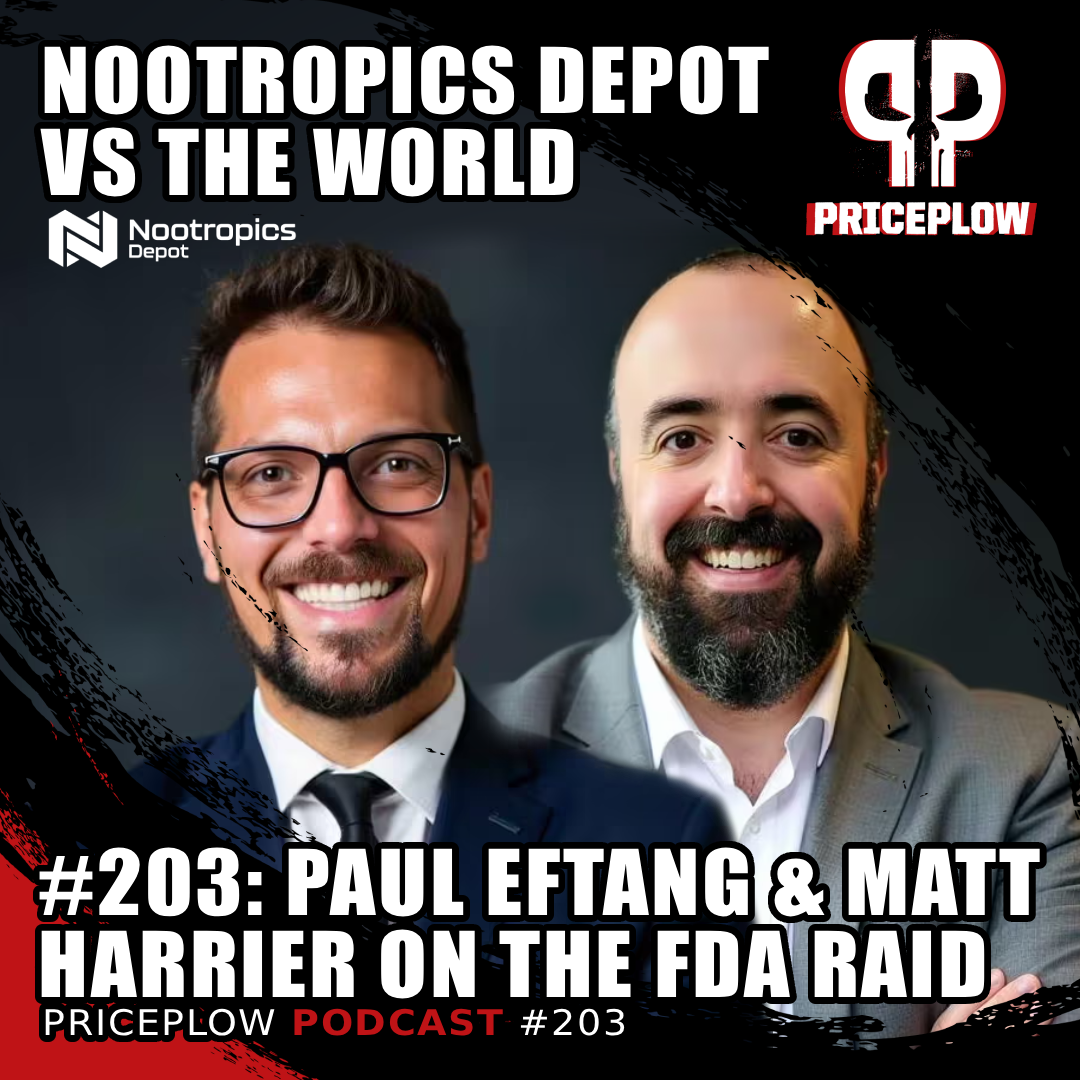

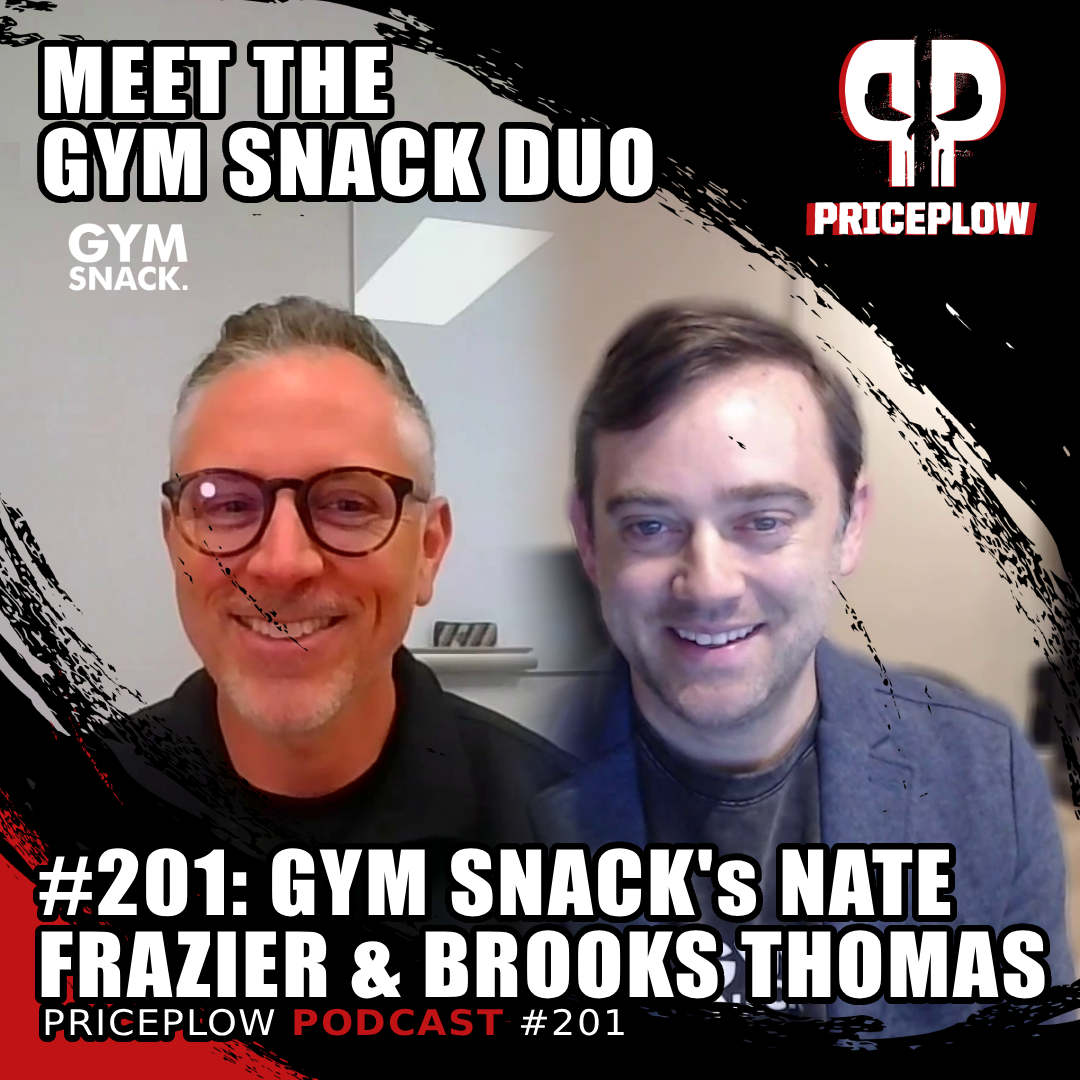

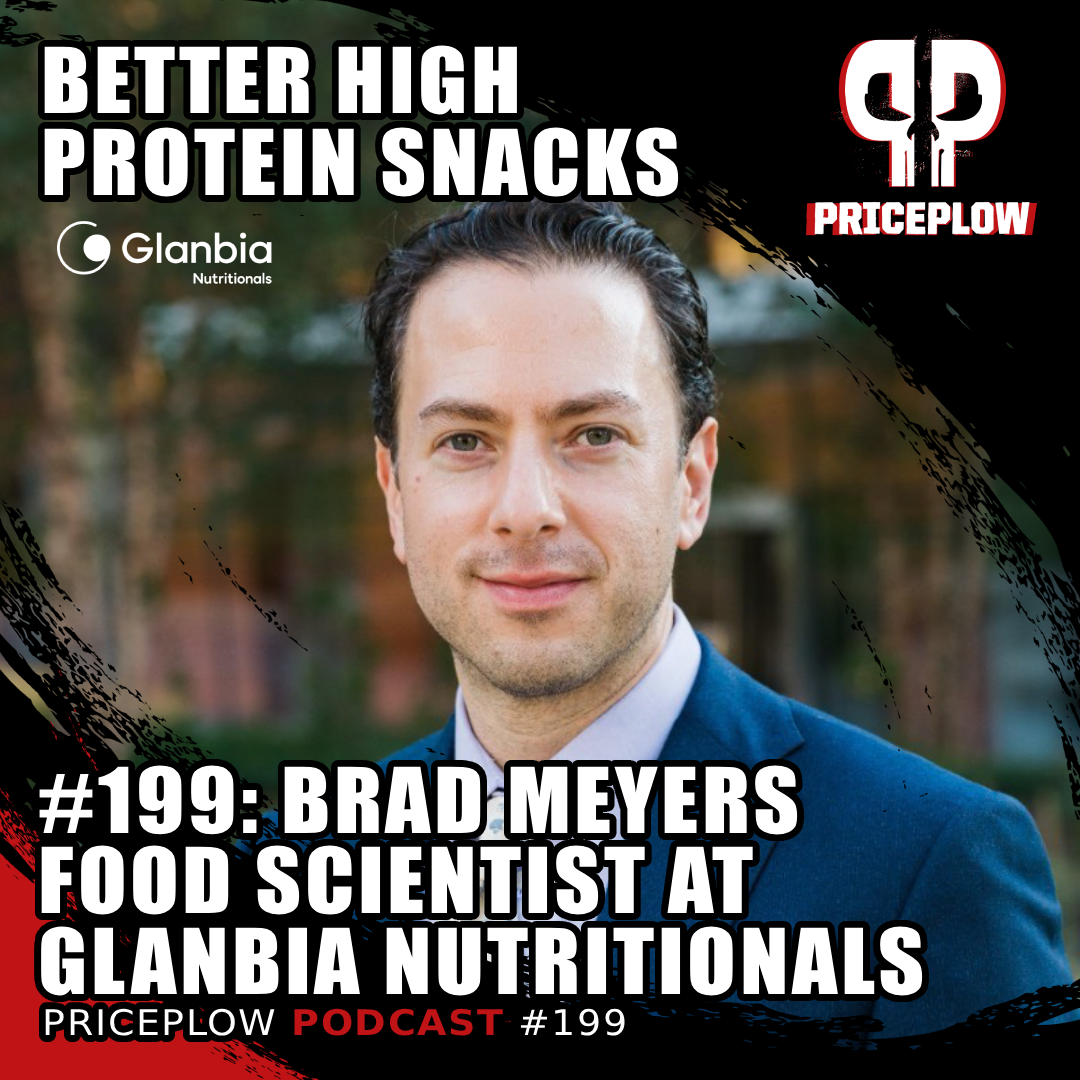


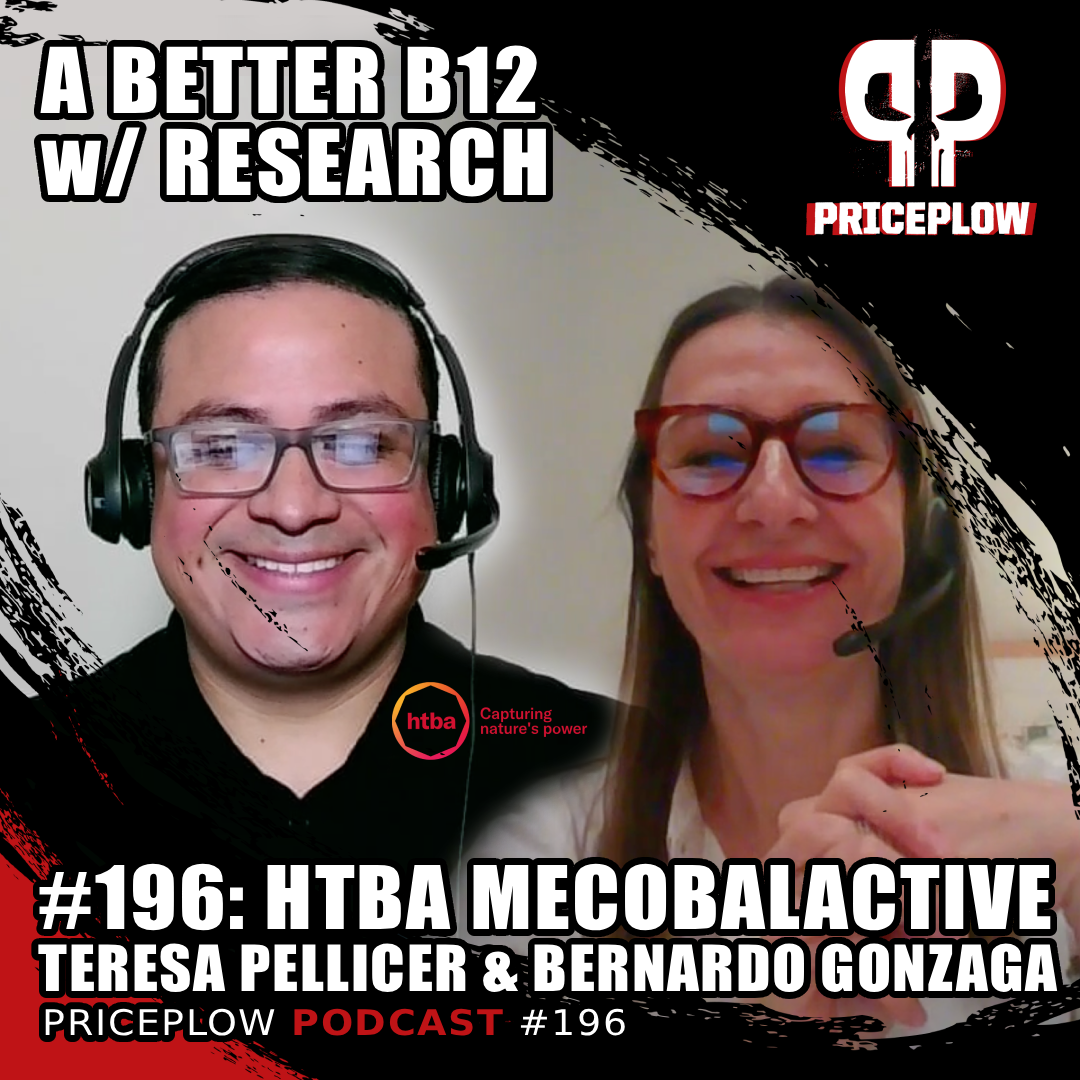
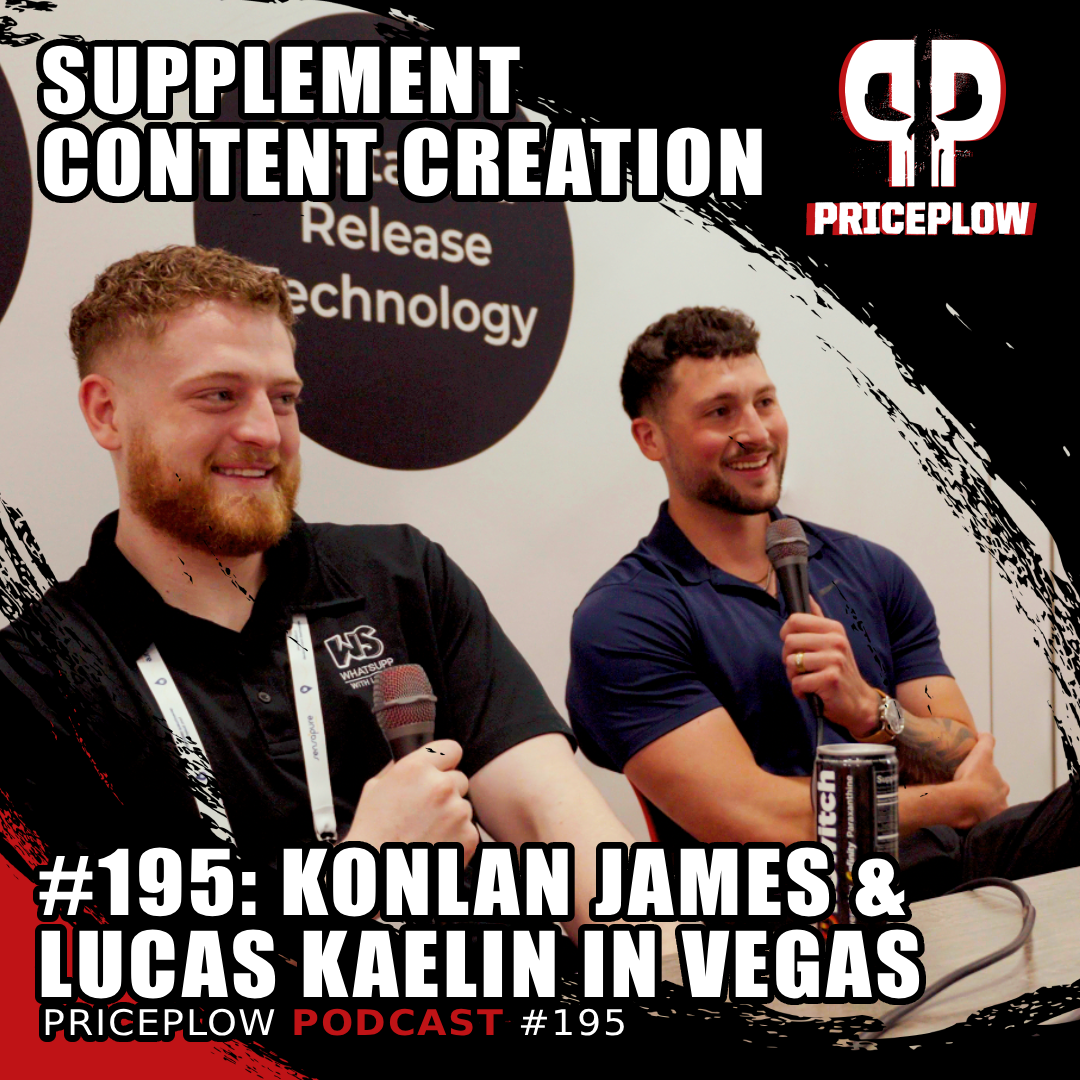

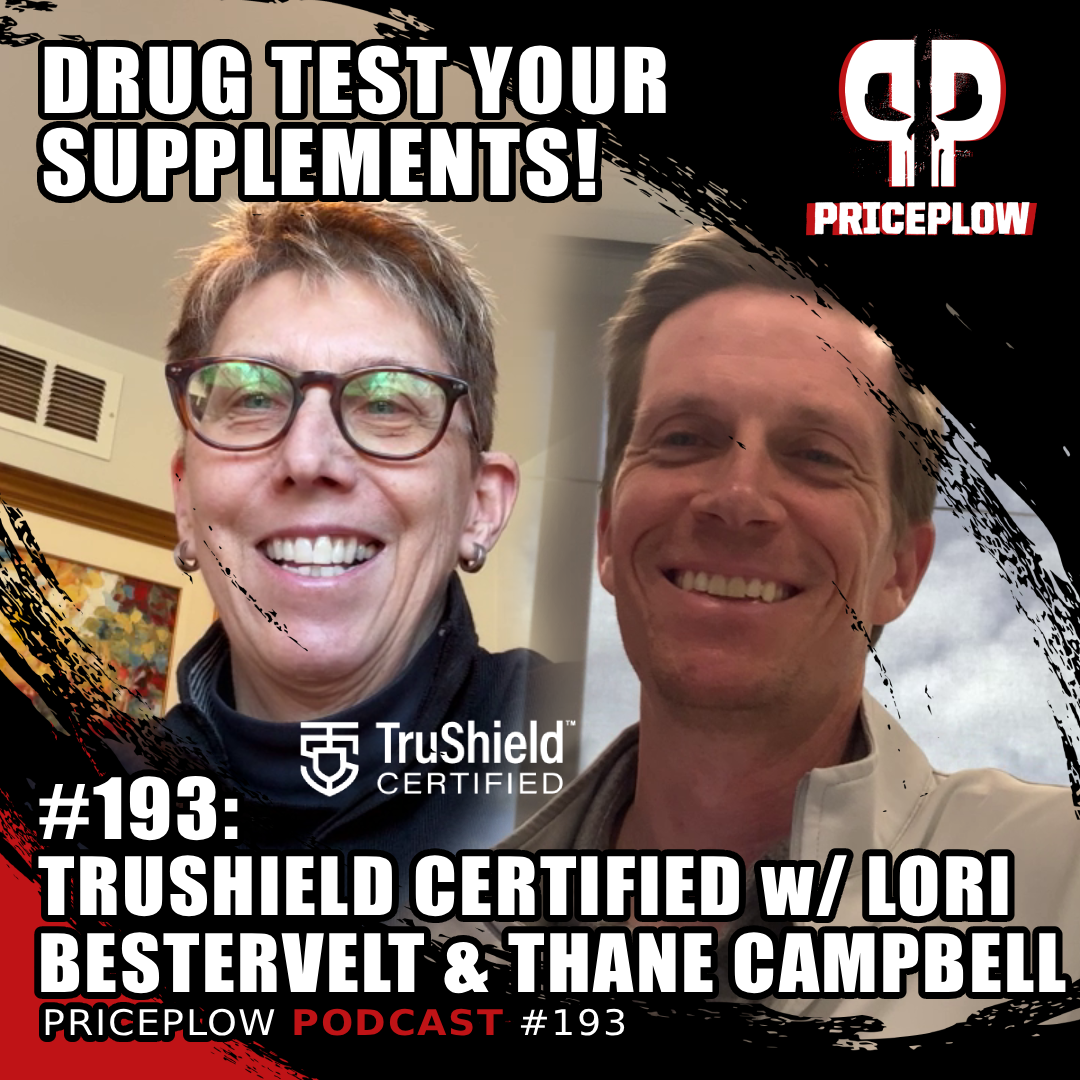
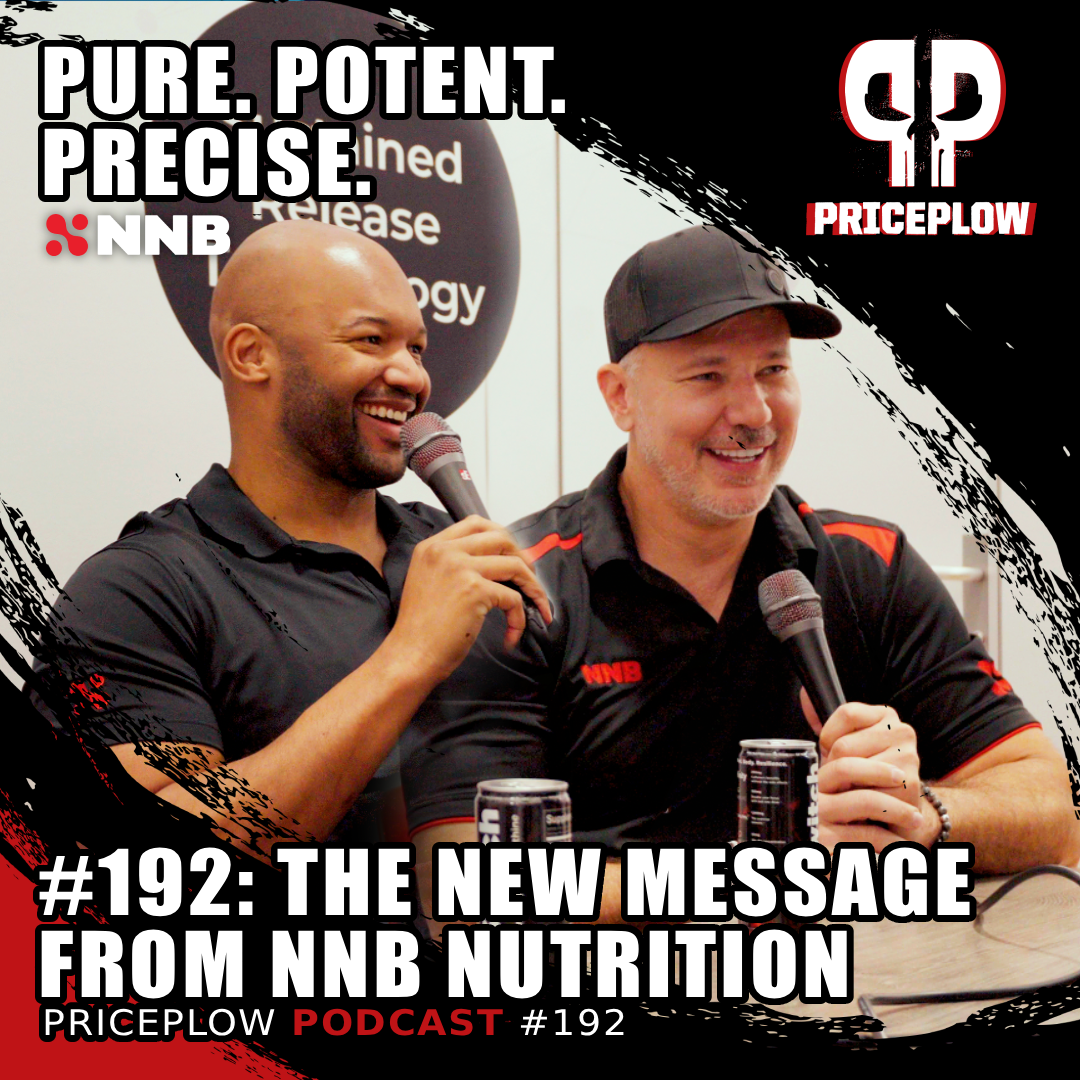



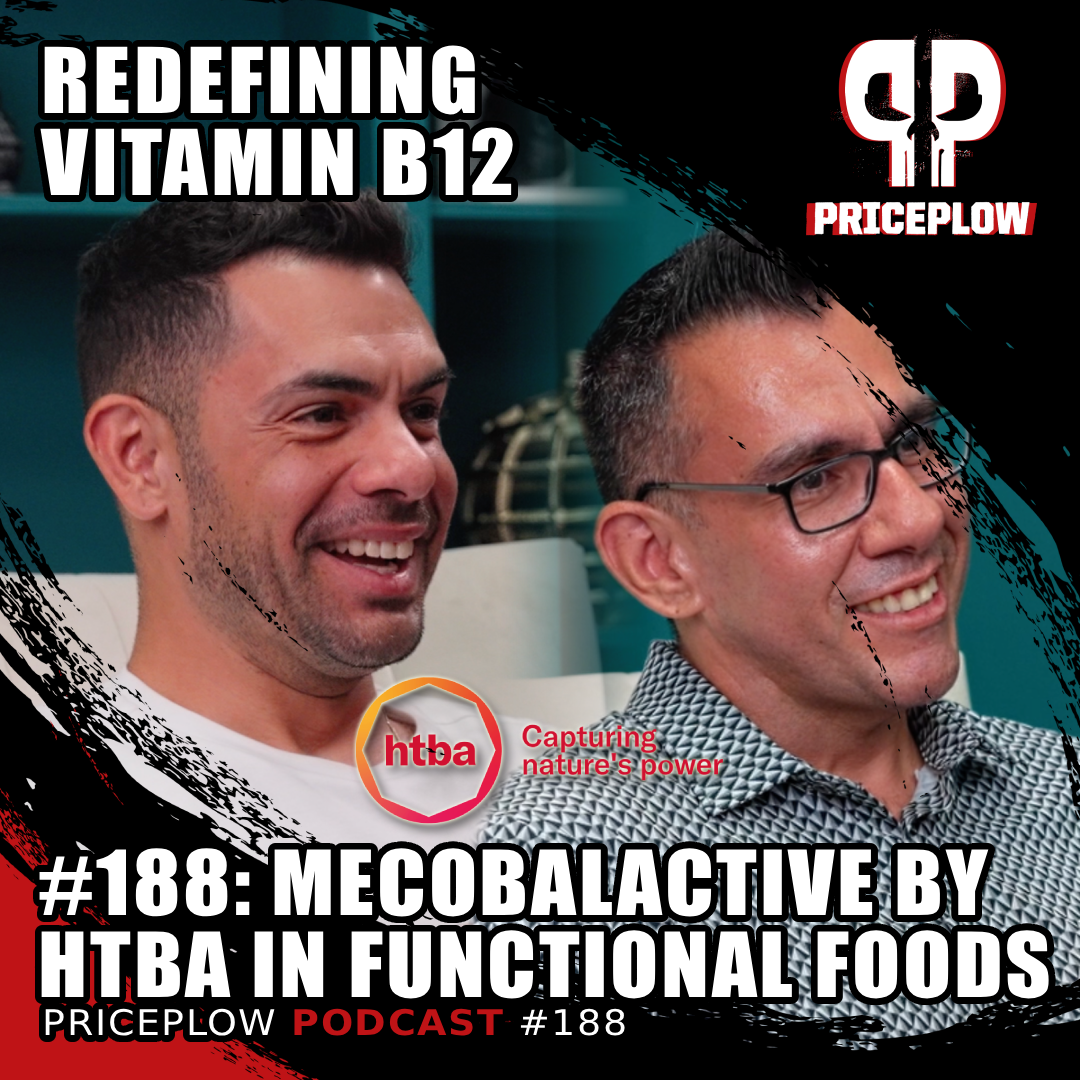

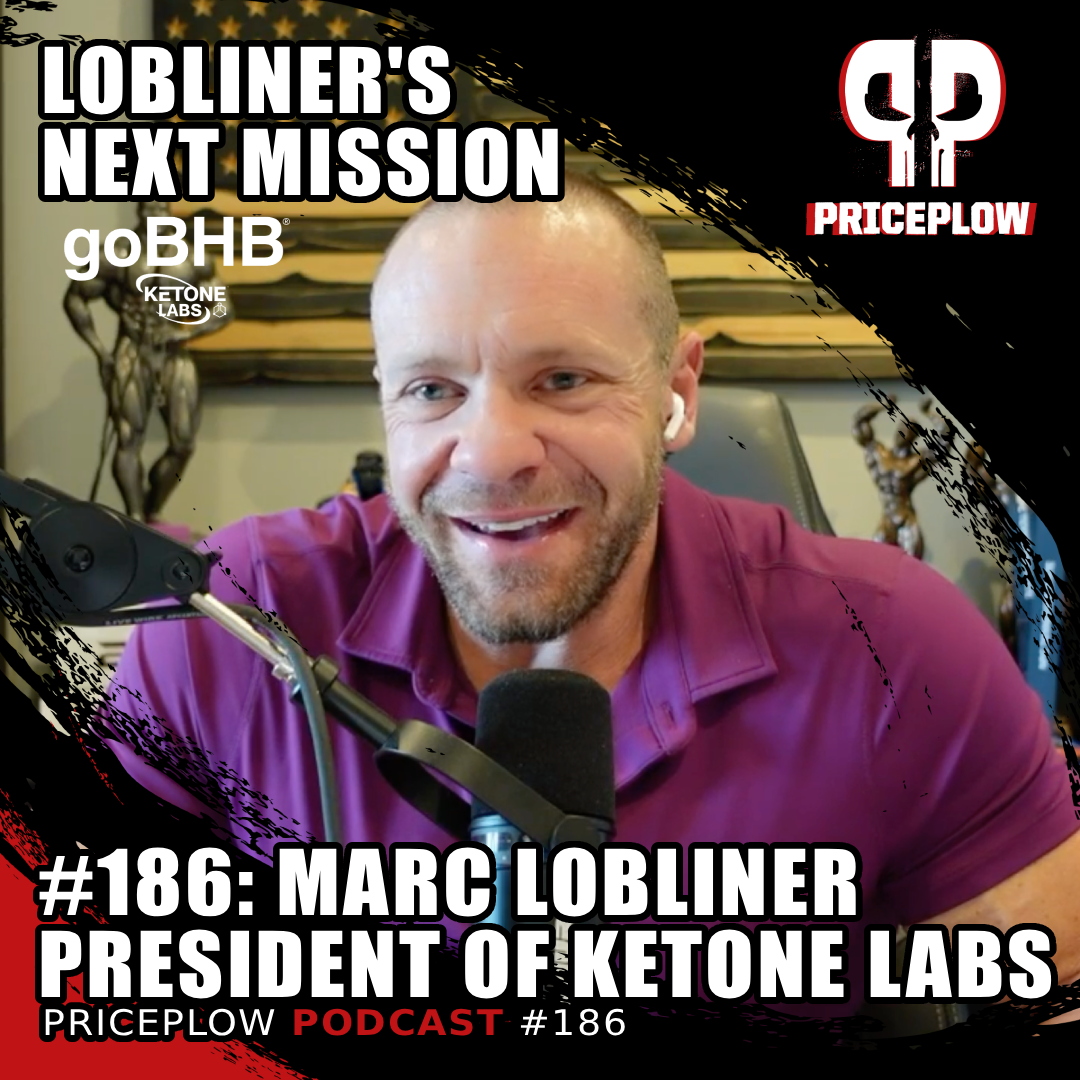








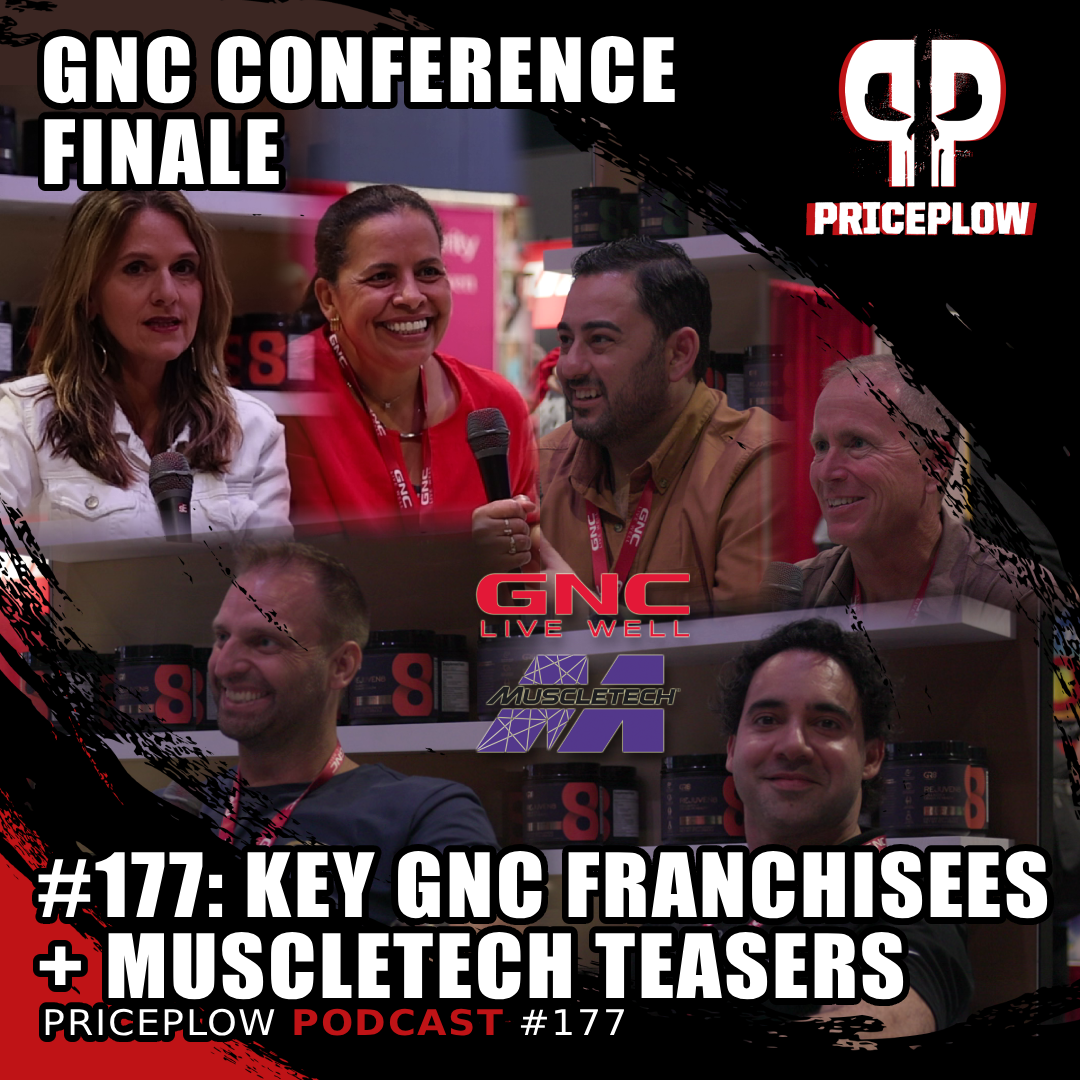


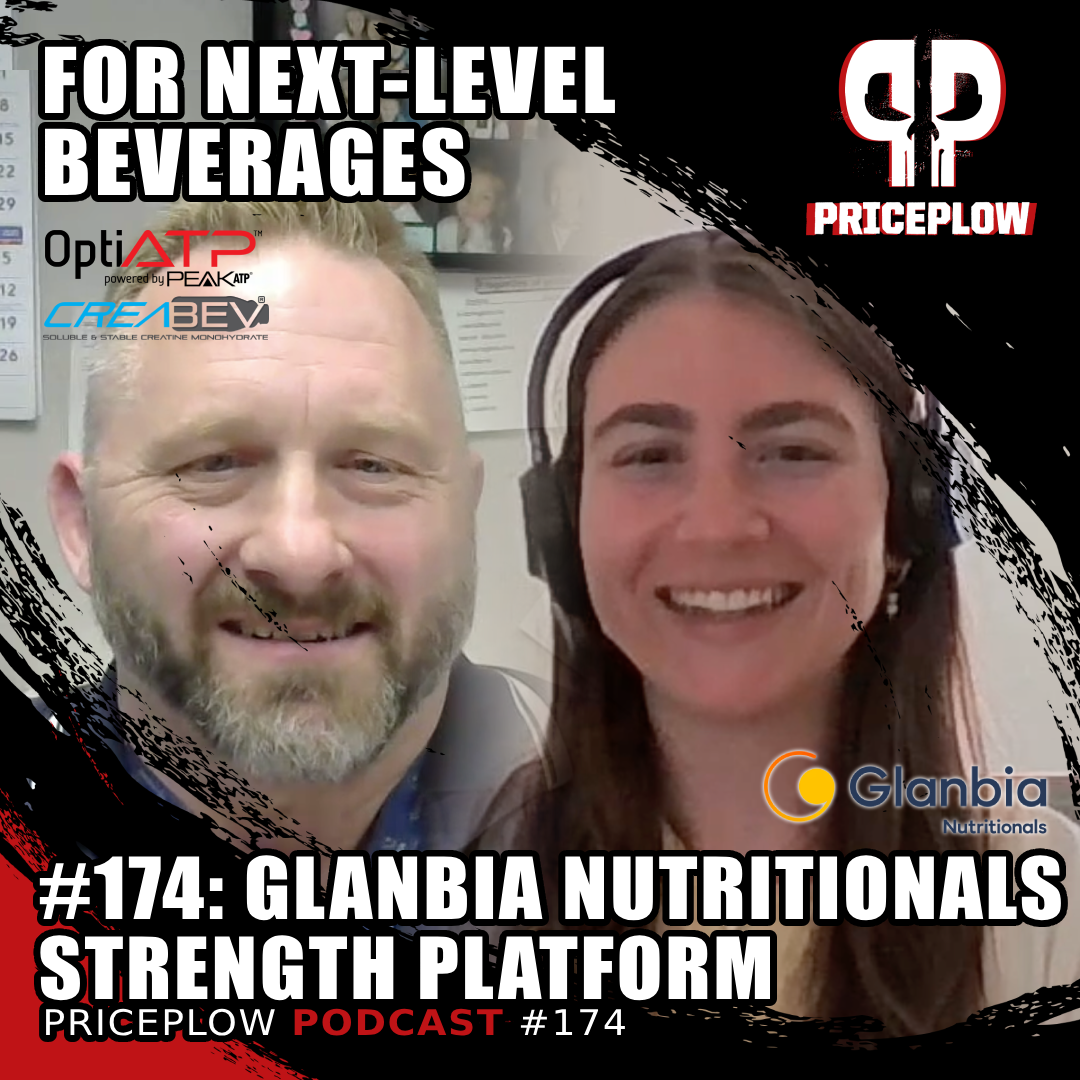

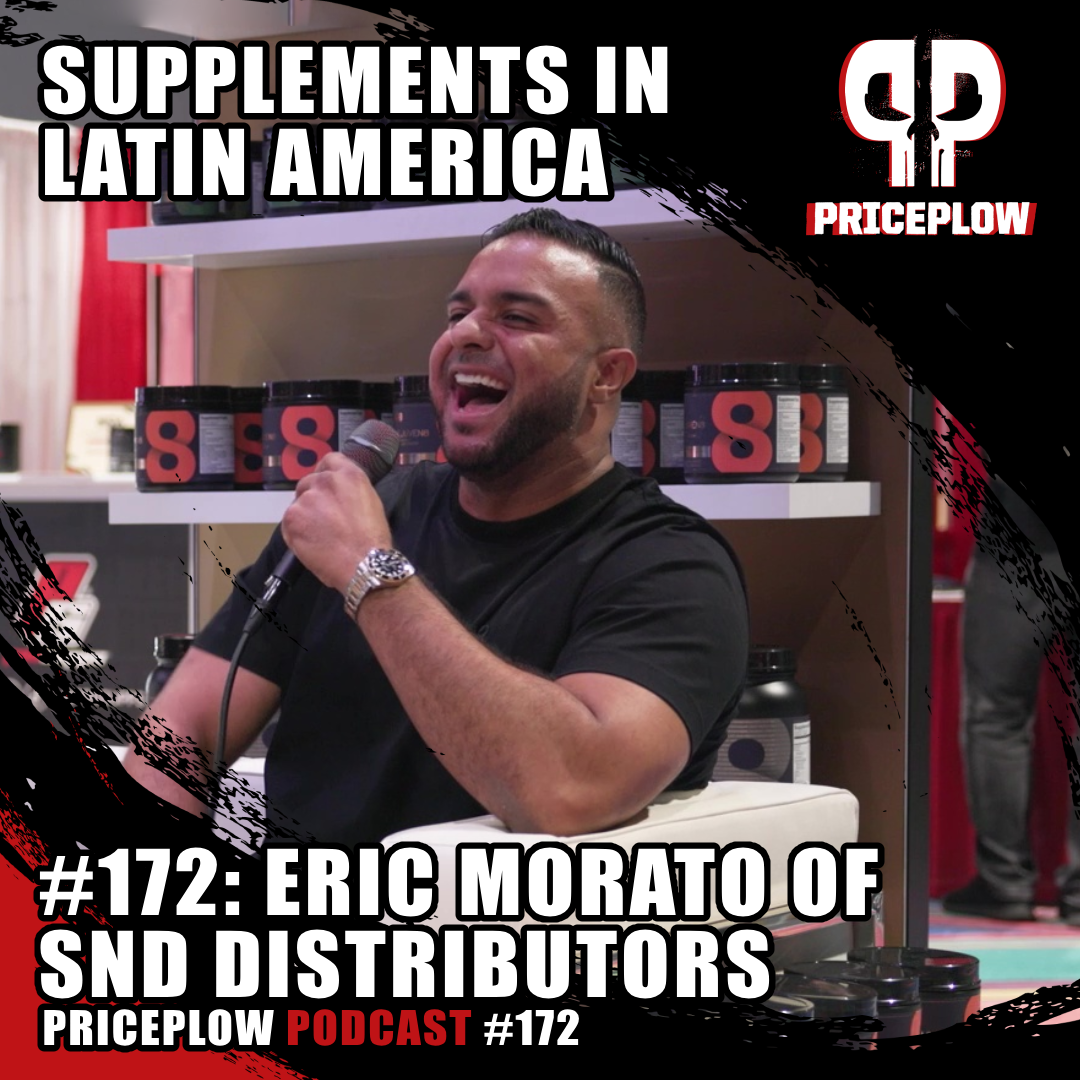

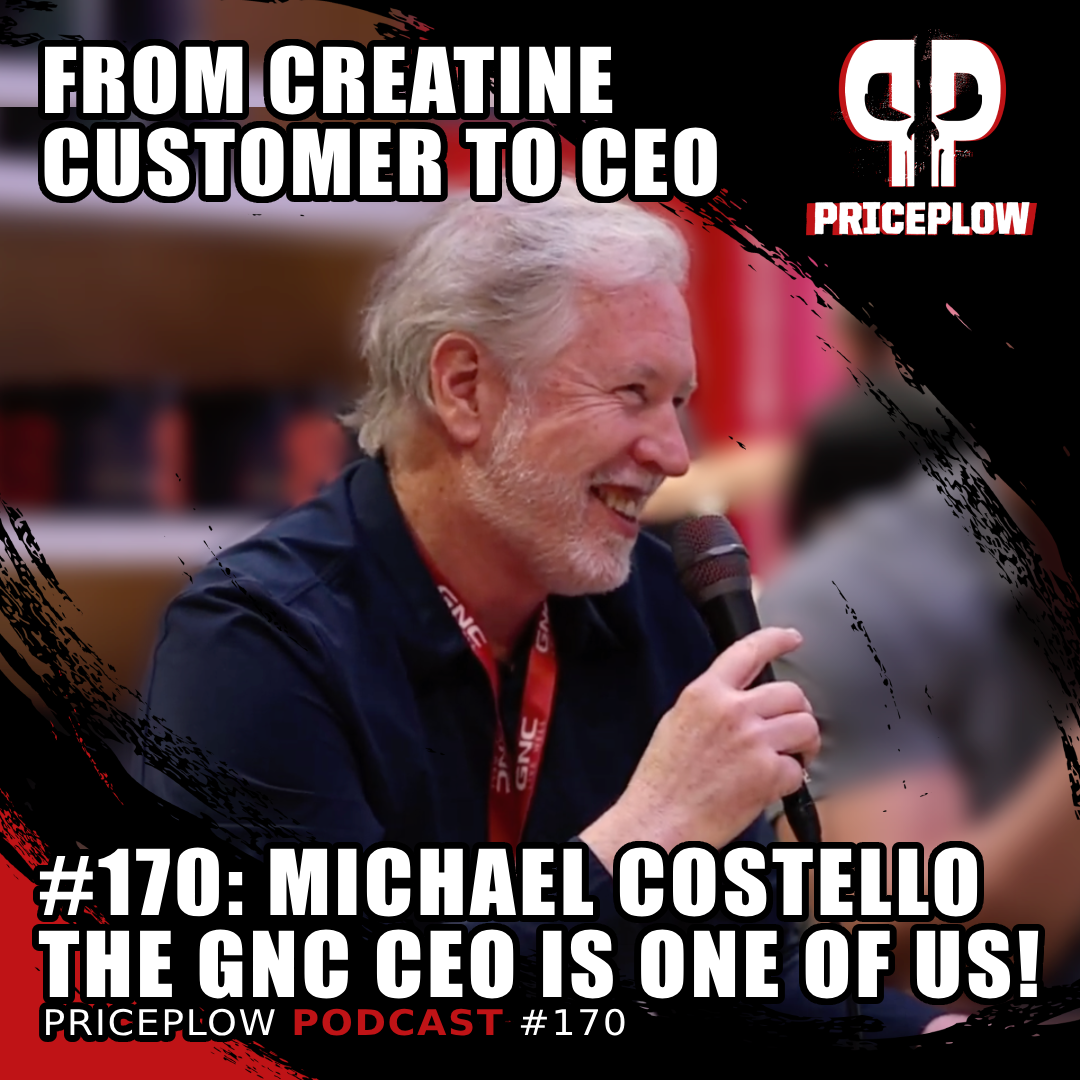


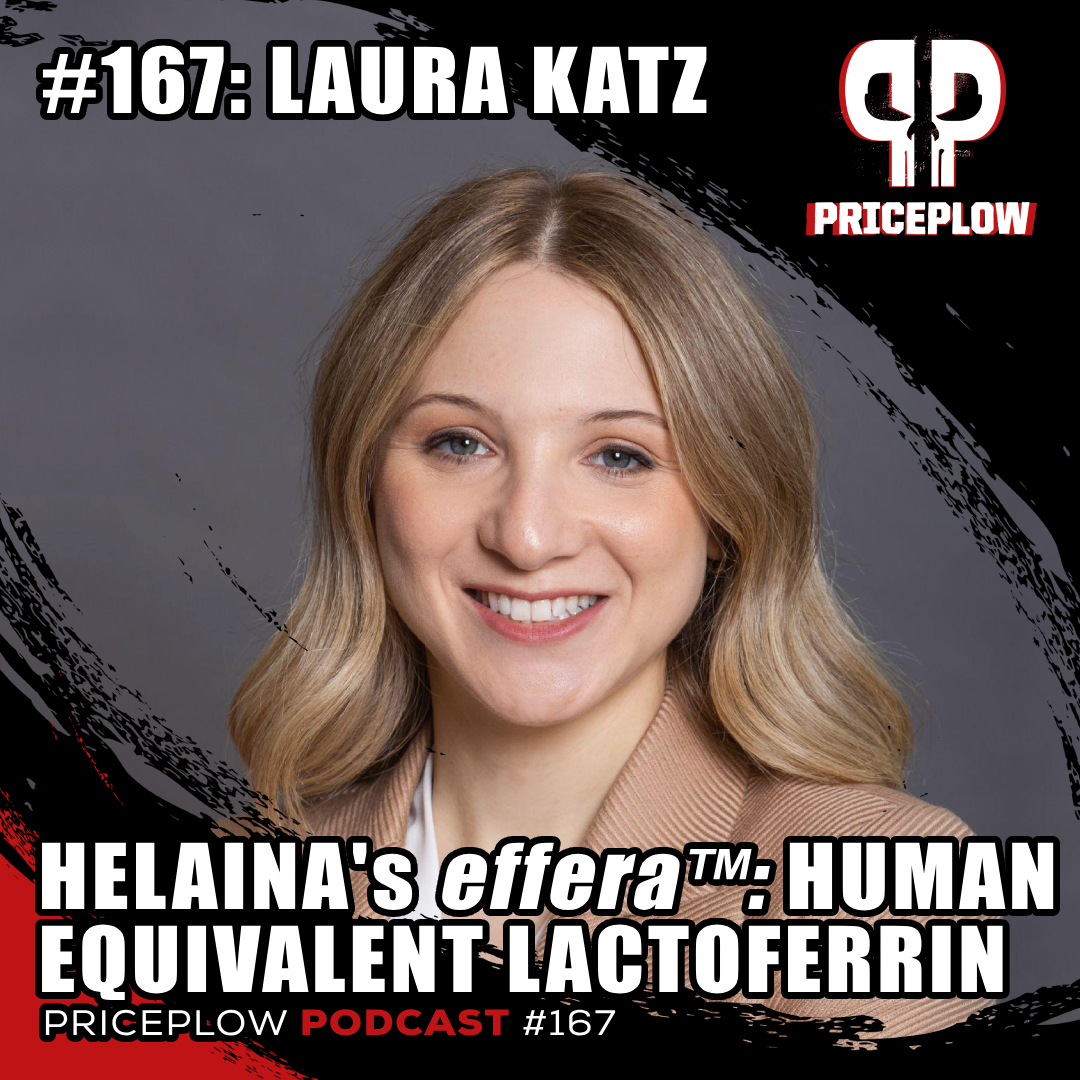






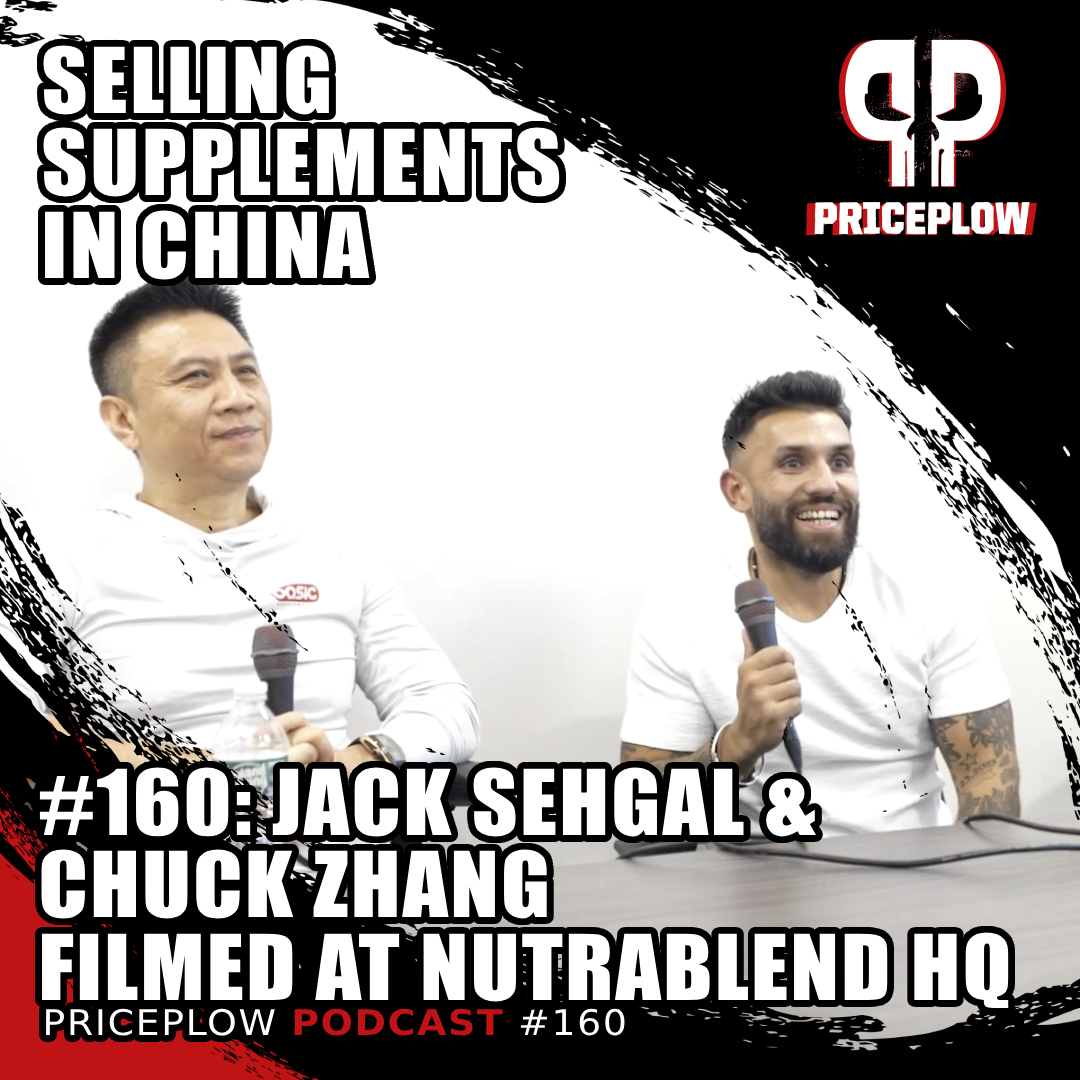


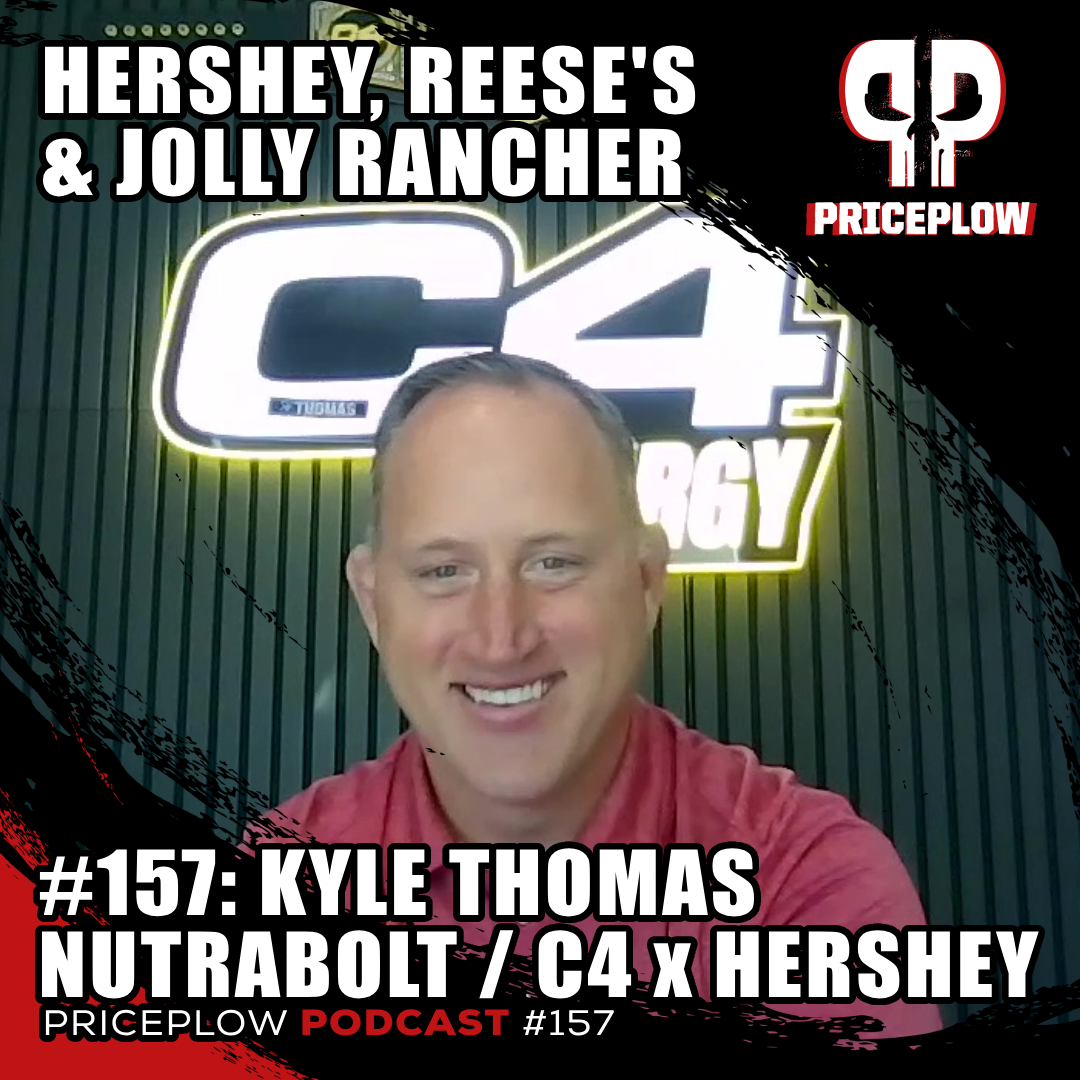
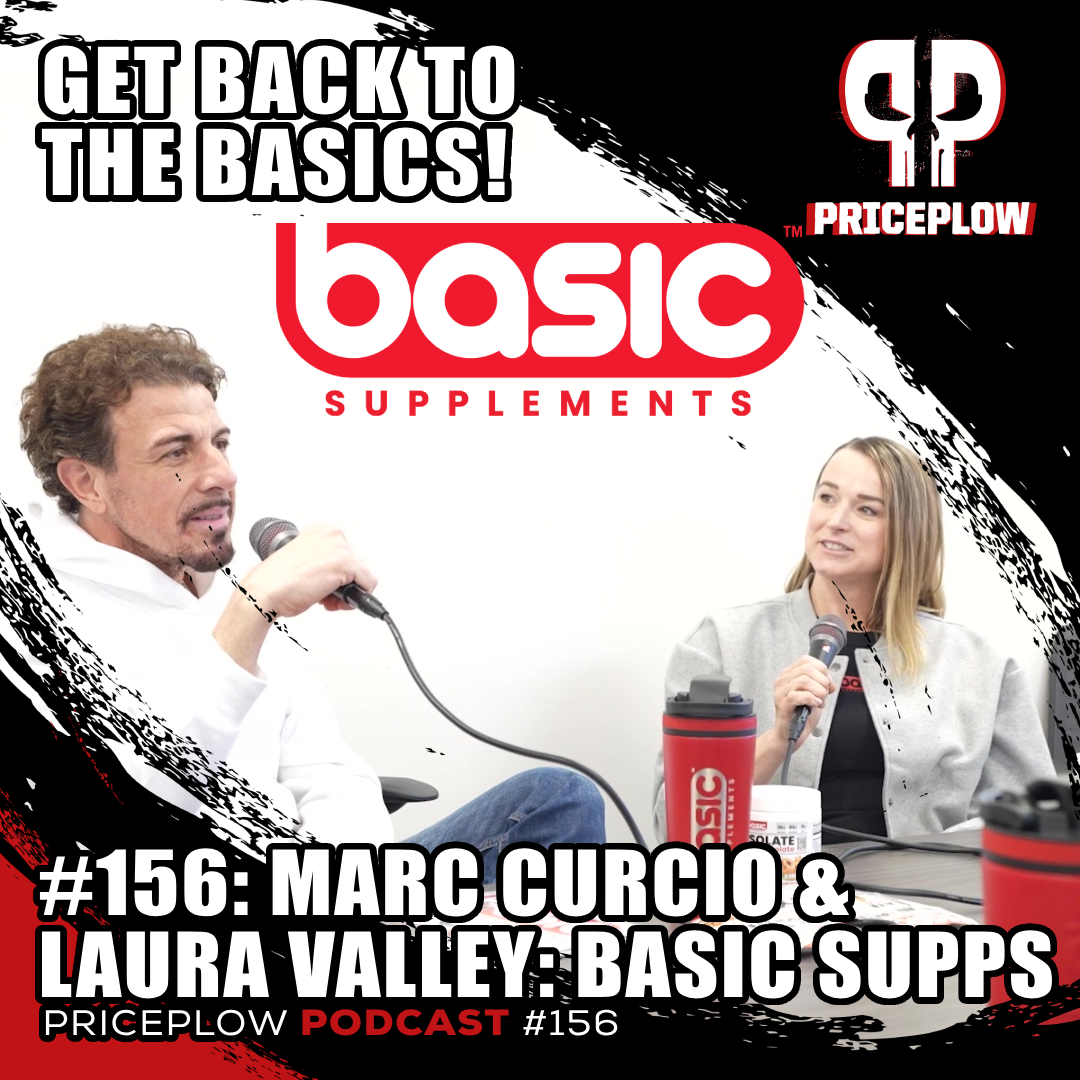



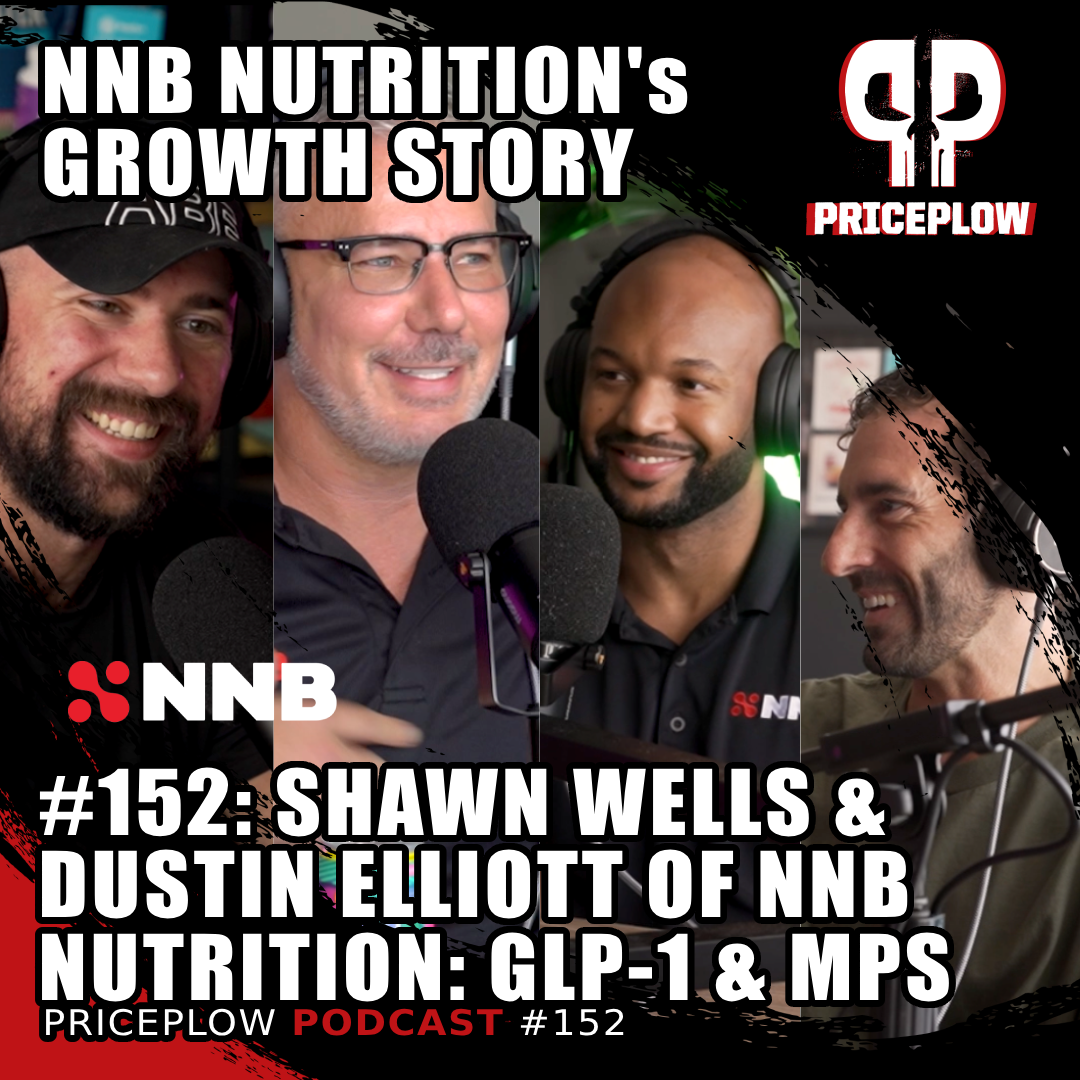
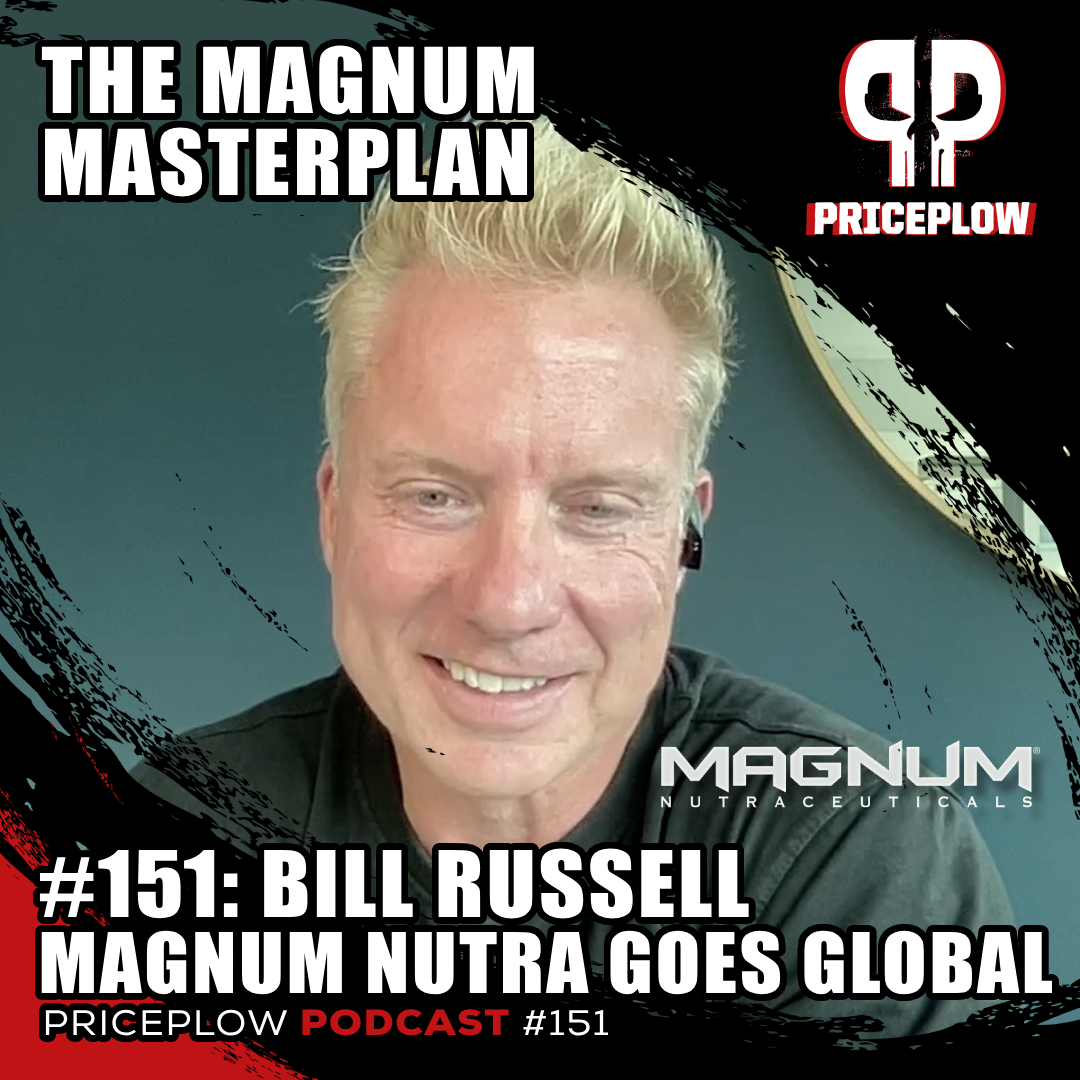




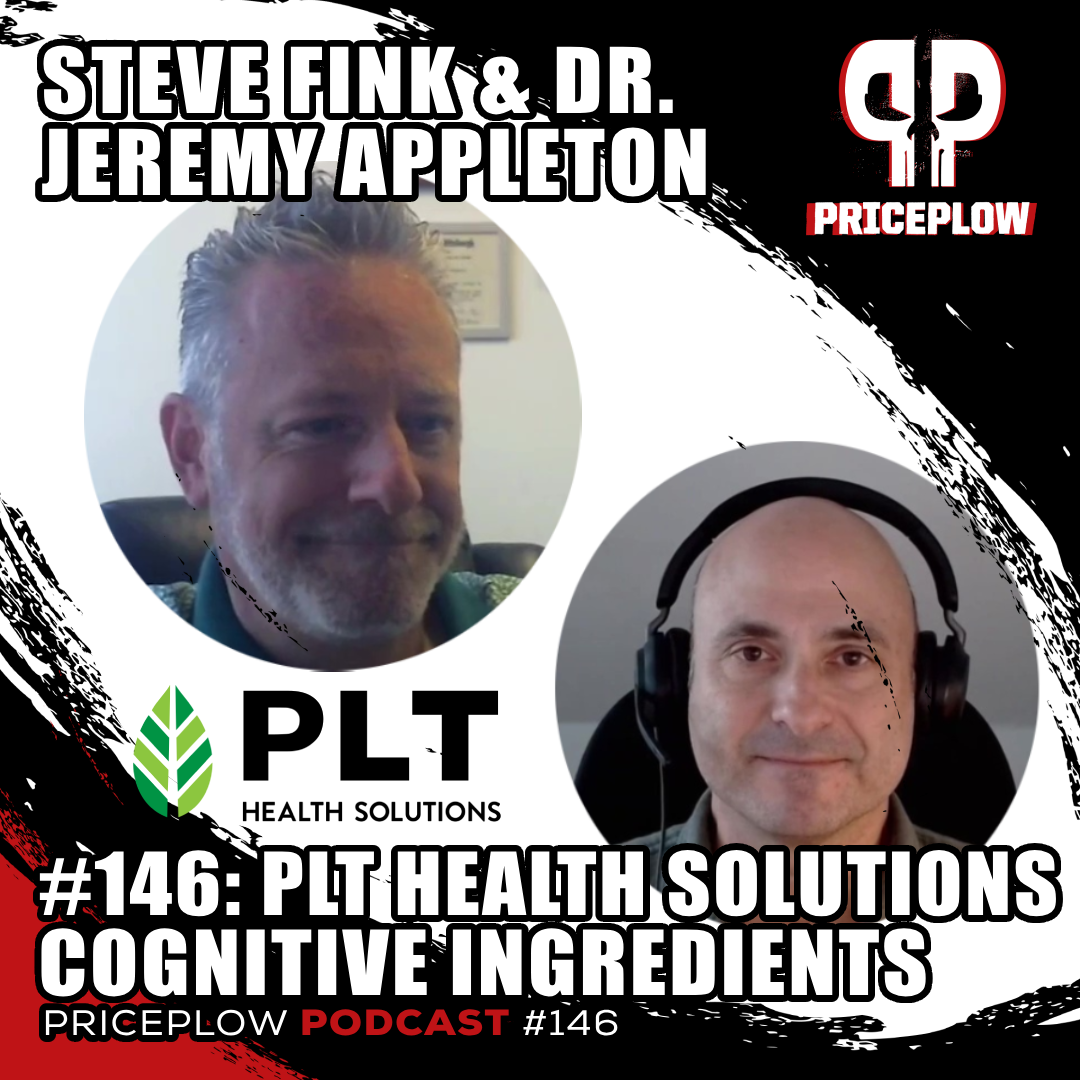
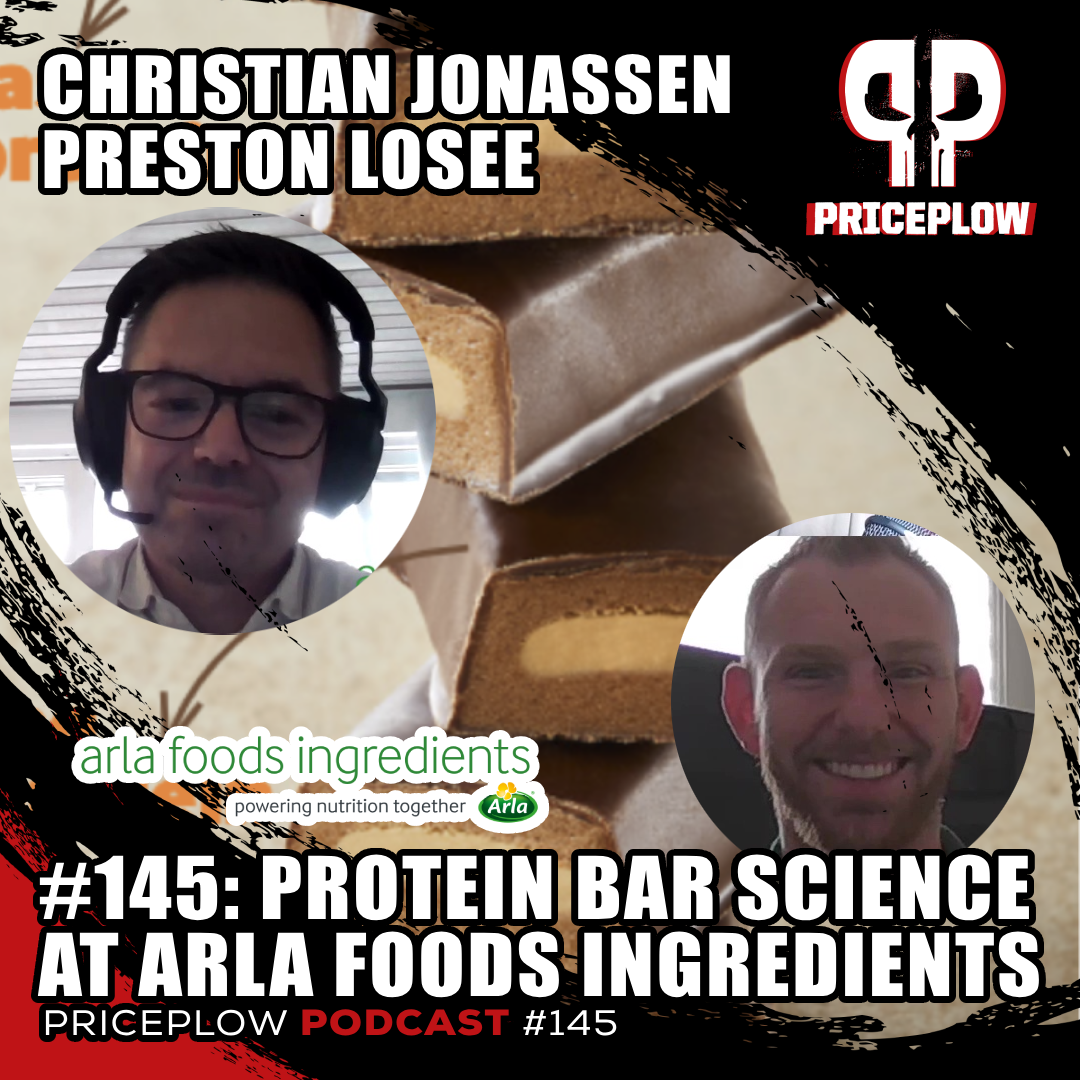

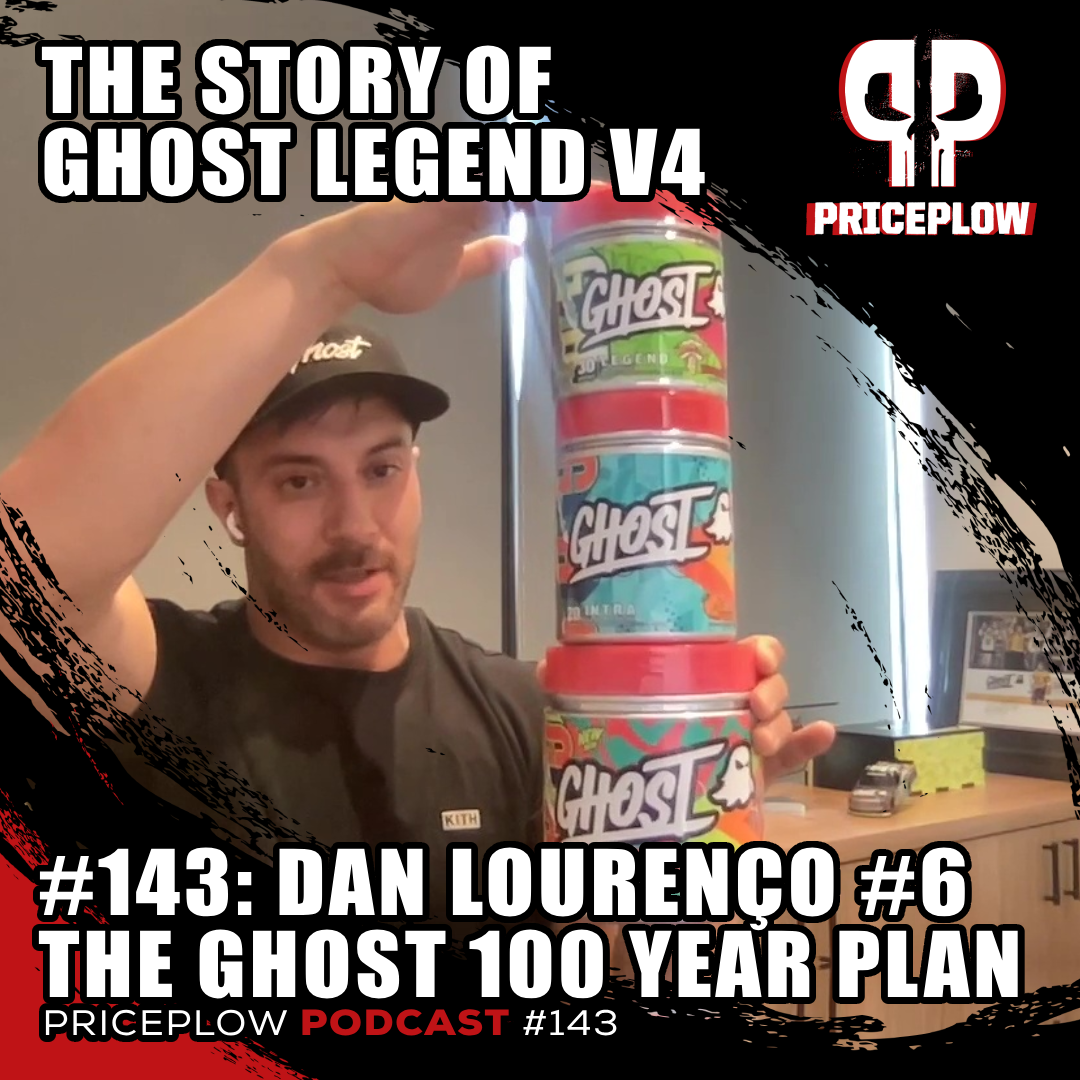



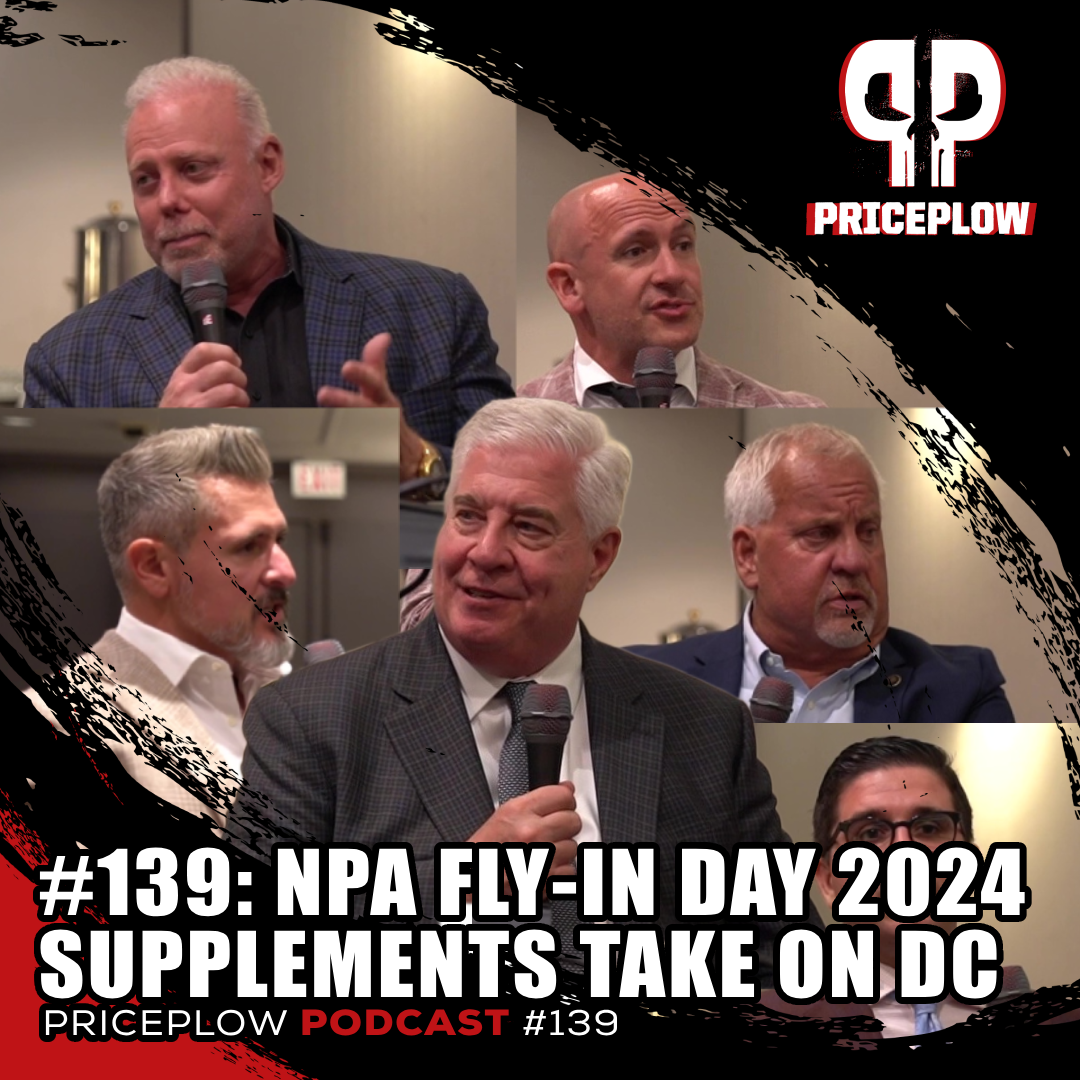





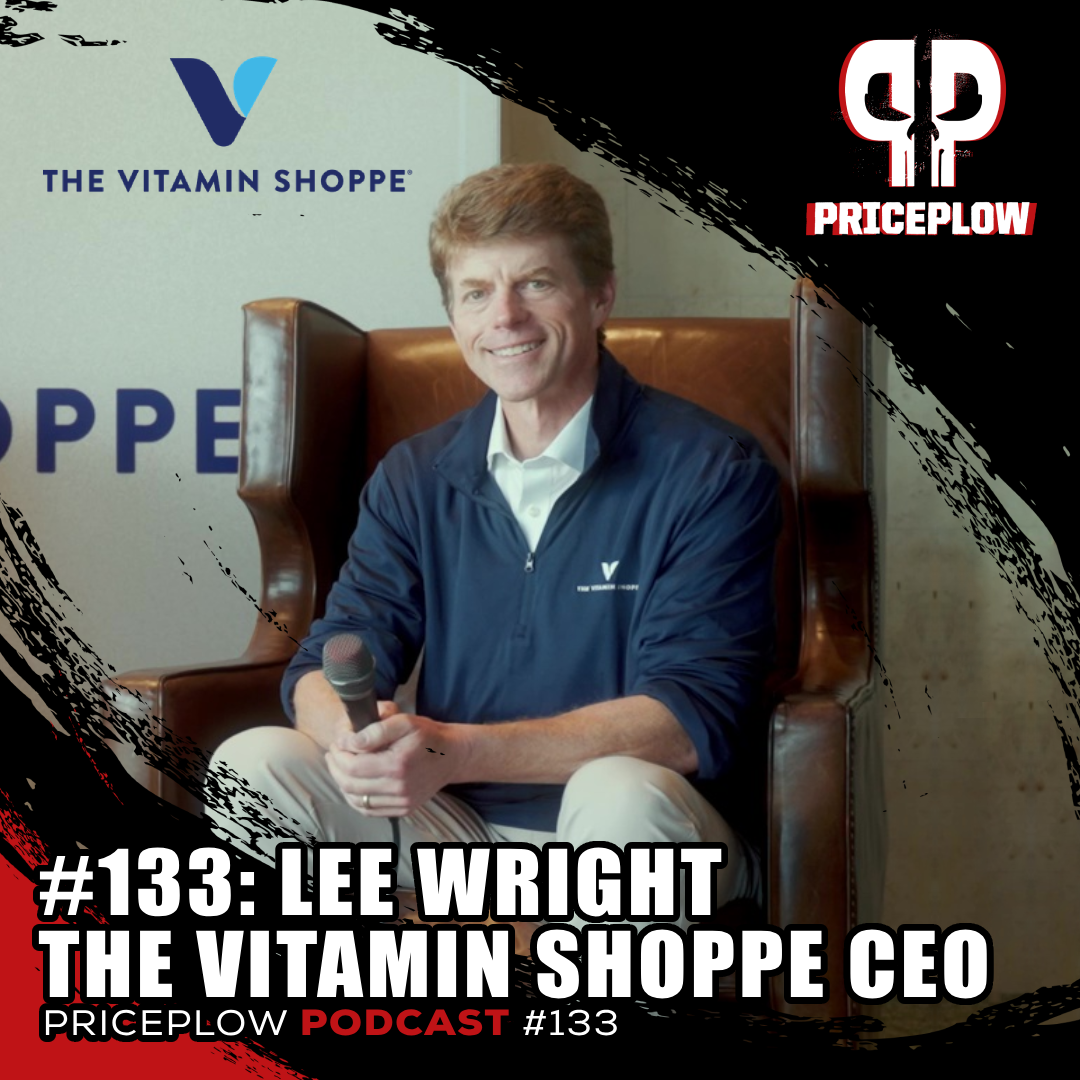


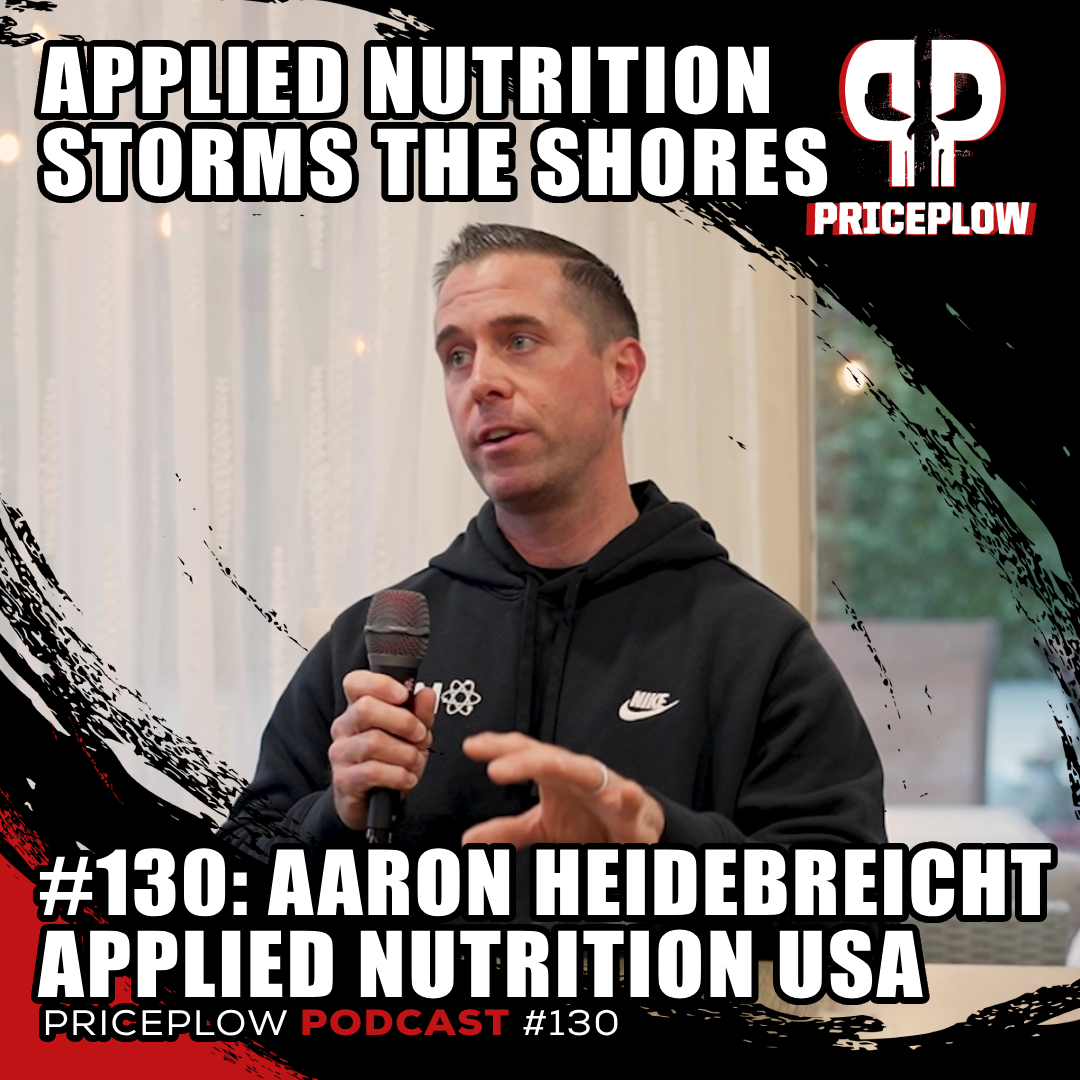



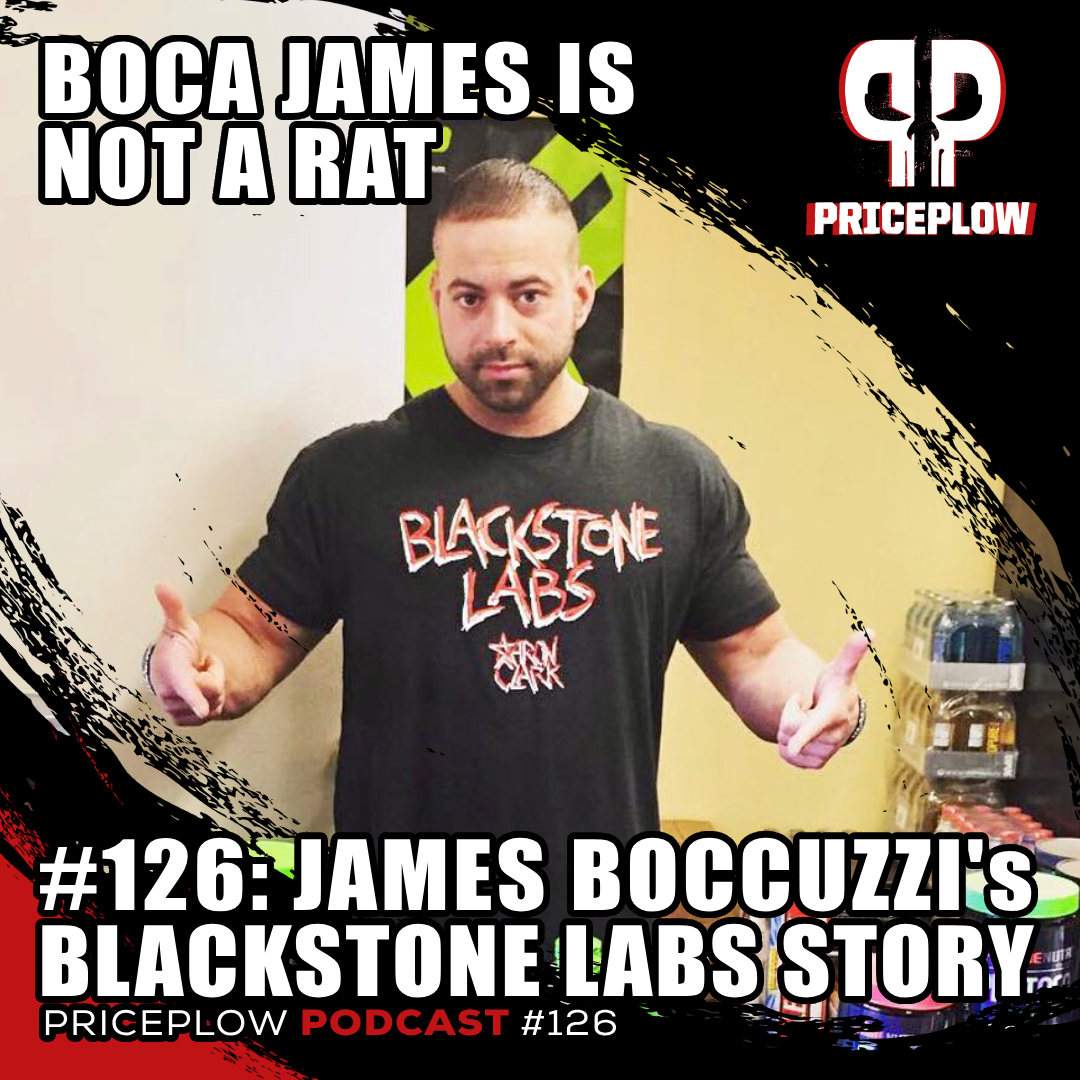


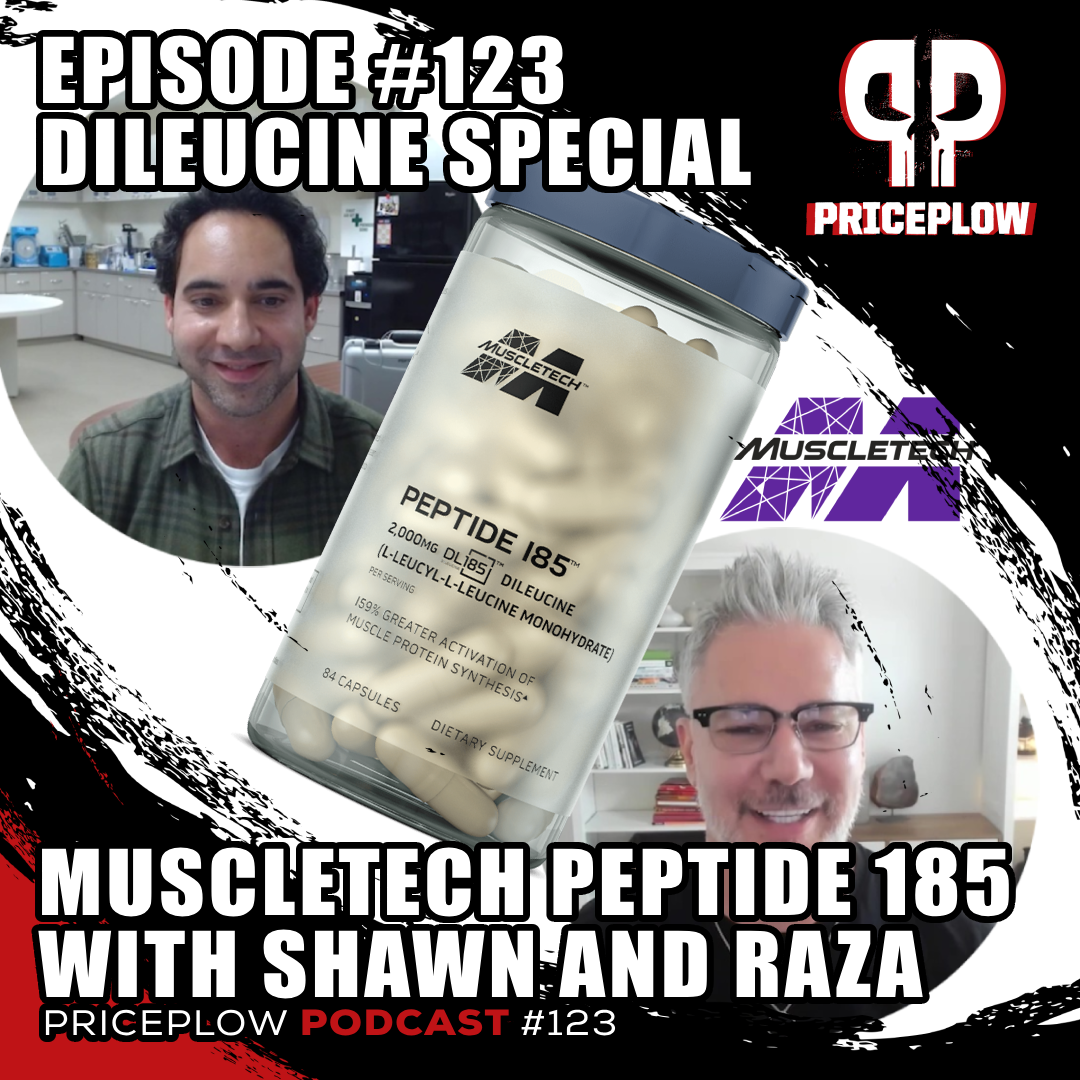
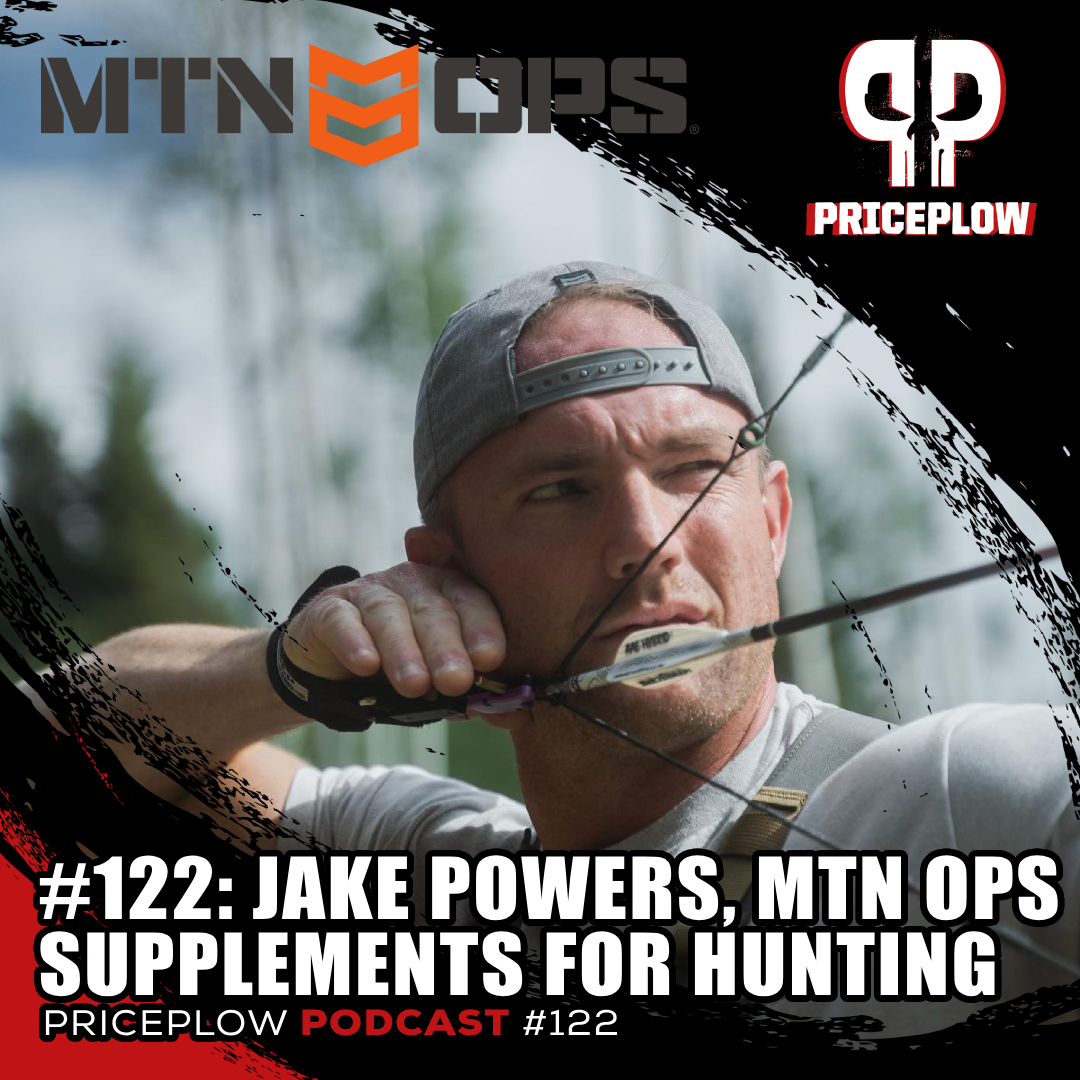

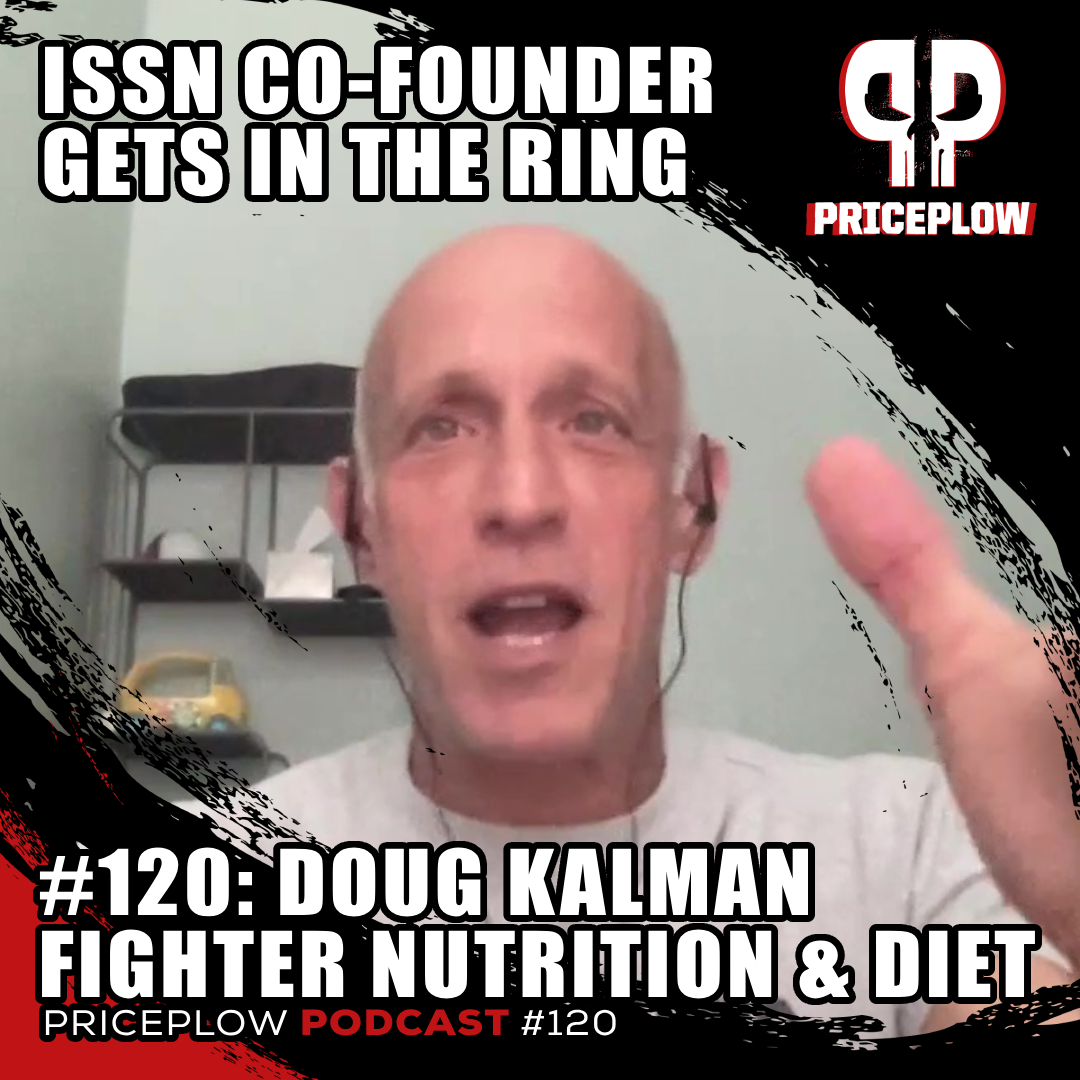
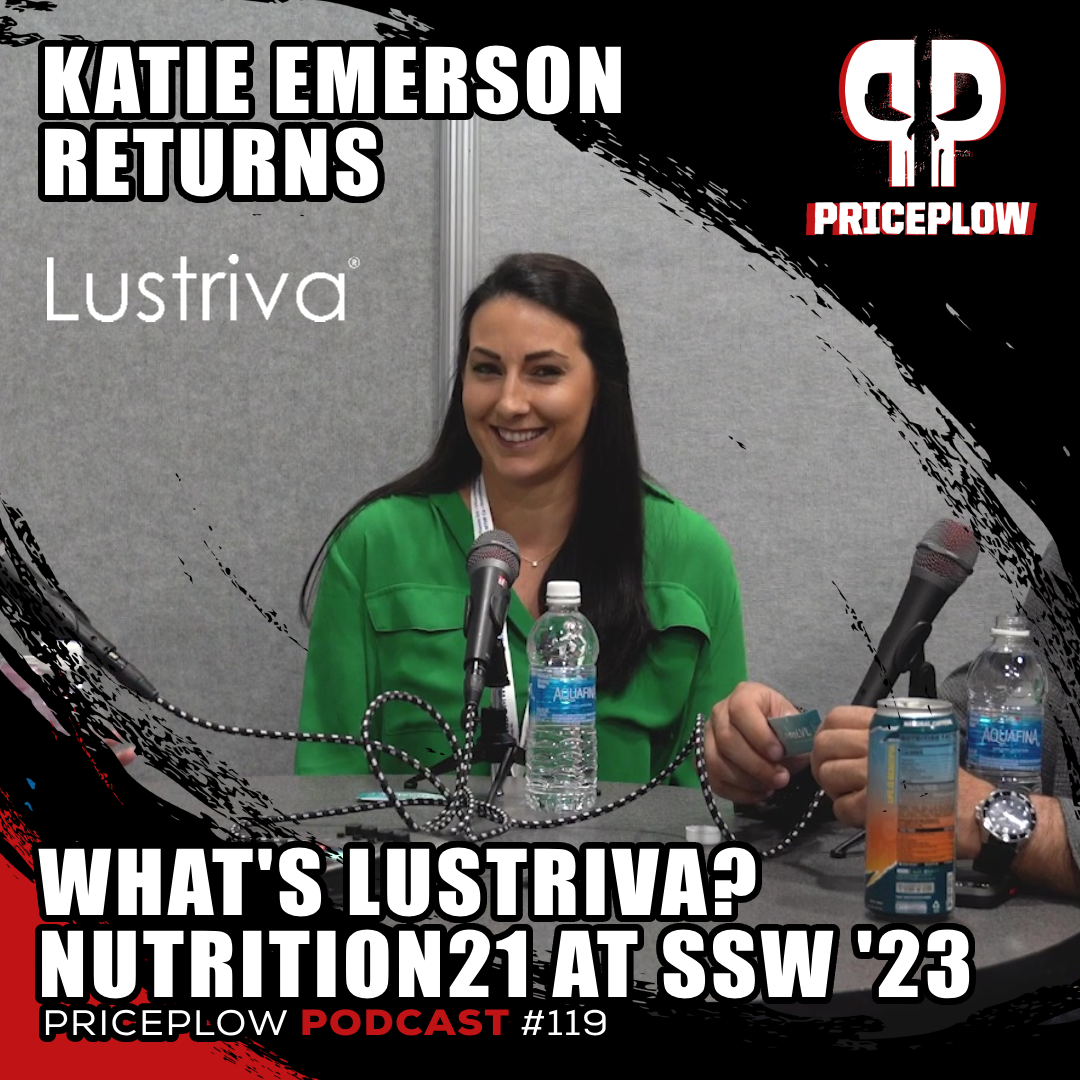

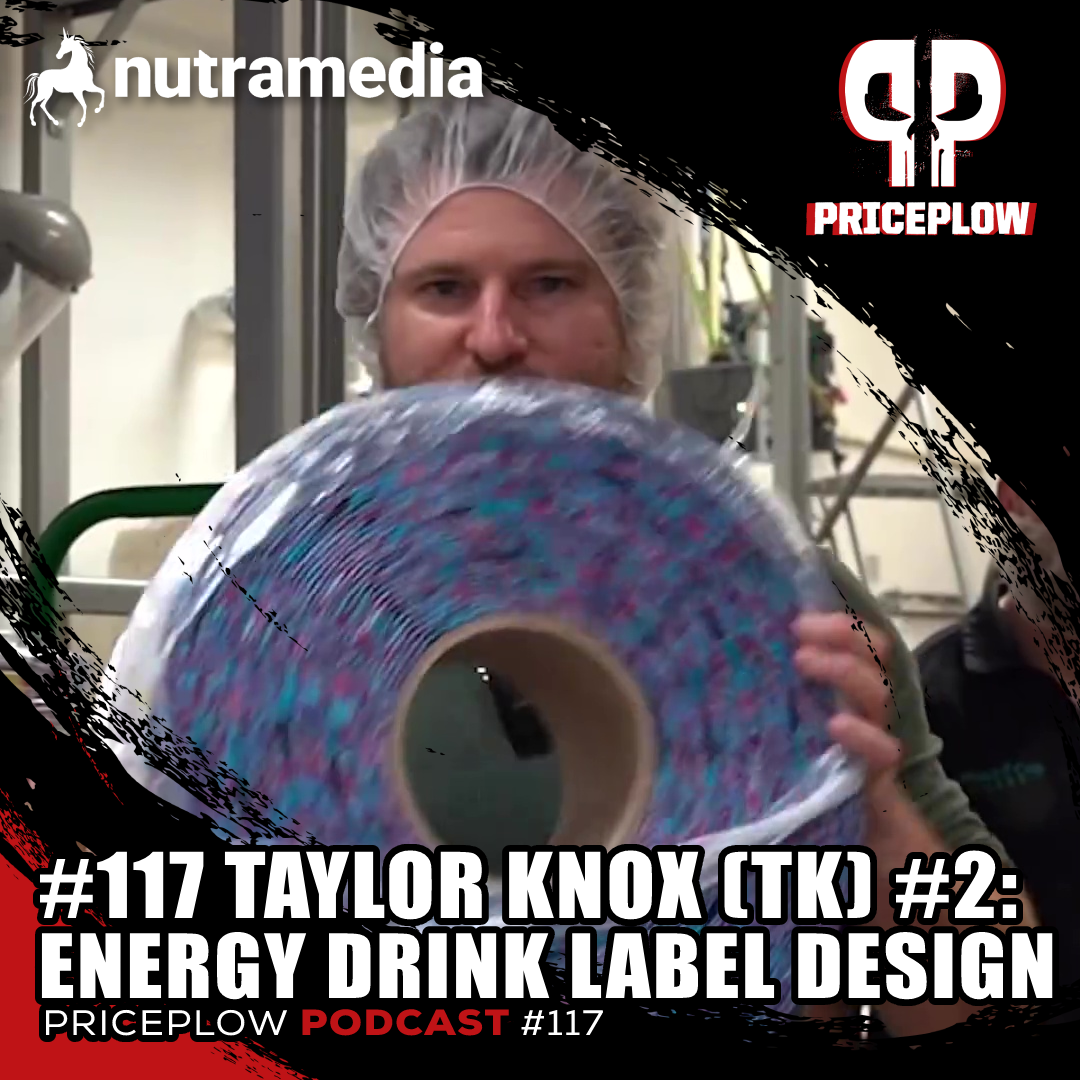
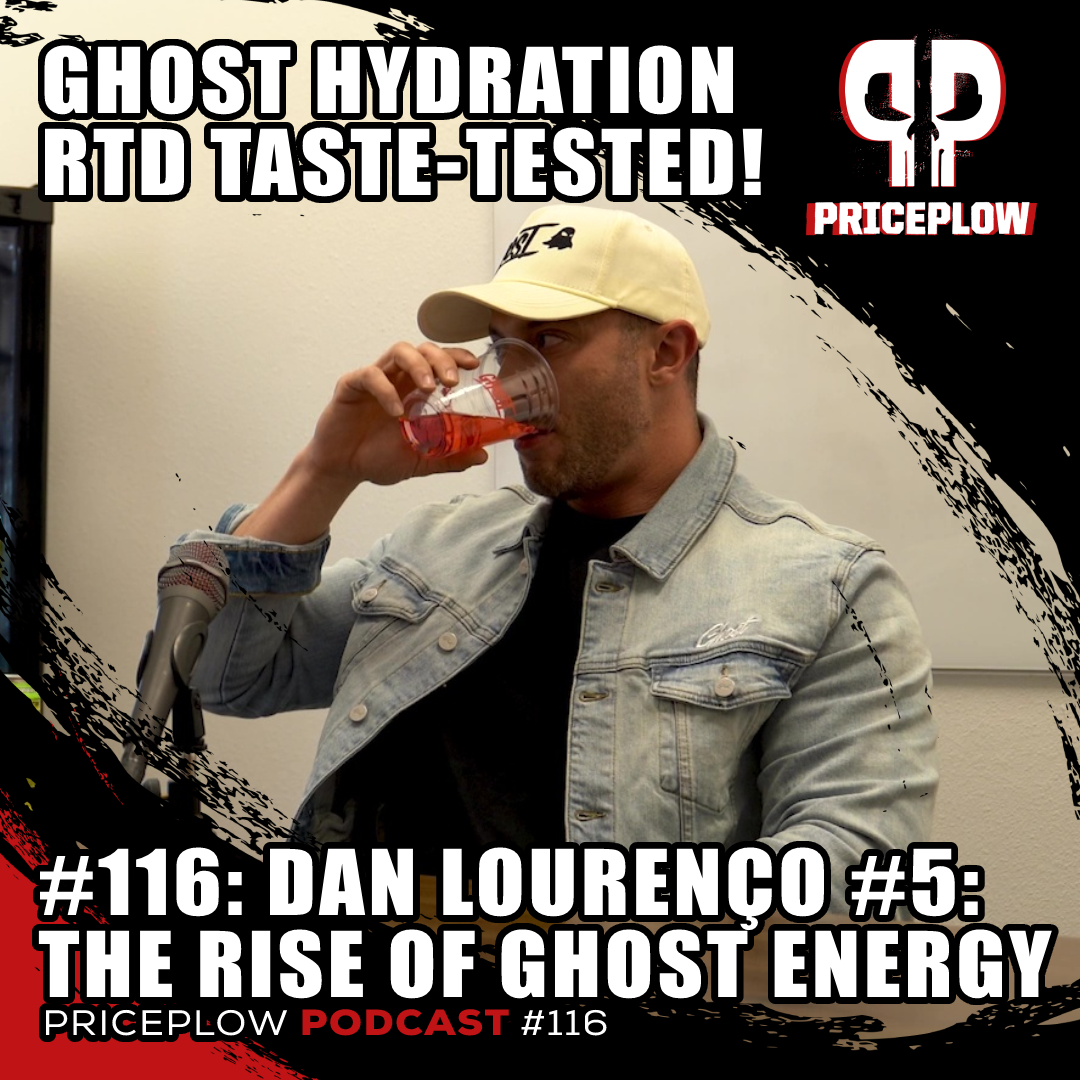


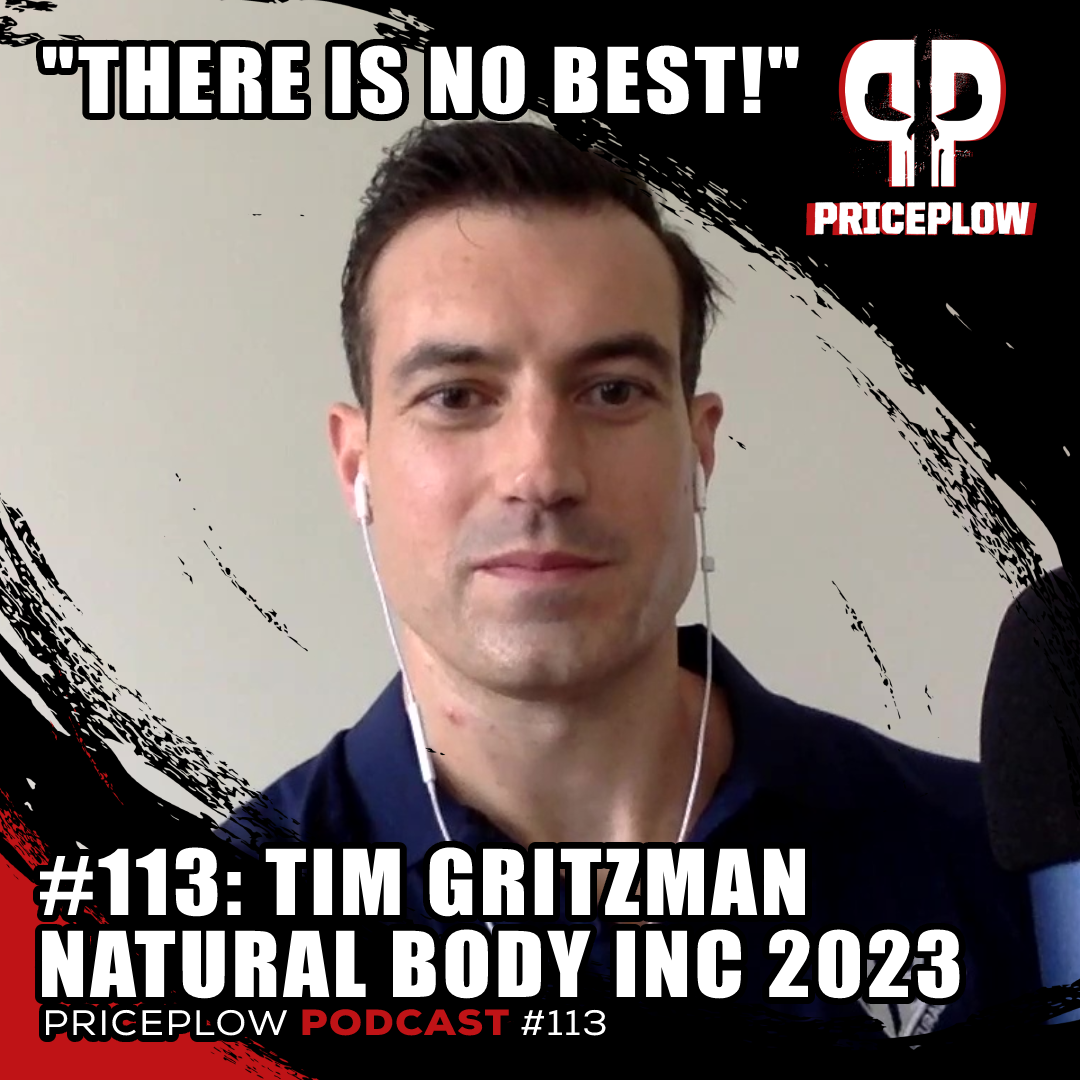
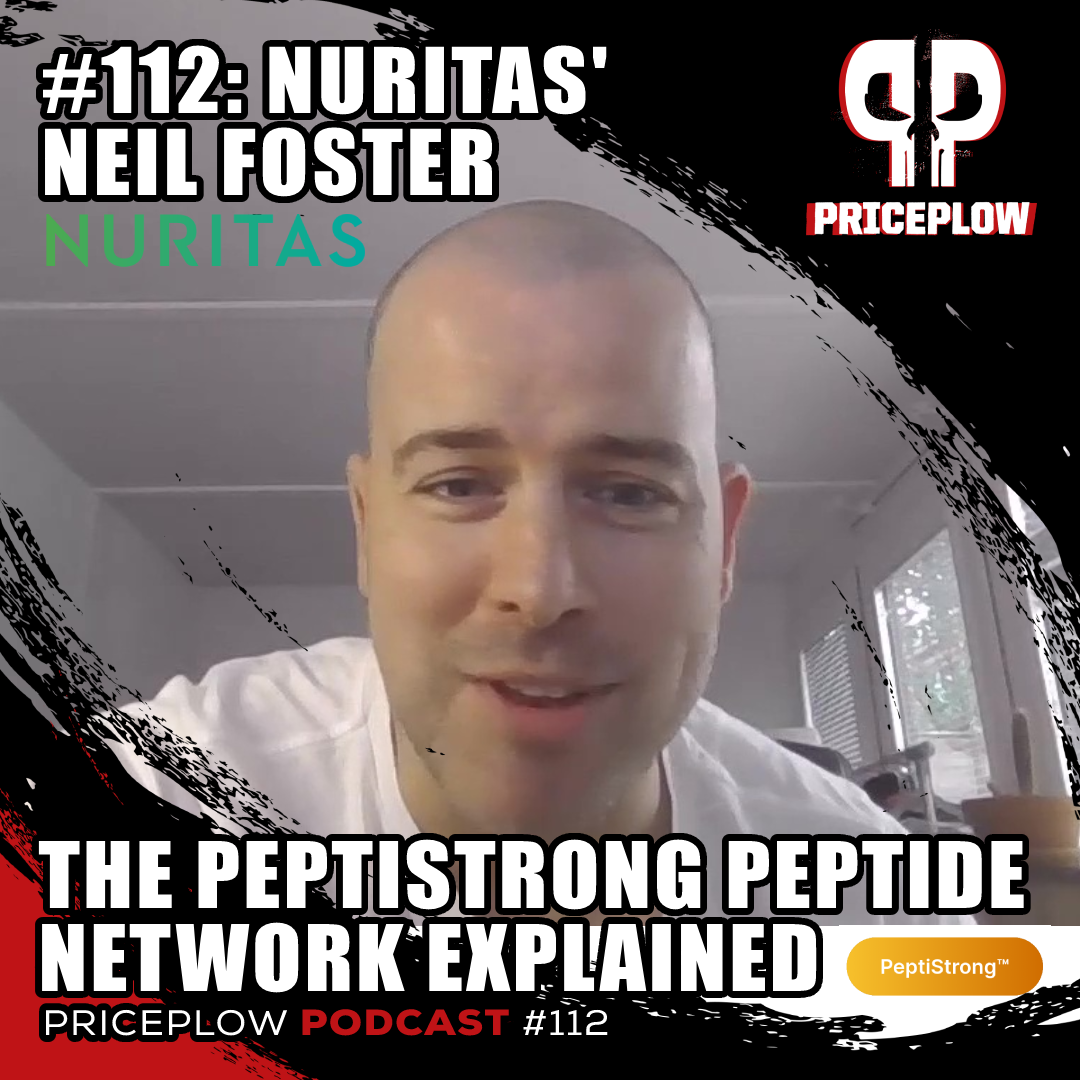


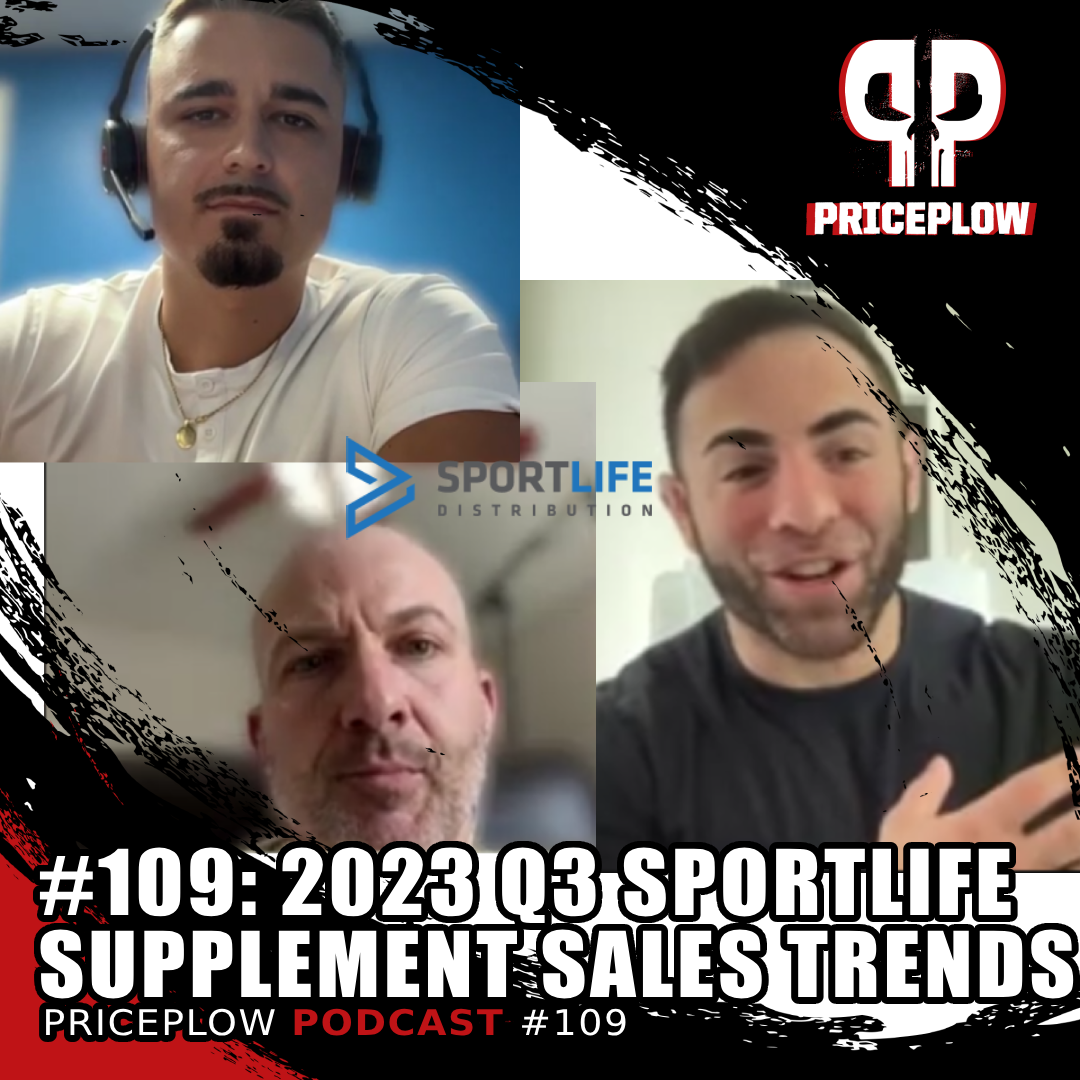
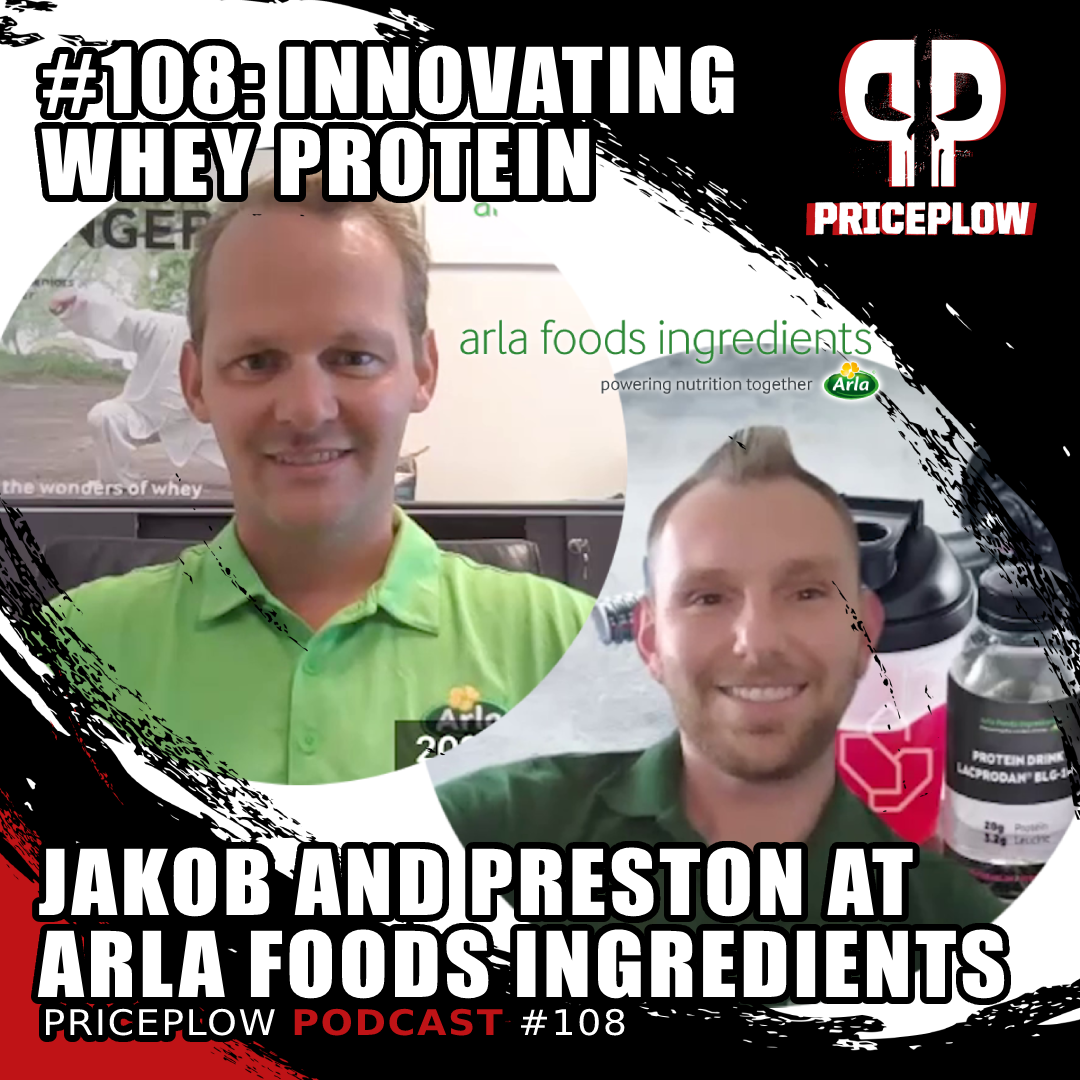

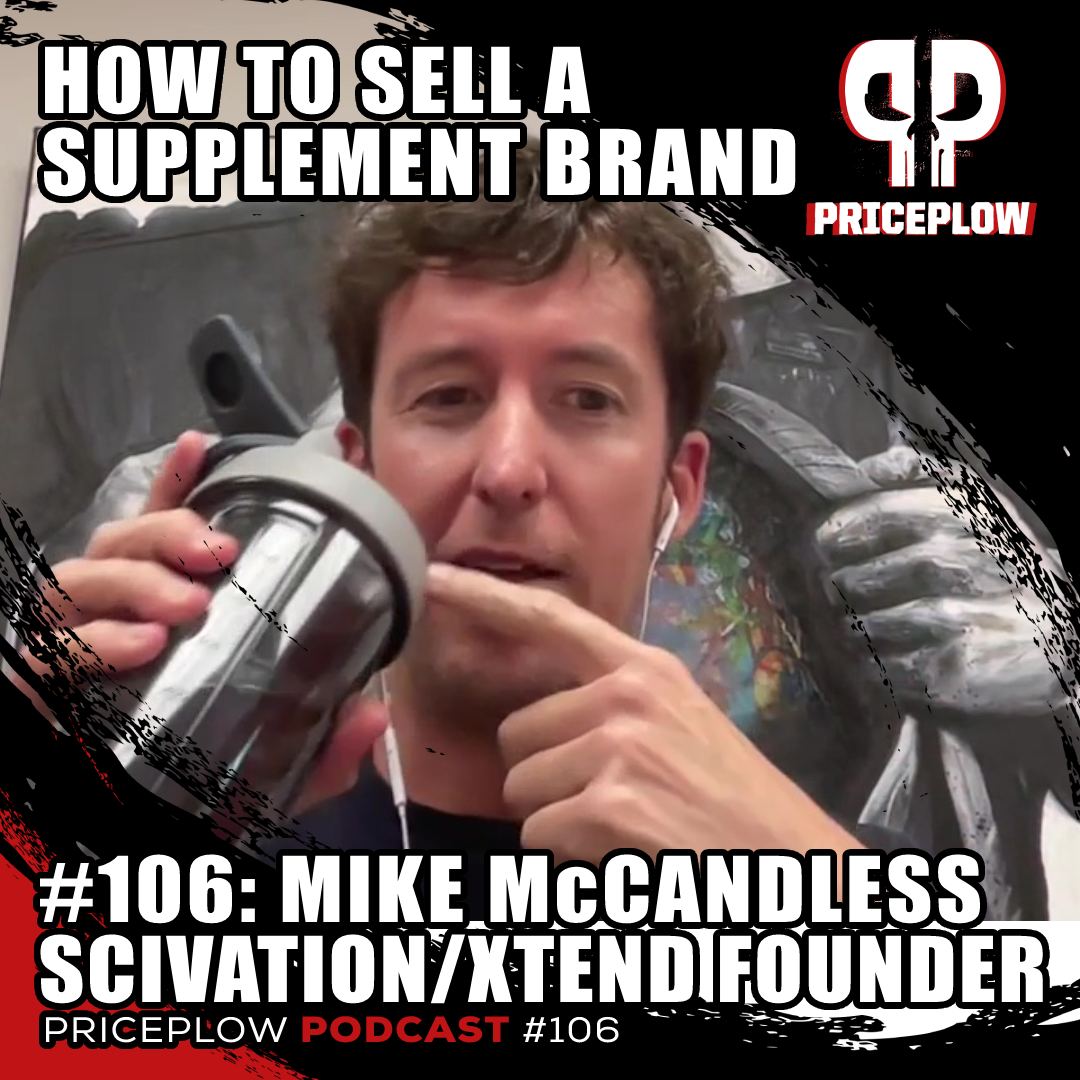
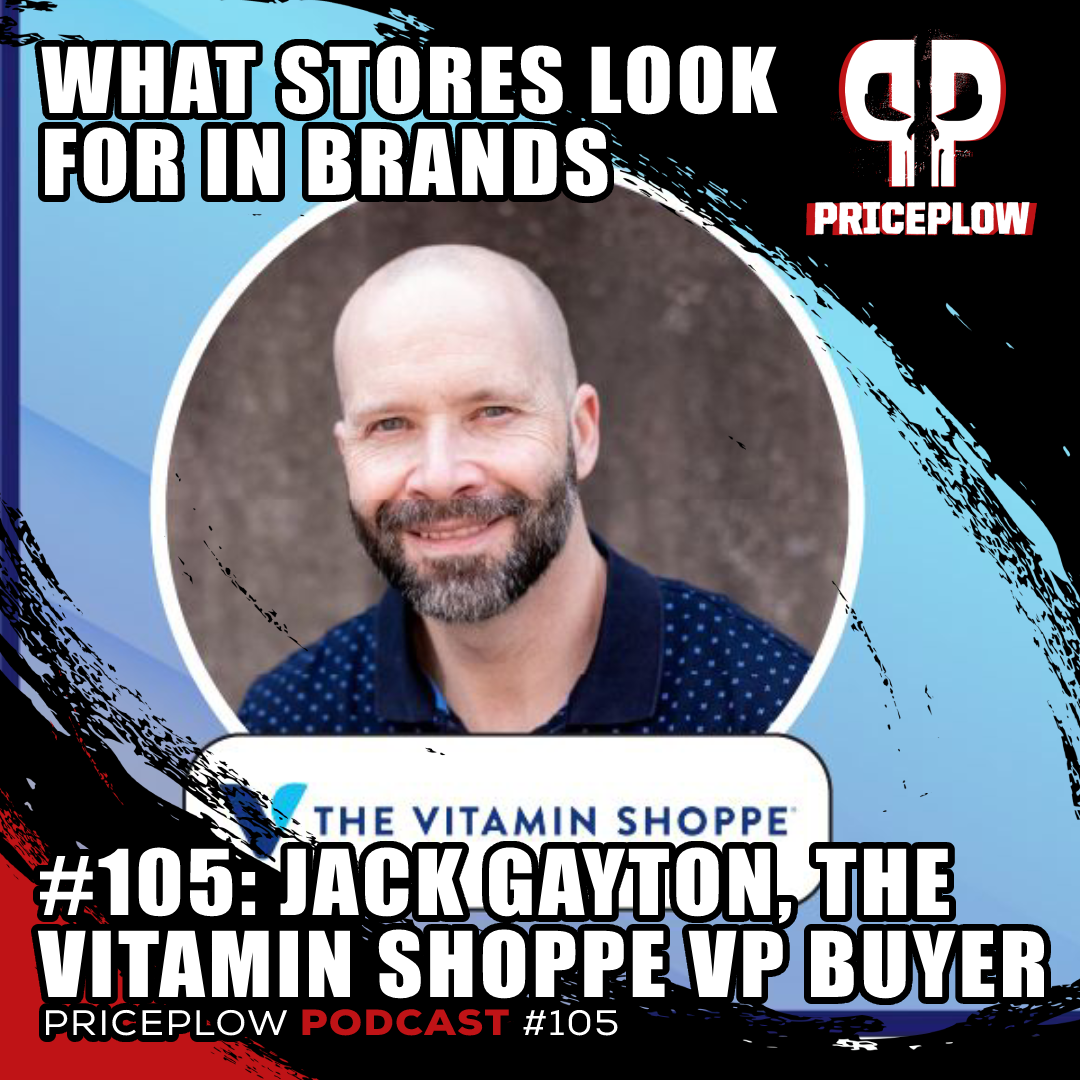


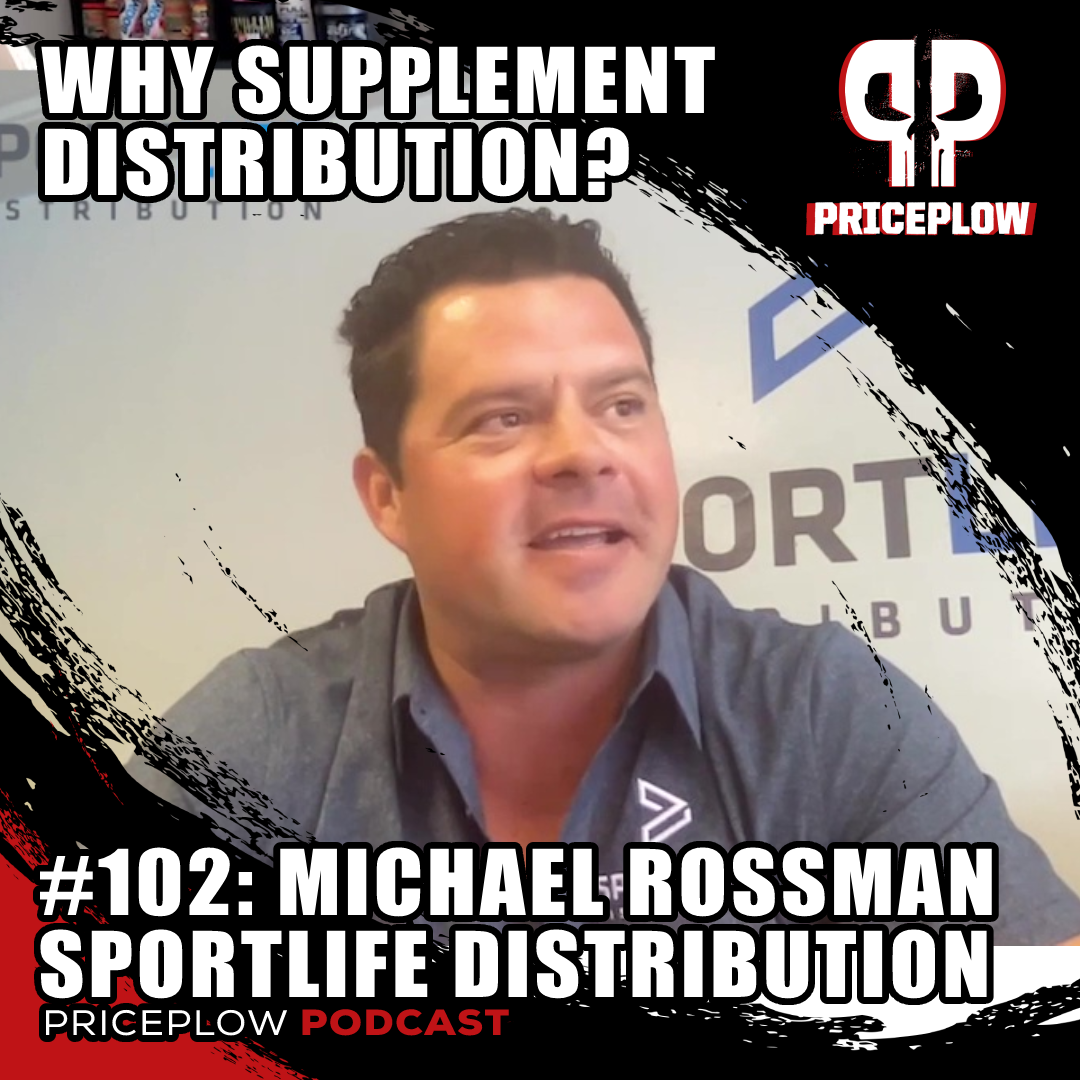
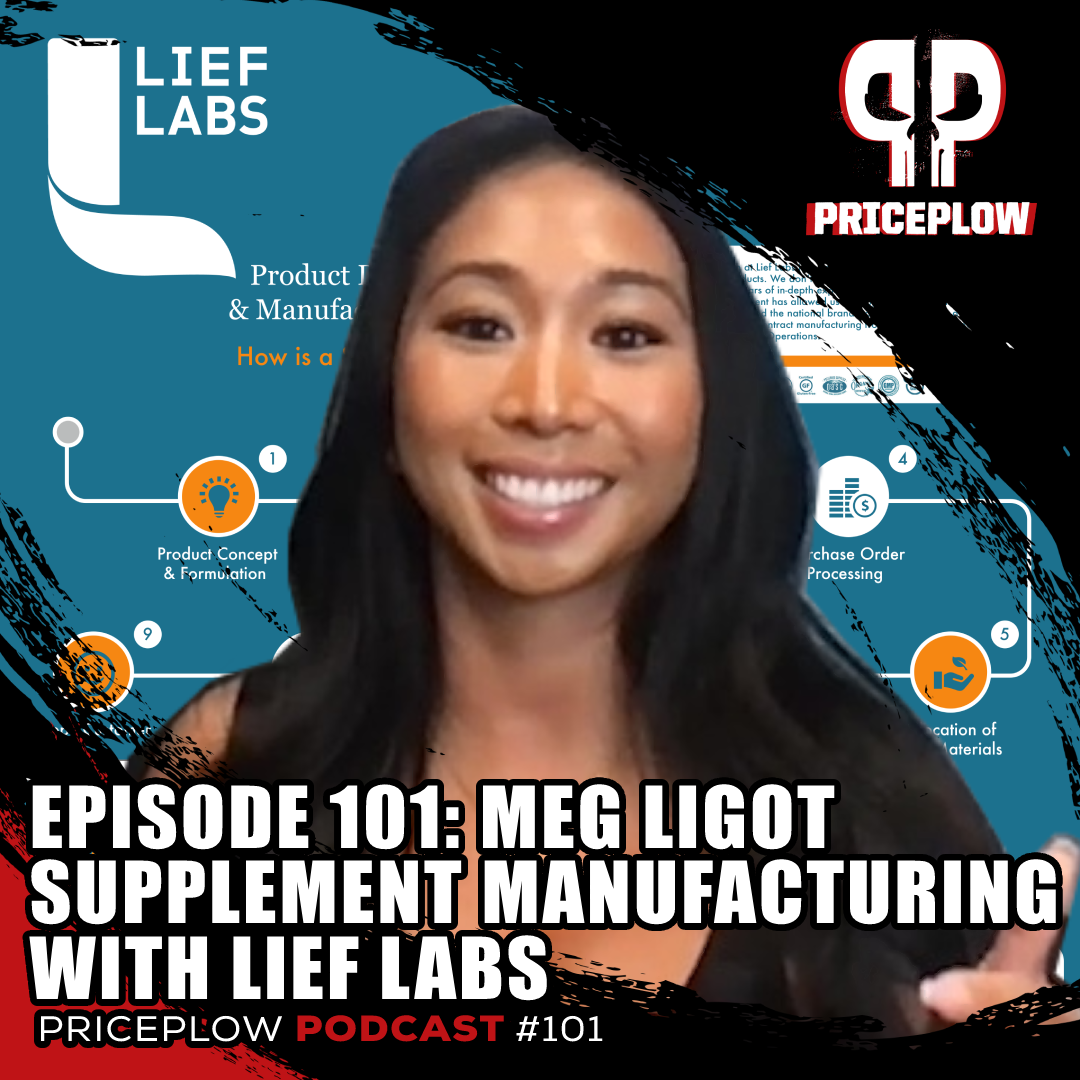


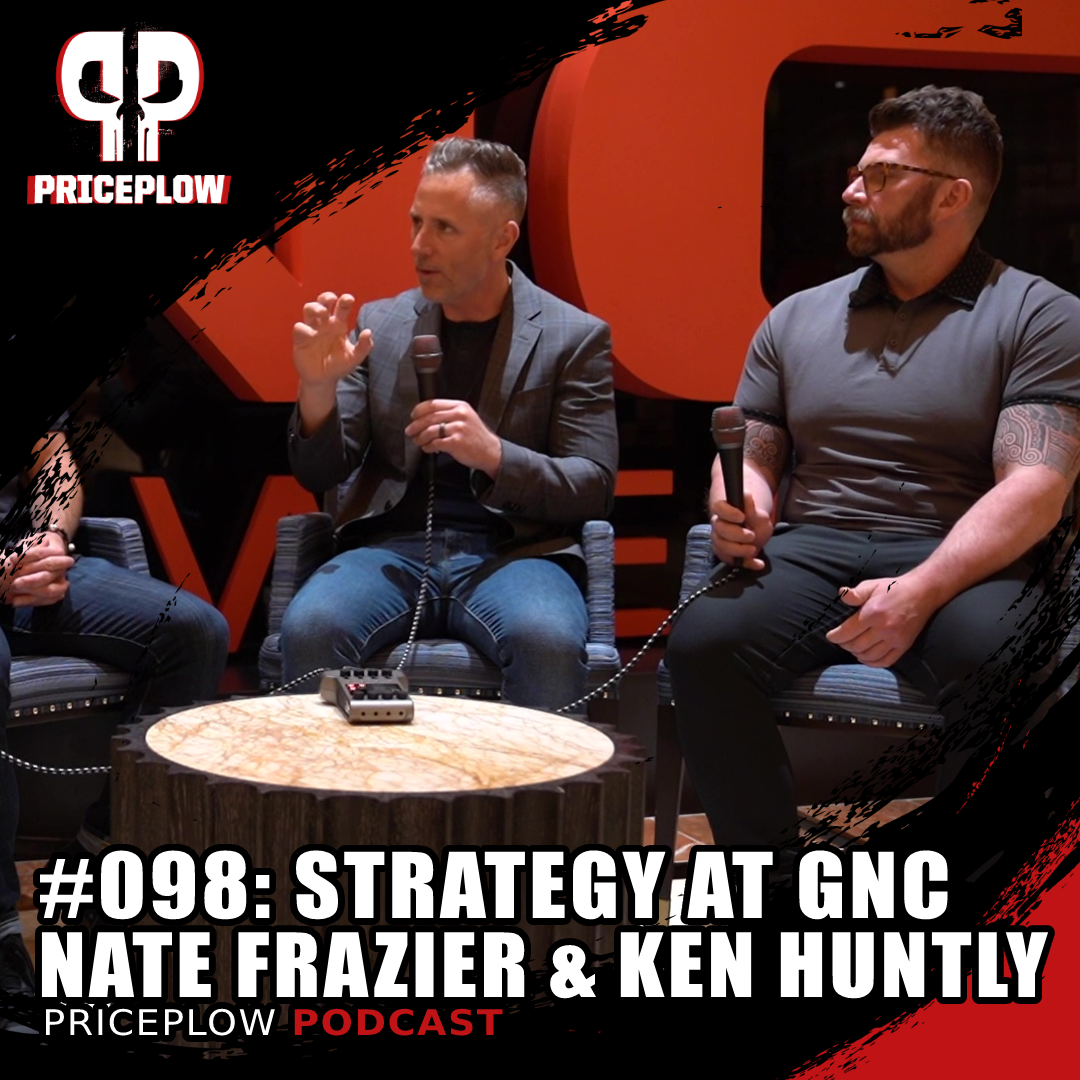


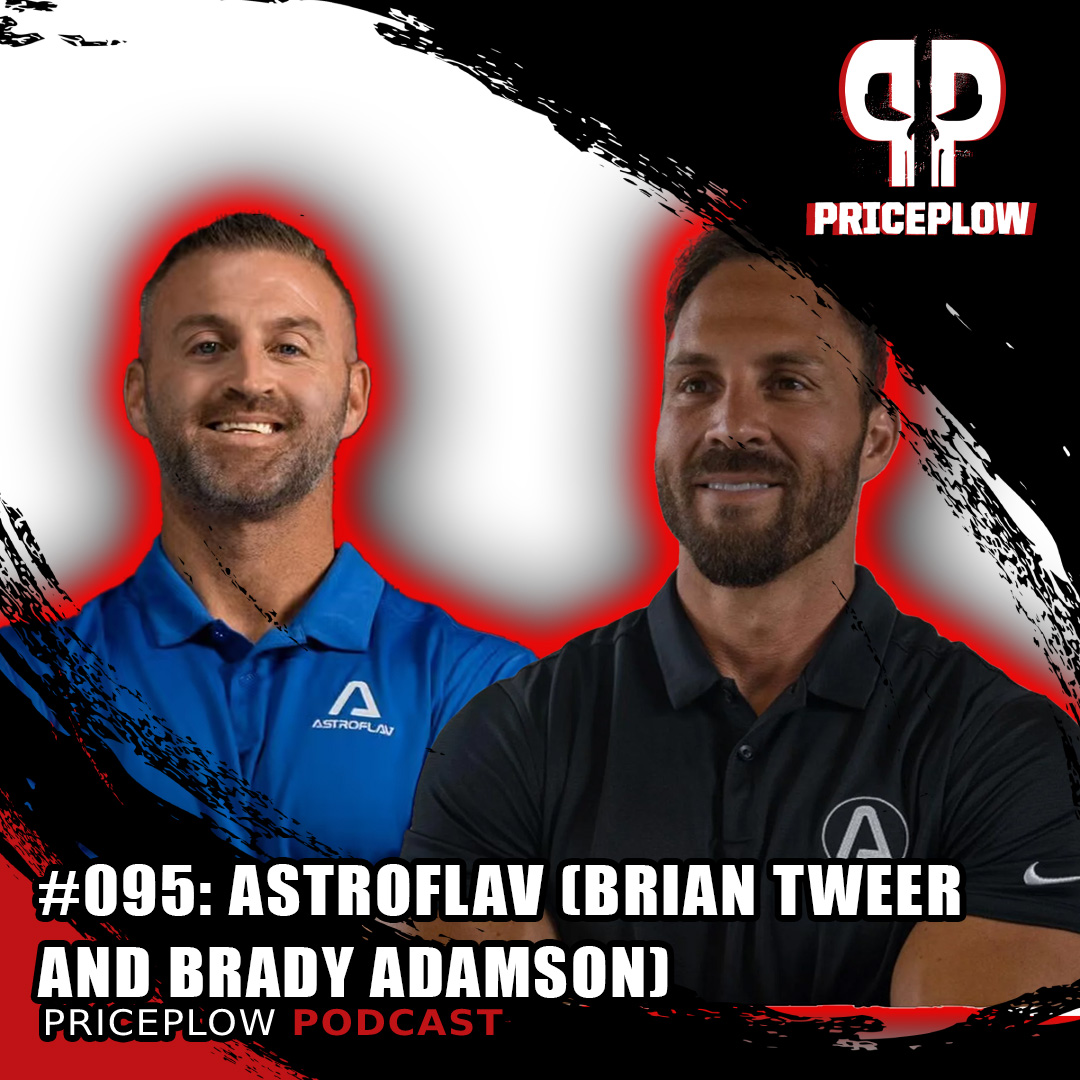






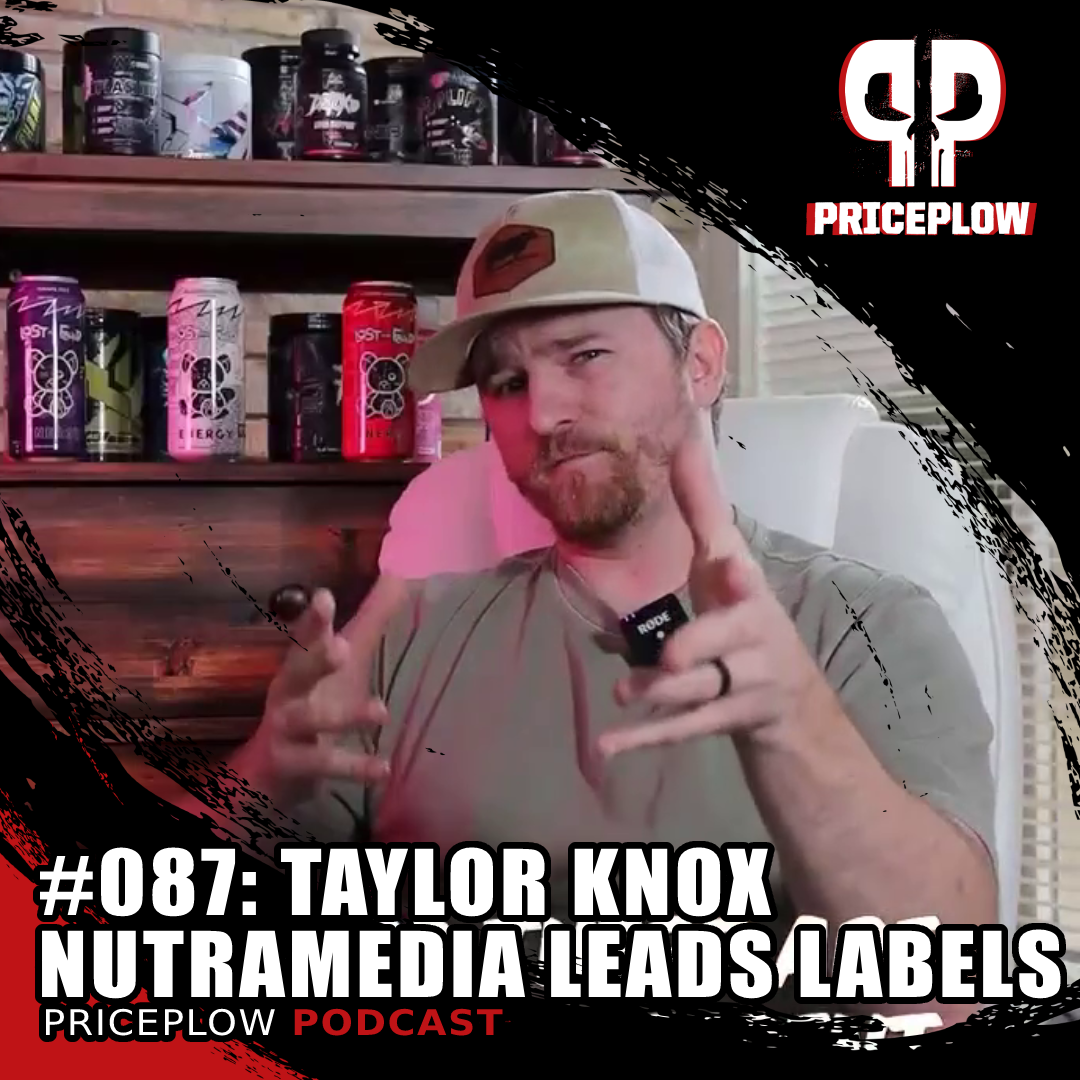


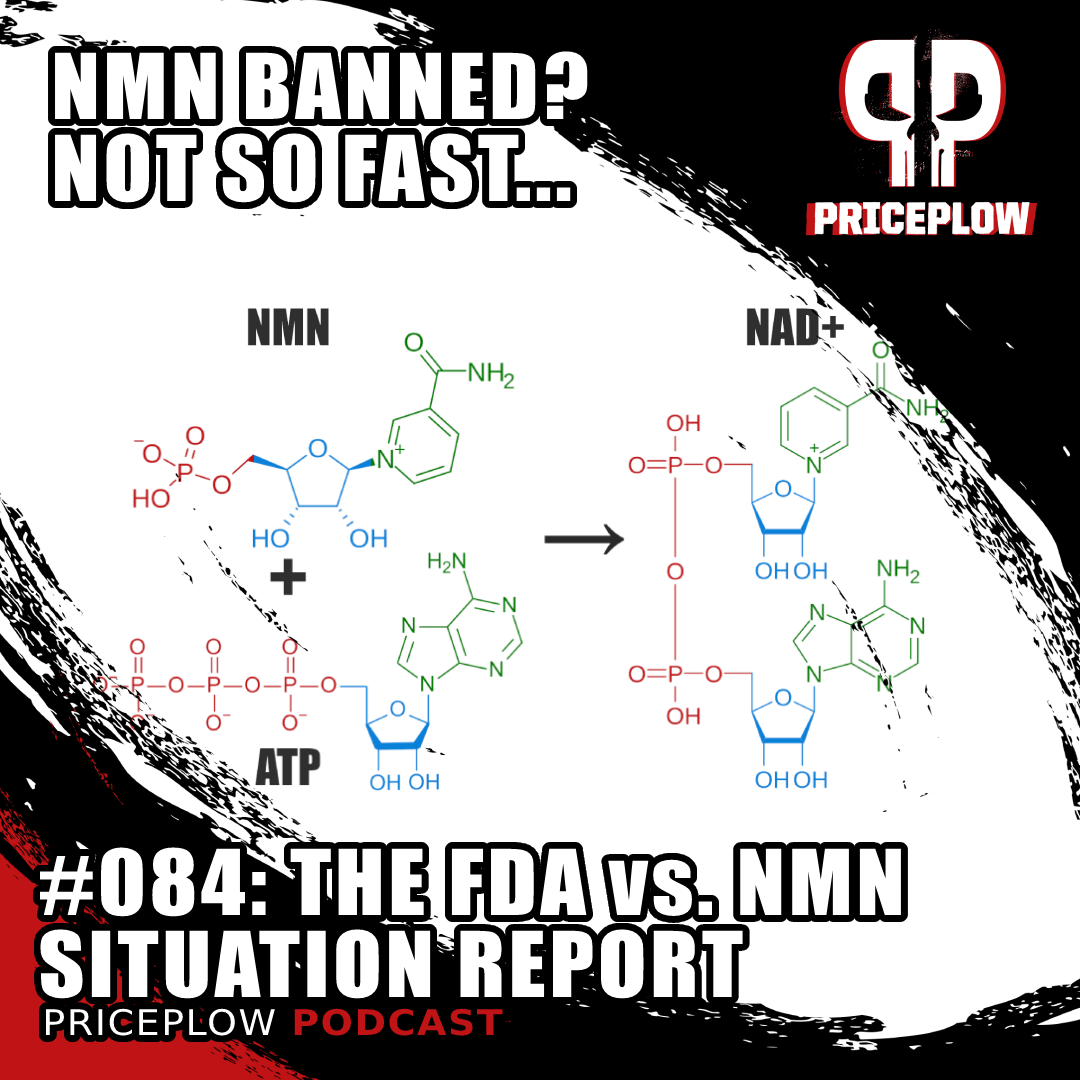




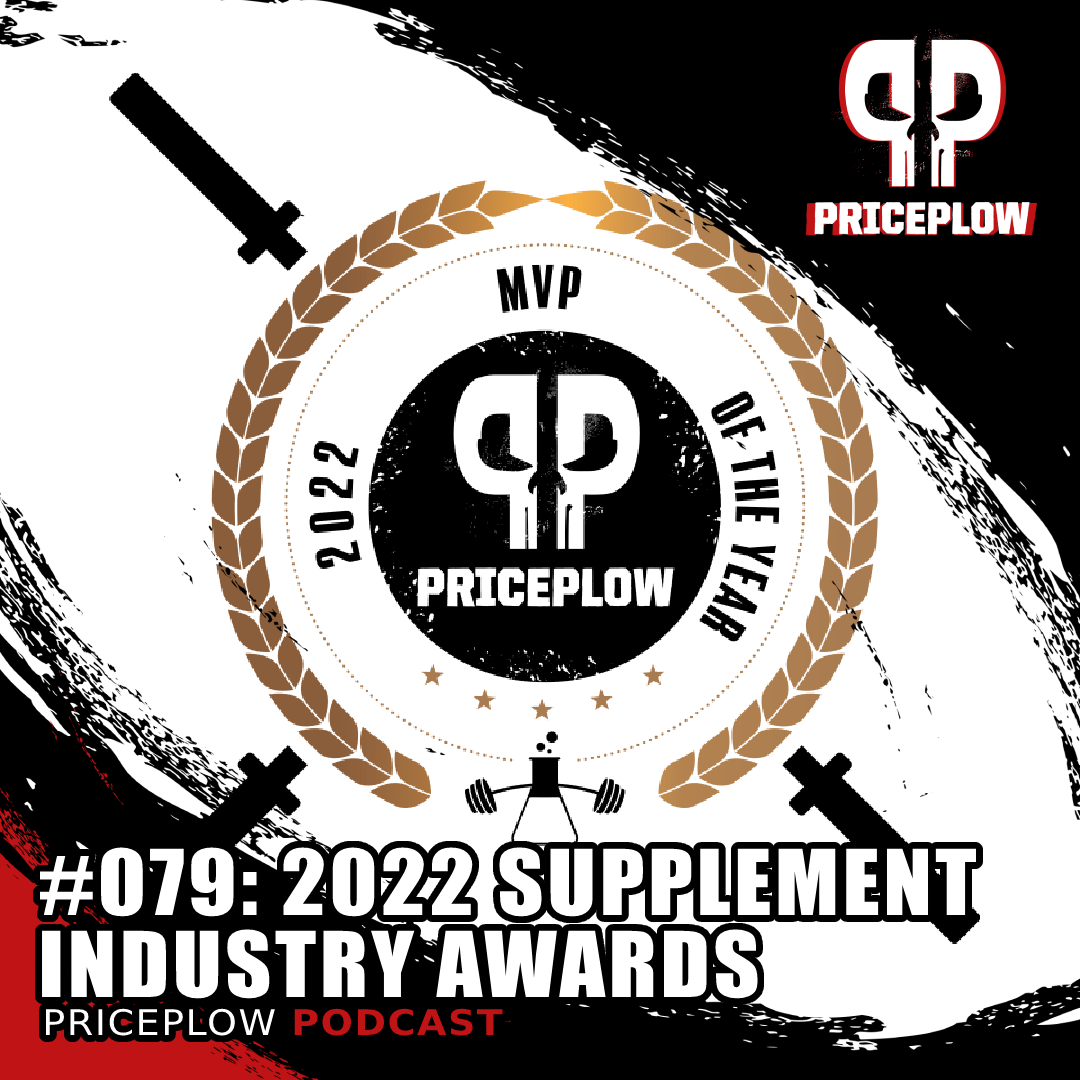





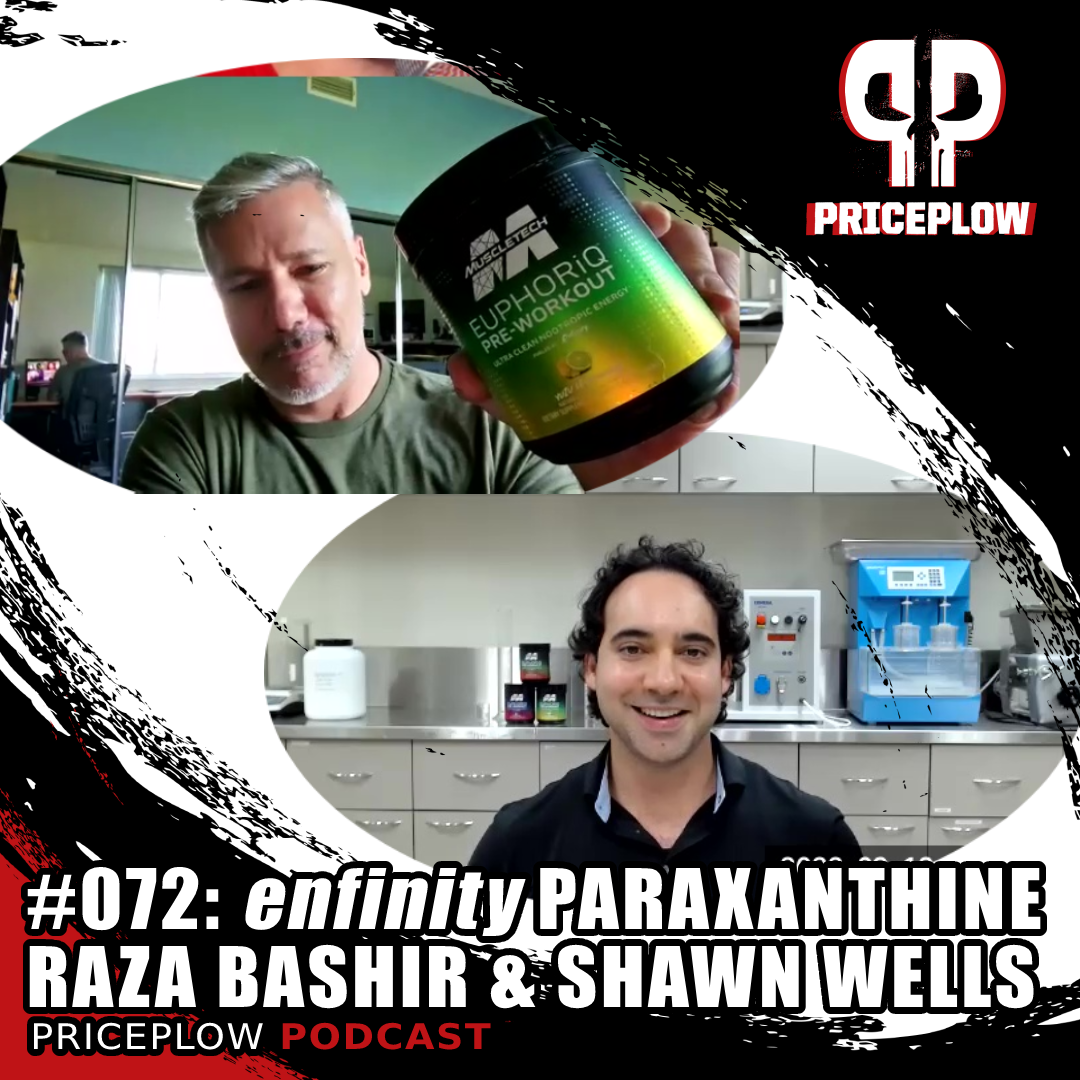


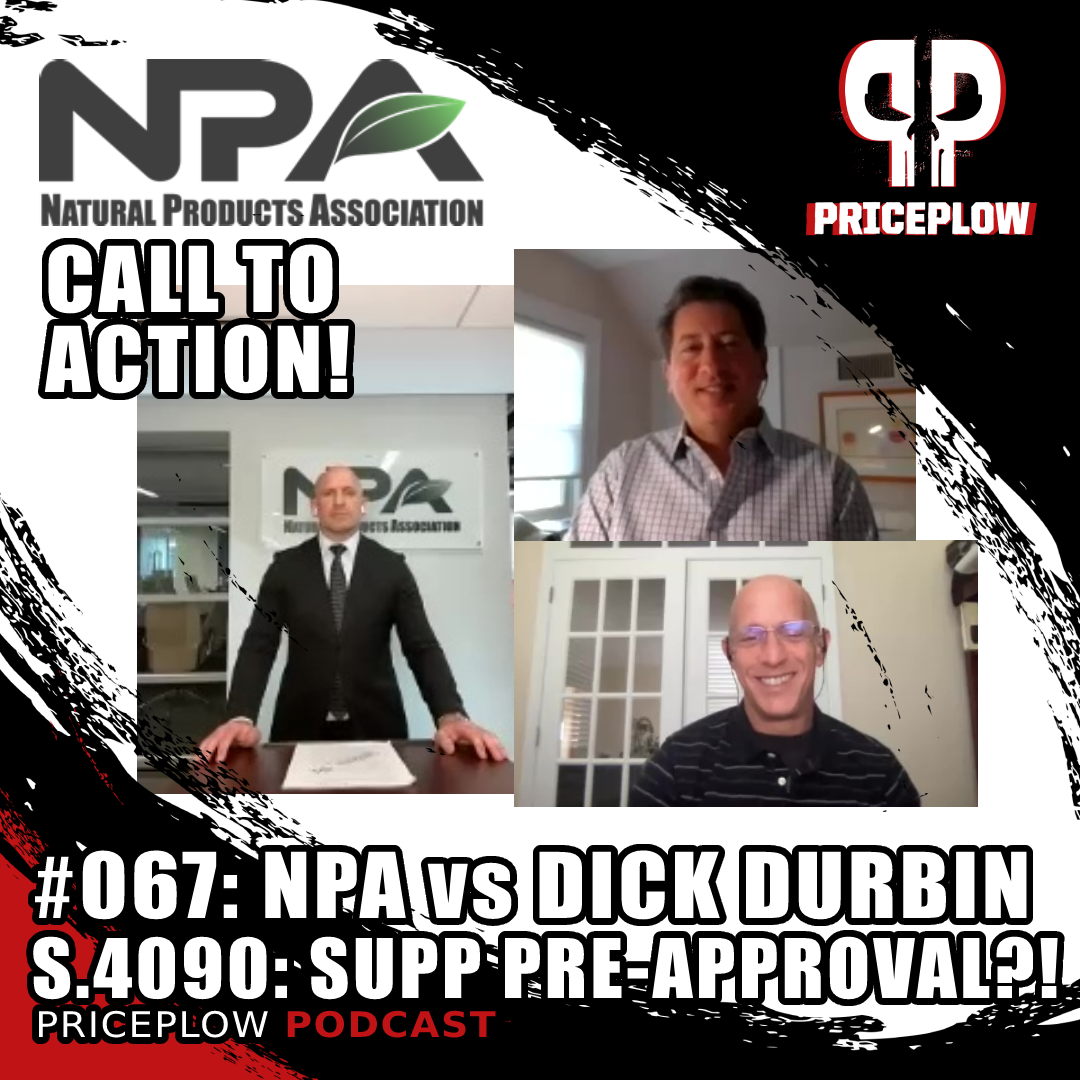


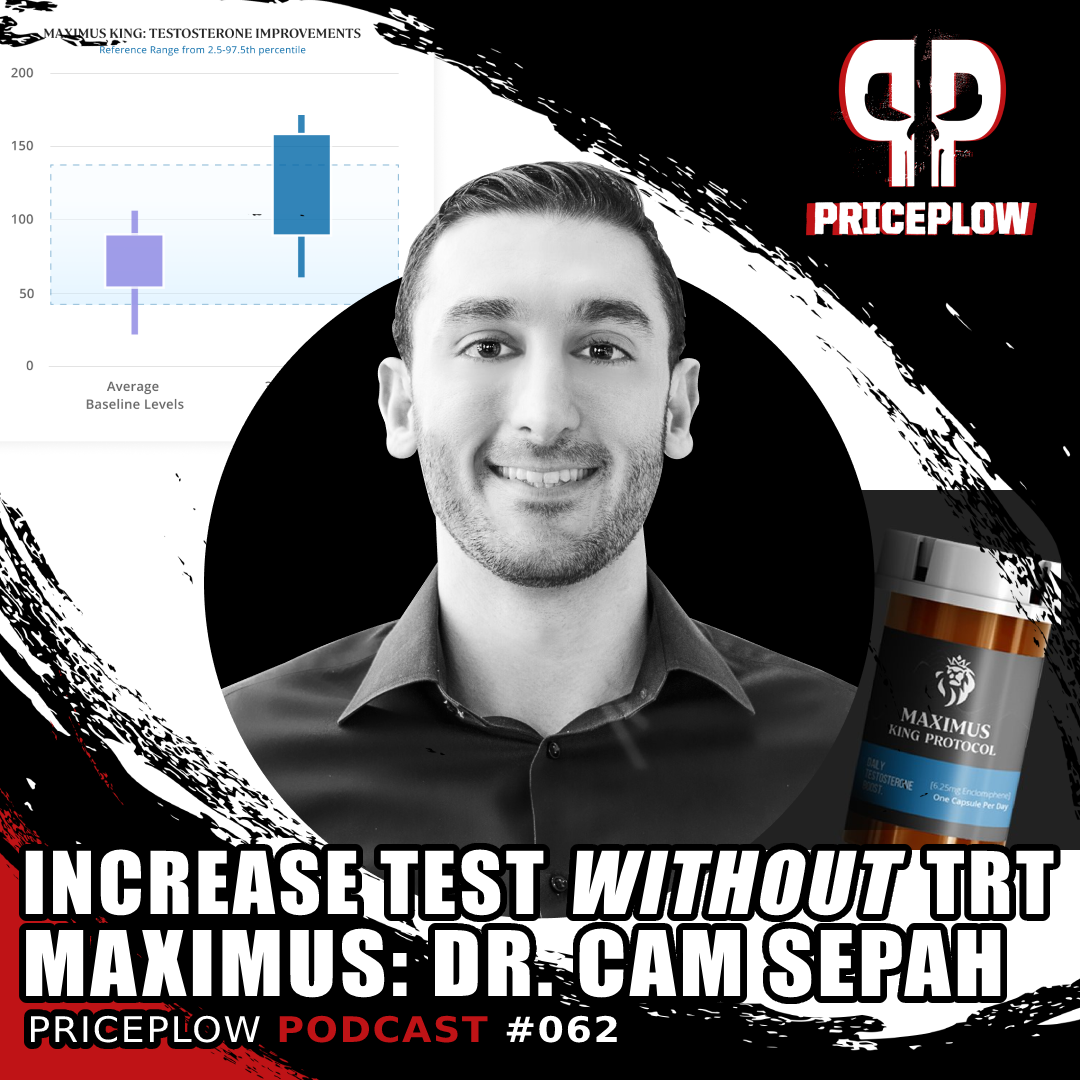
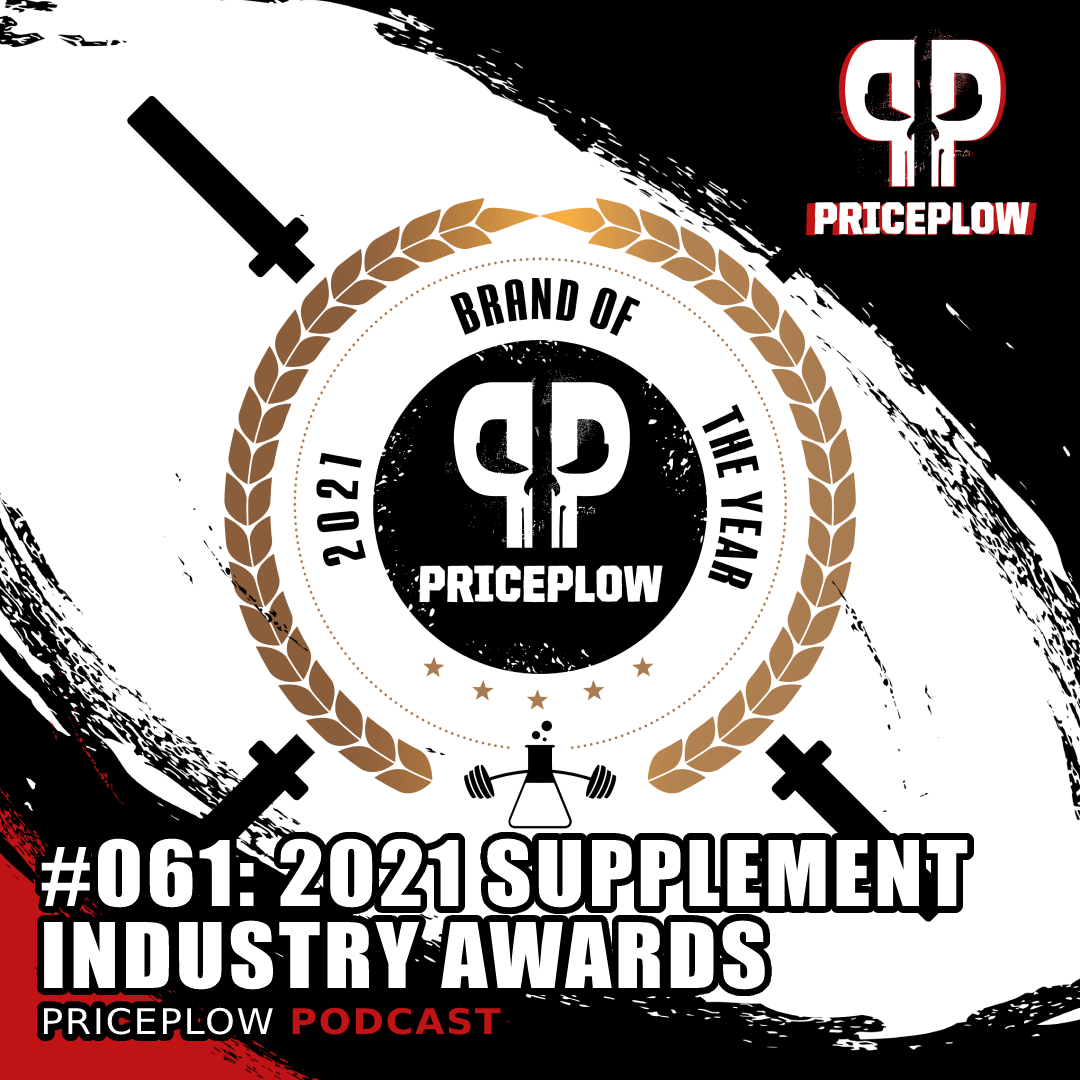



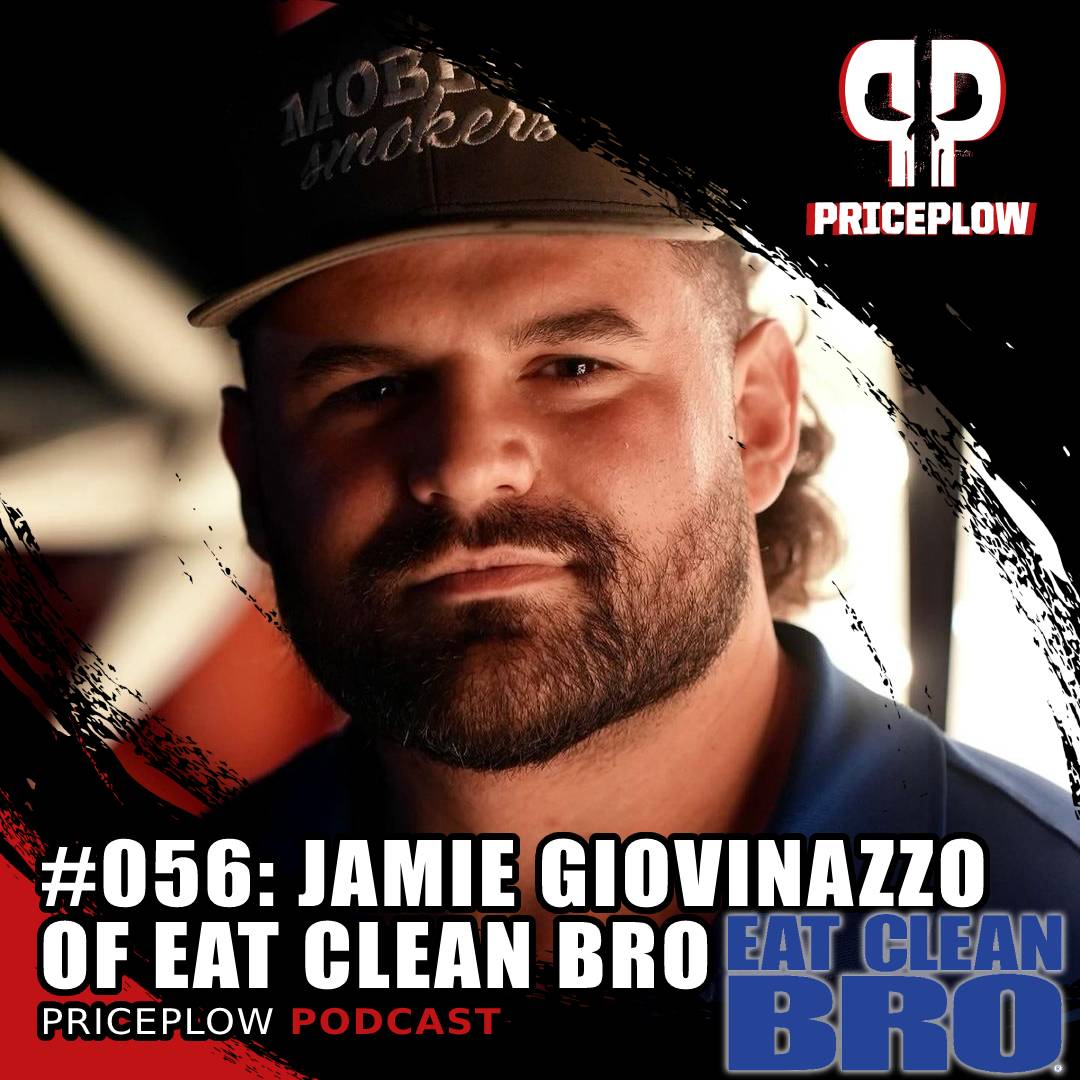

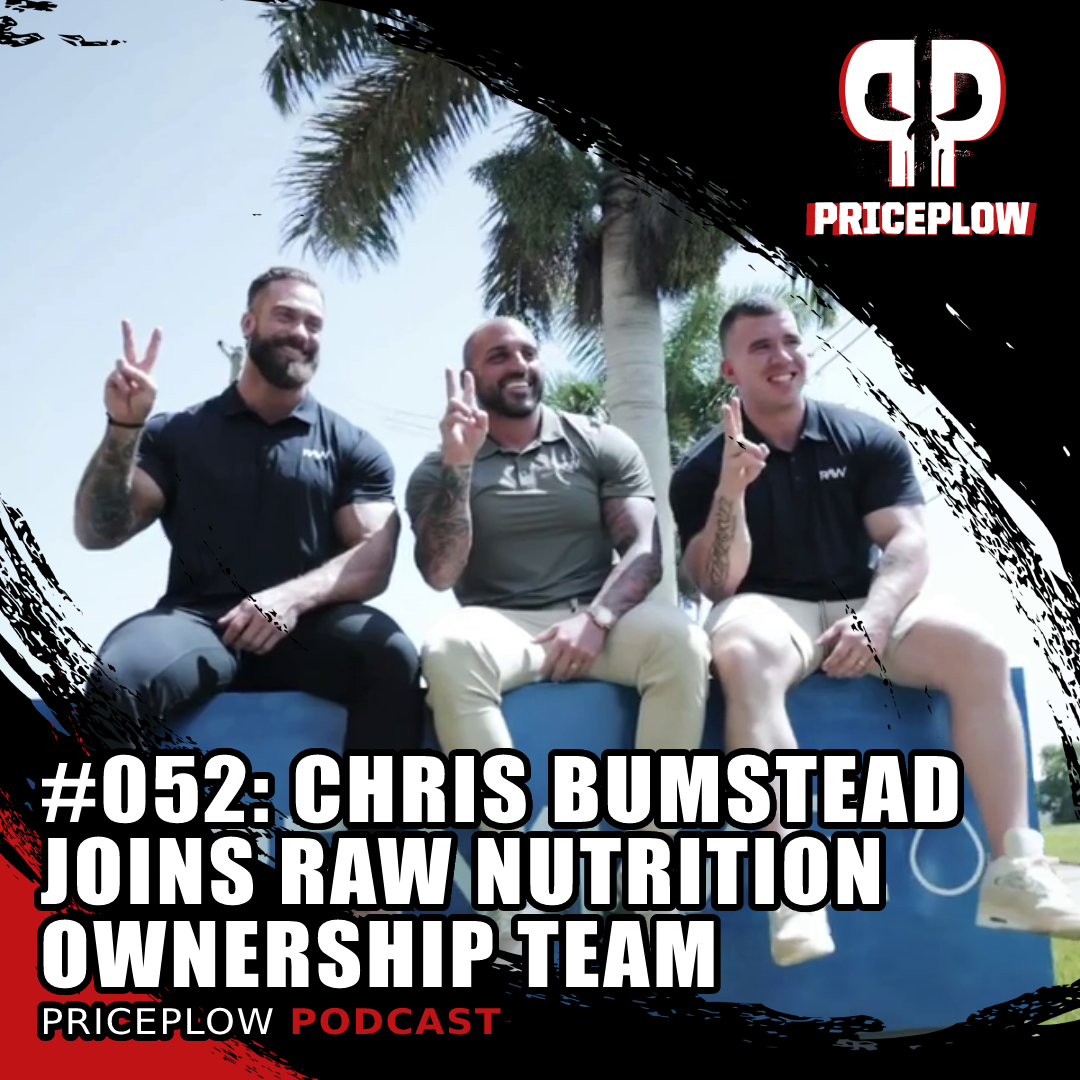

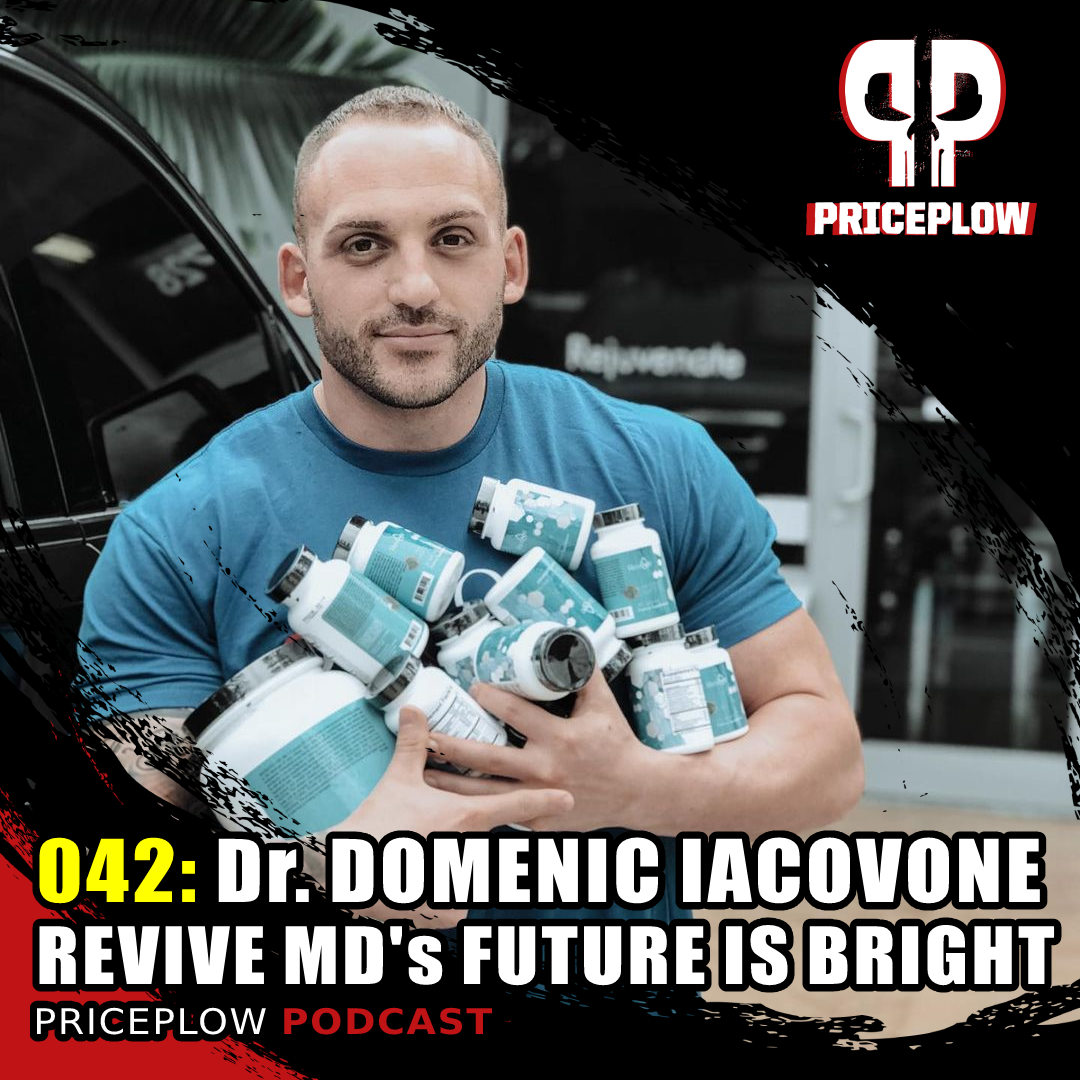



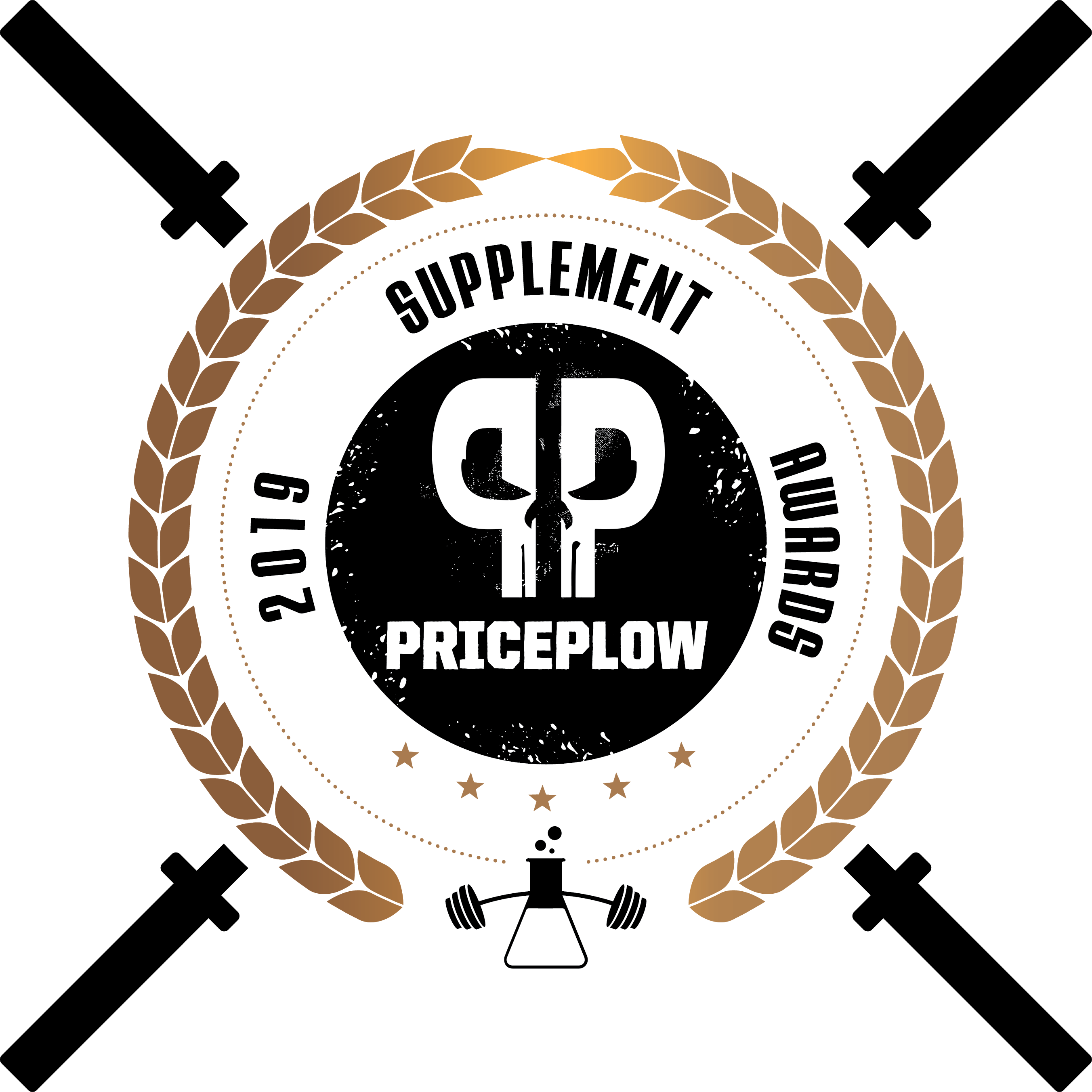

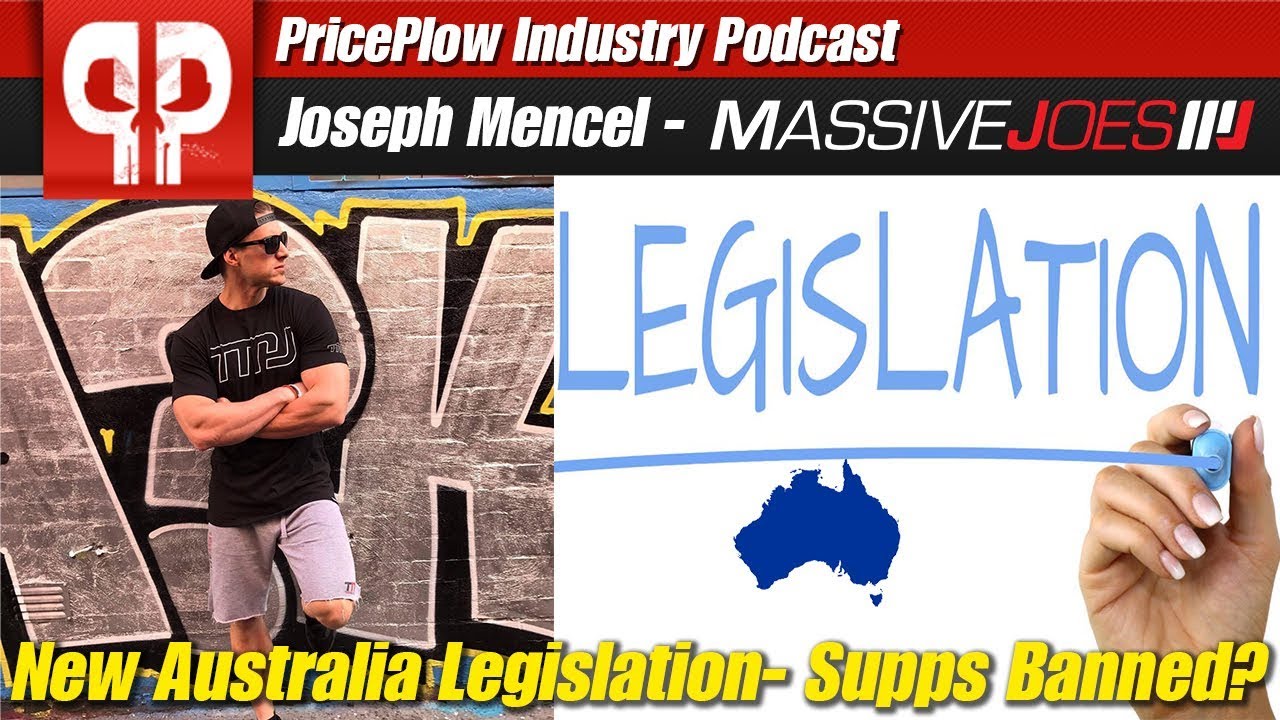


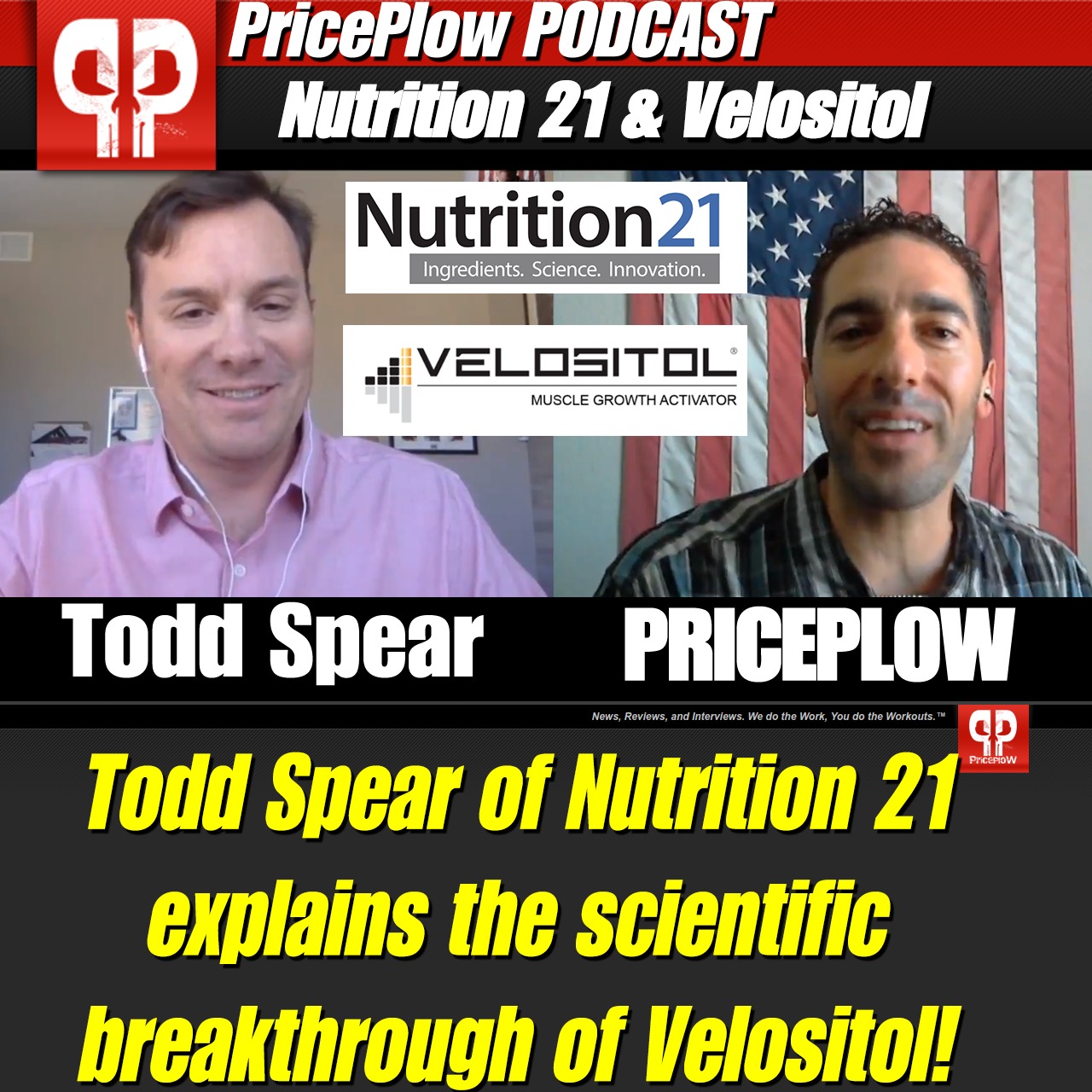


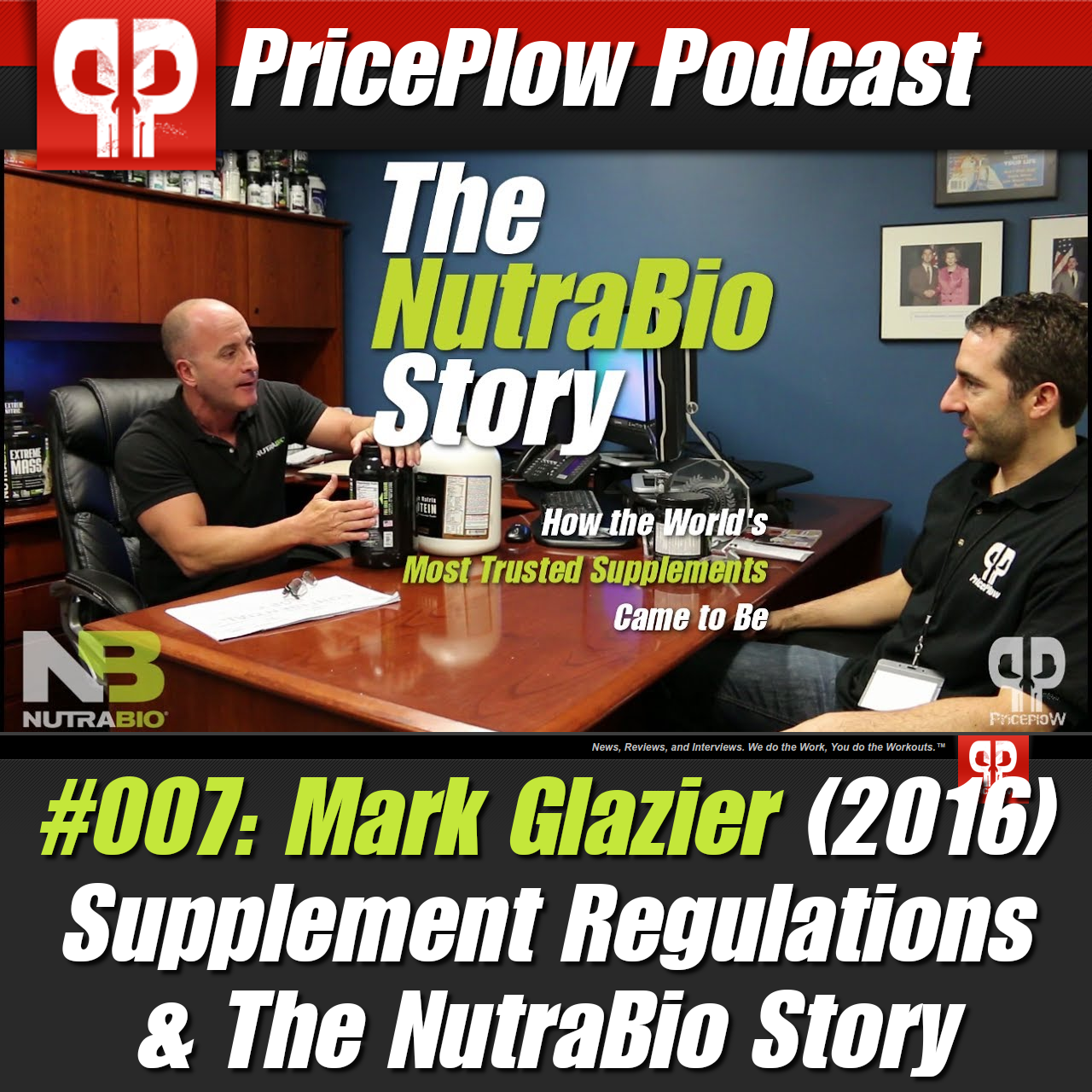





Comments and Discussion (Powered by the PricePlow Forum)